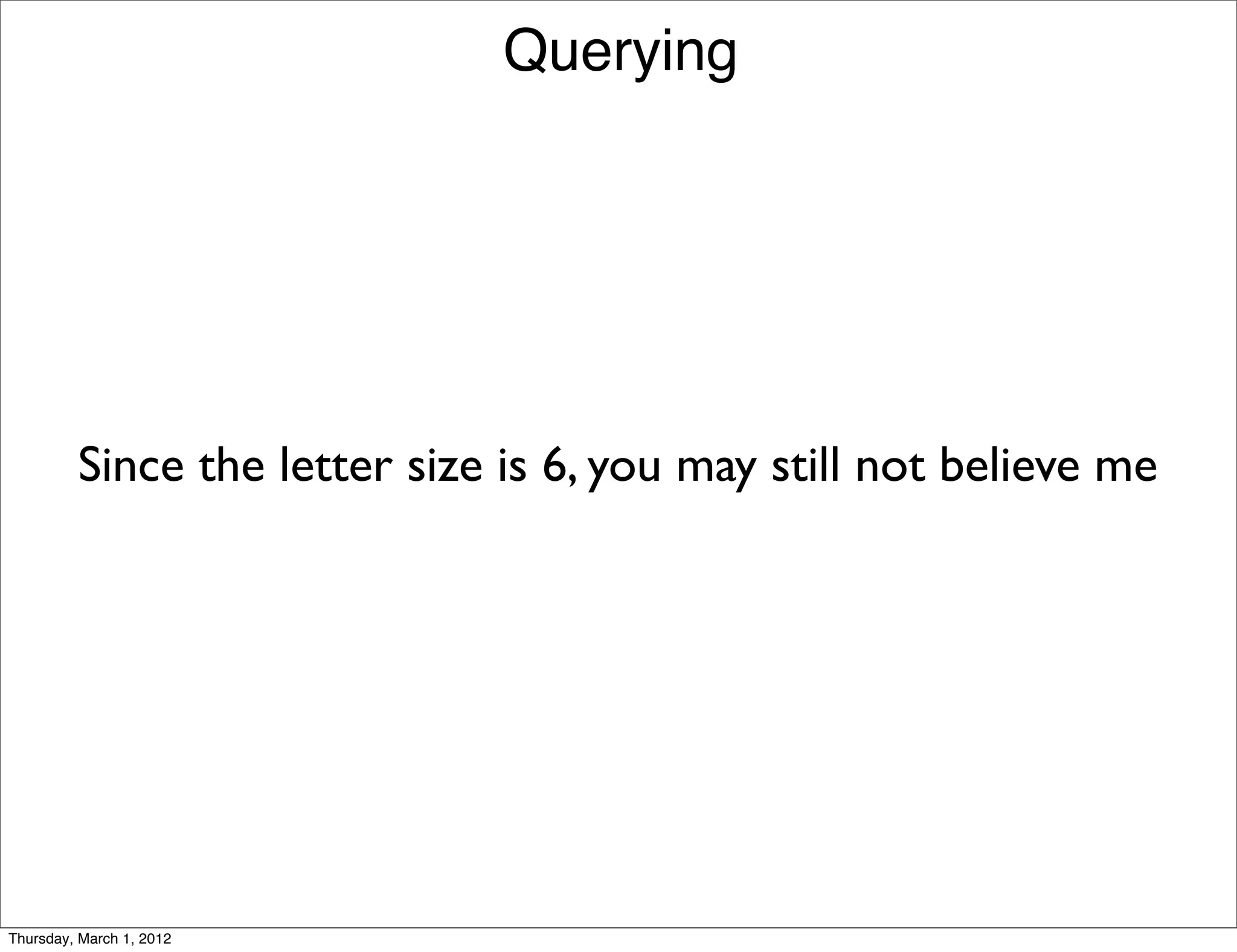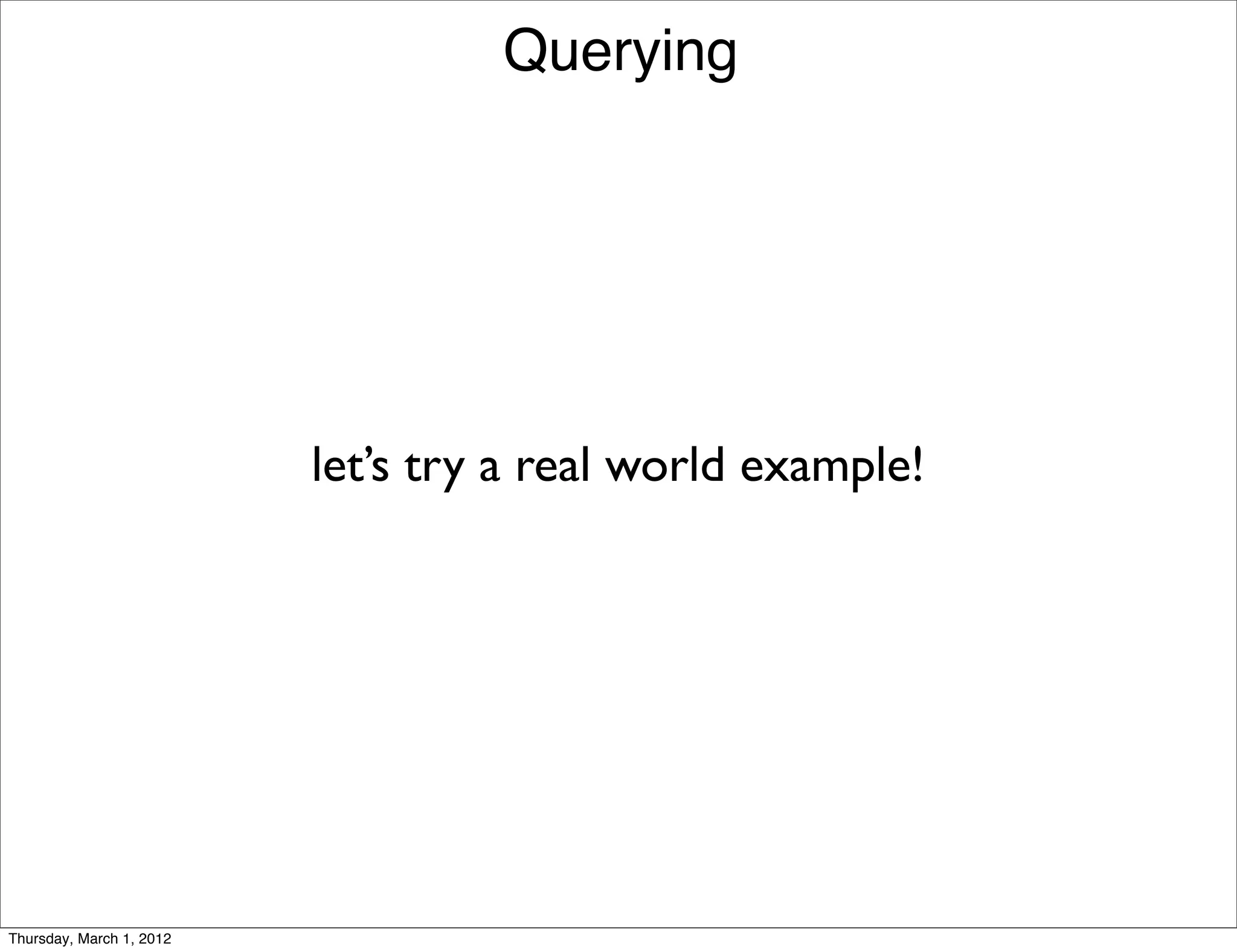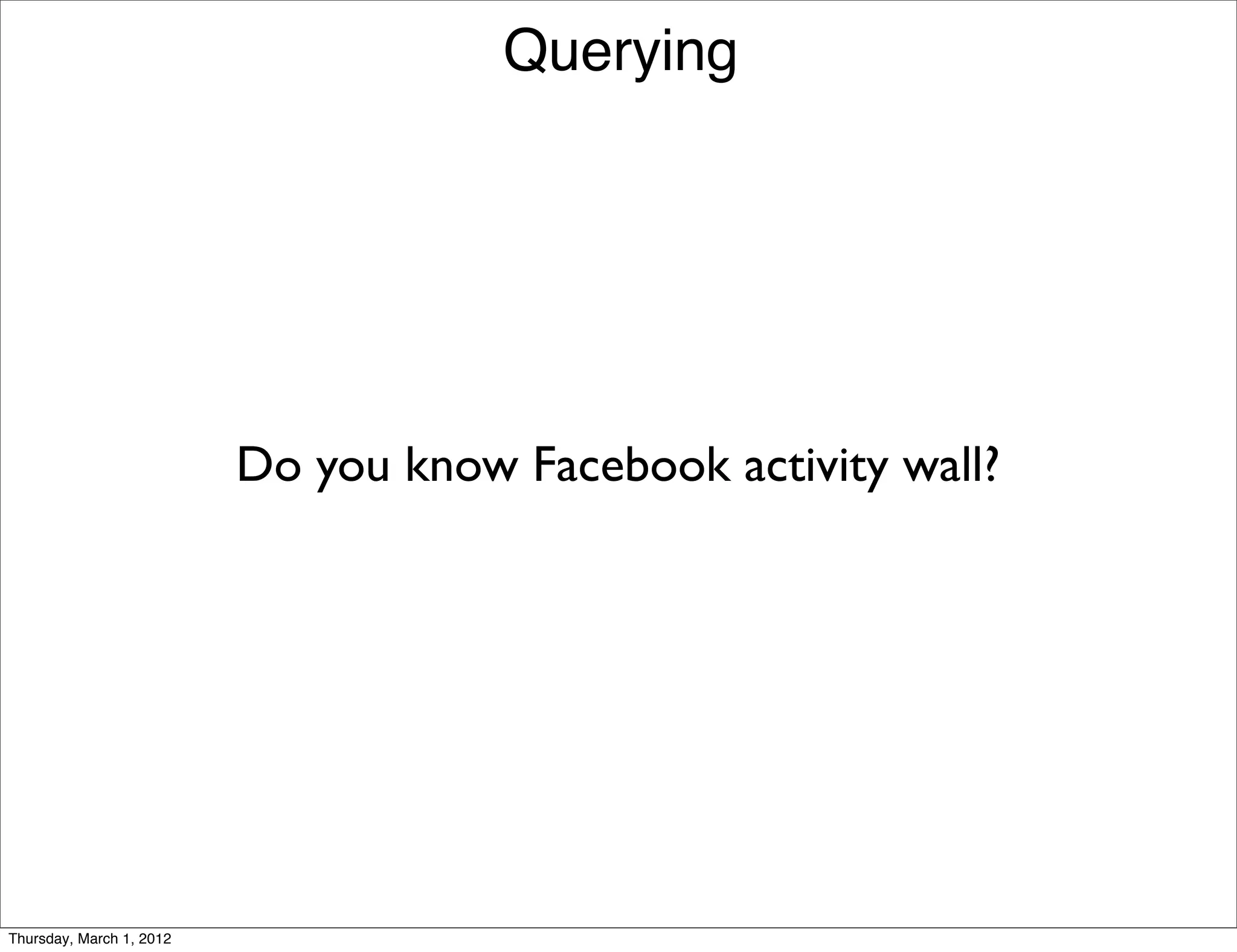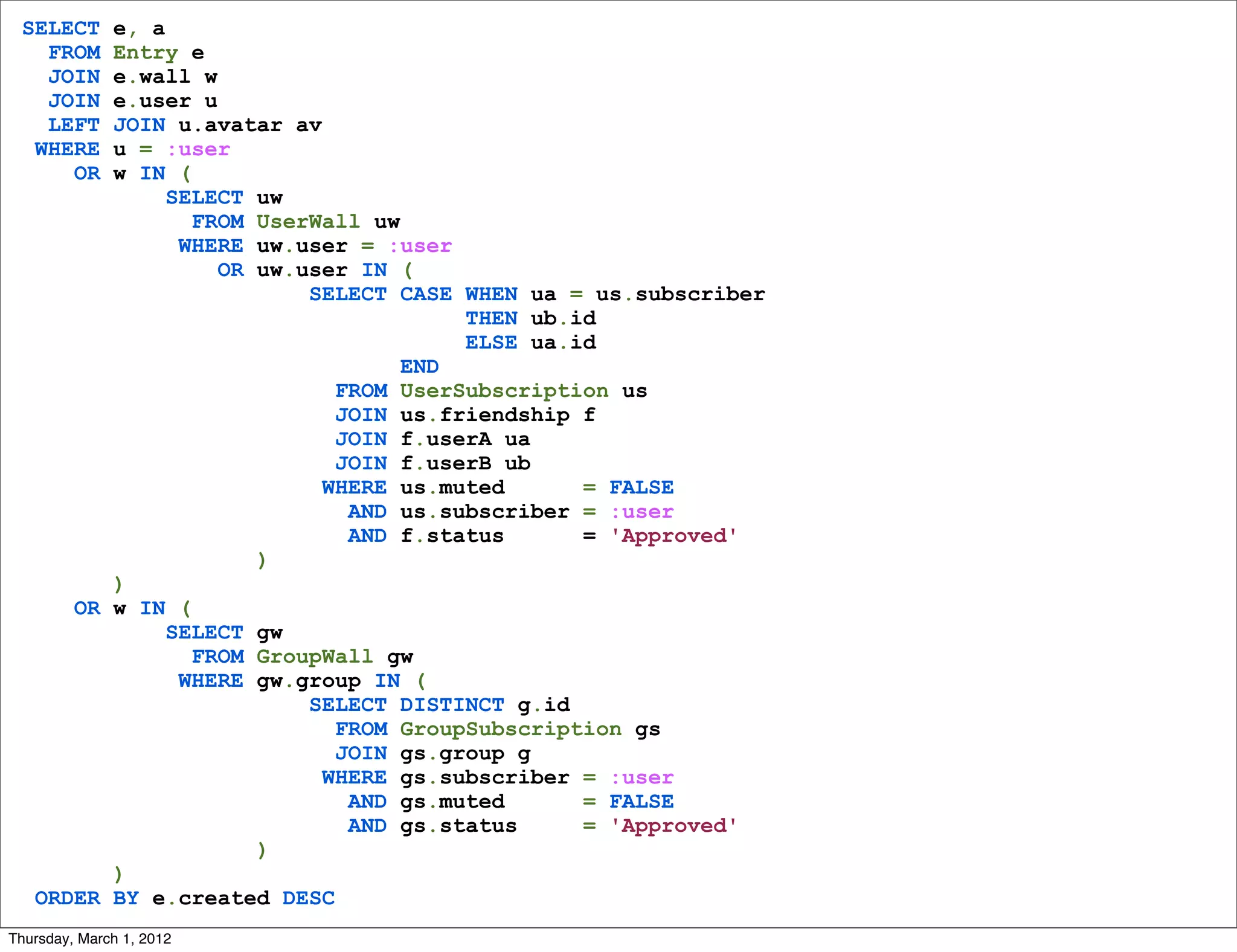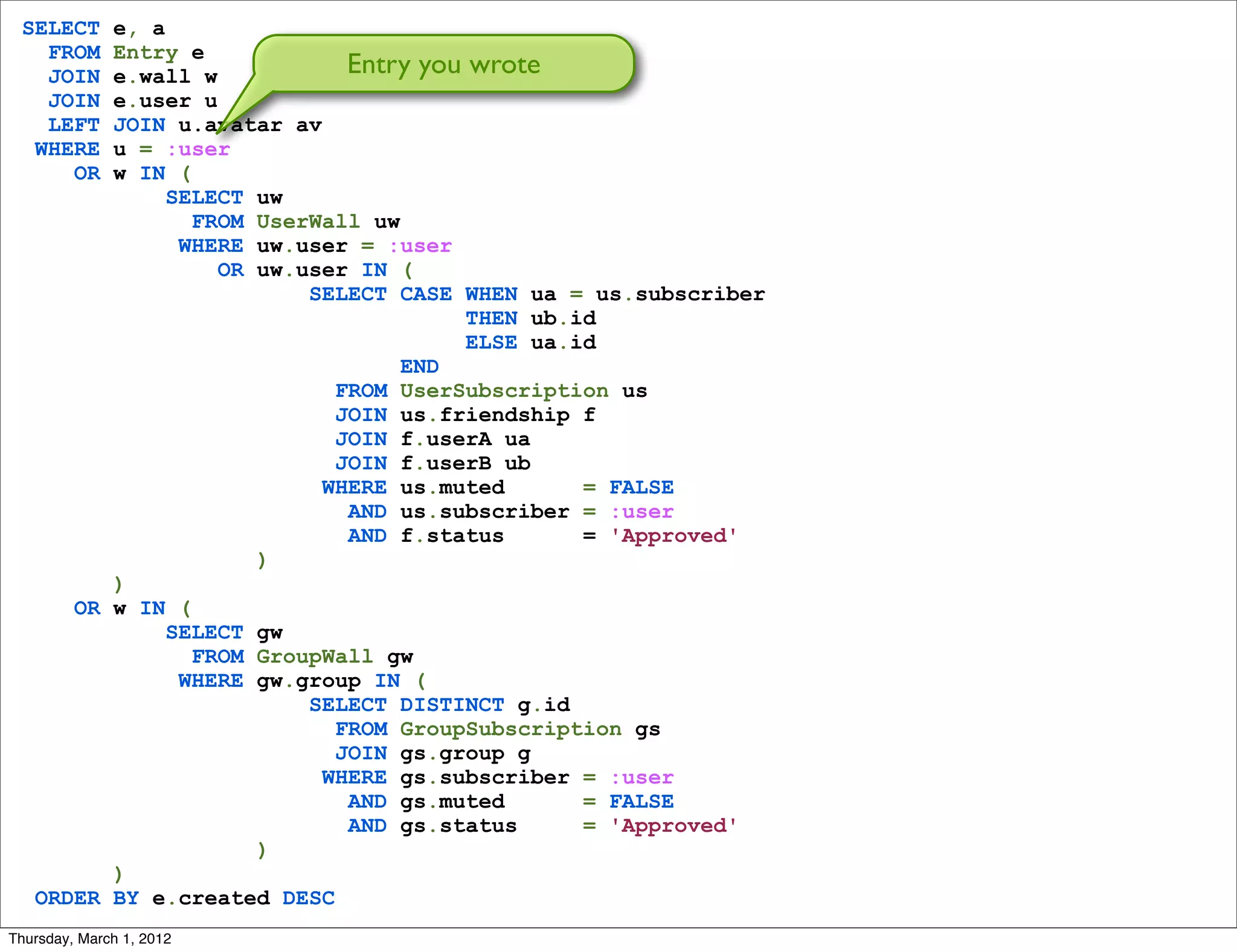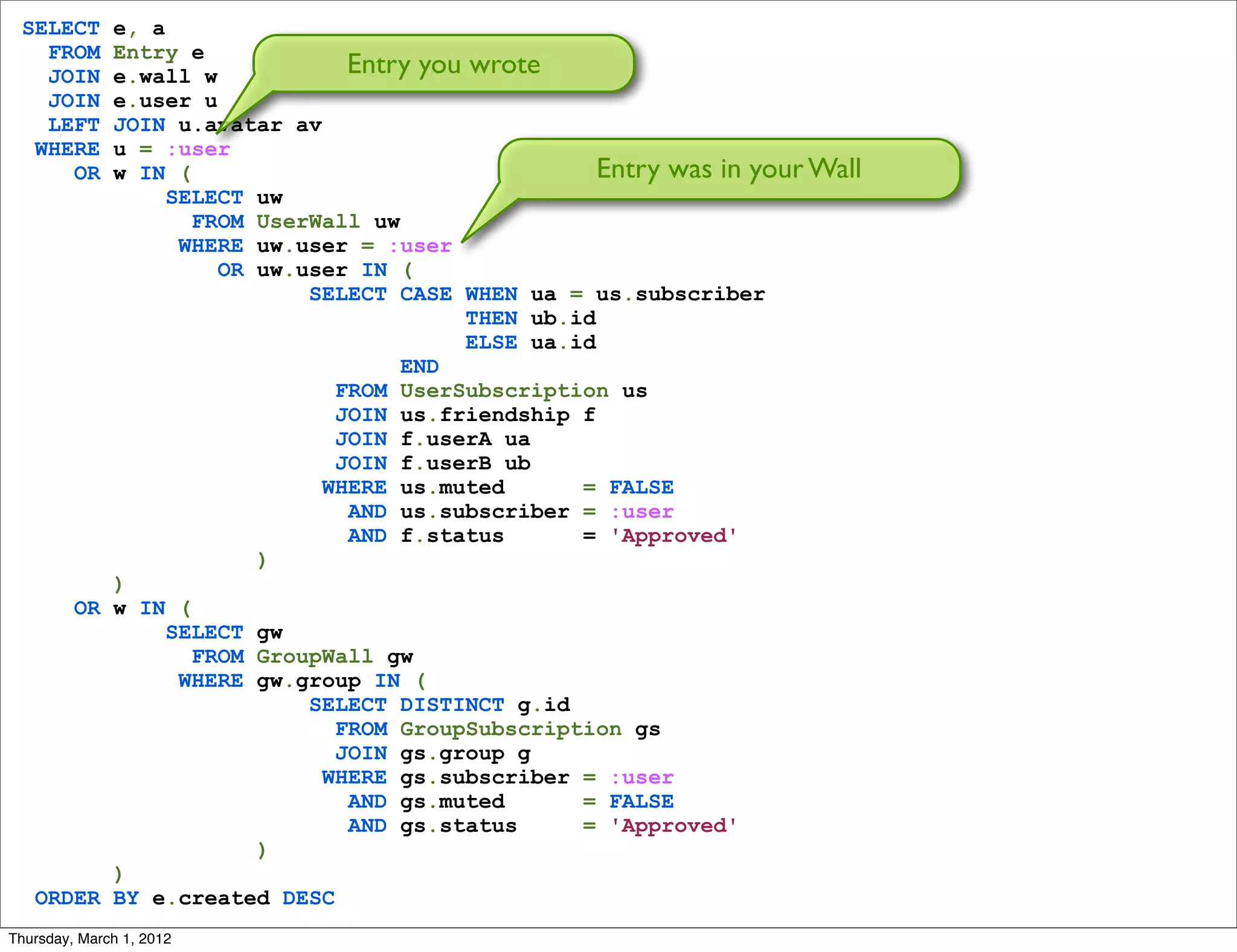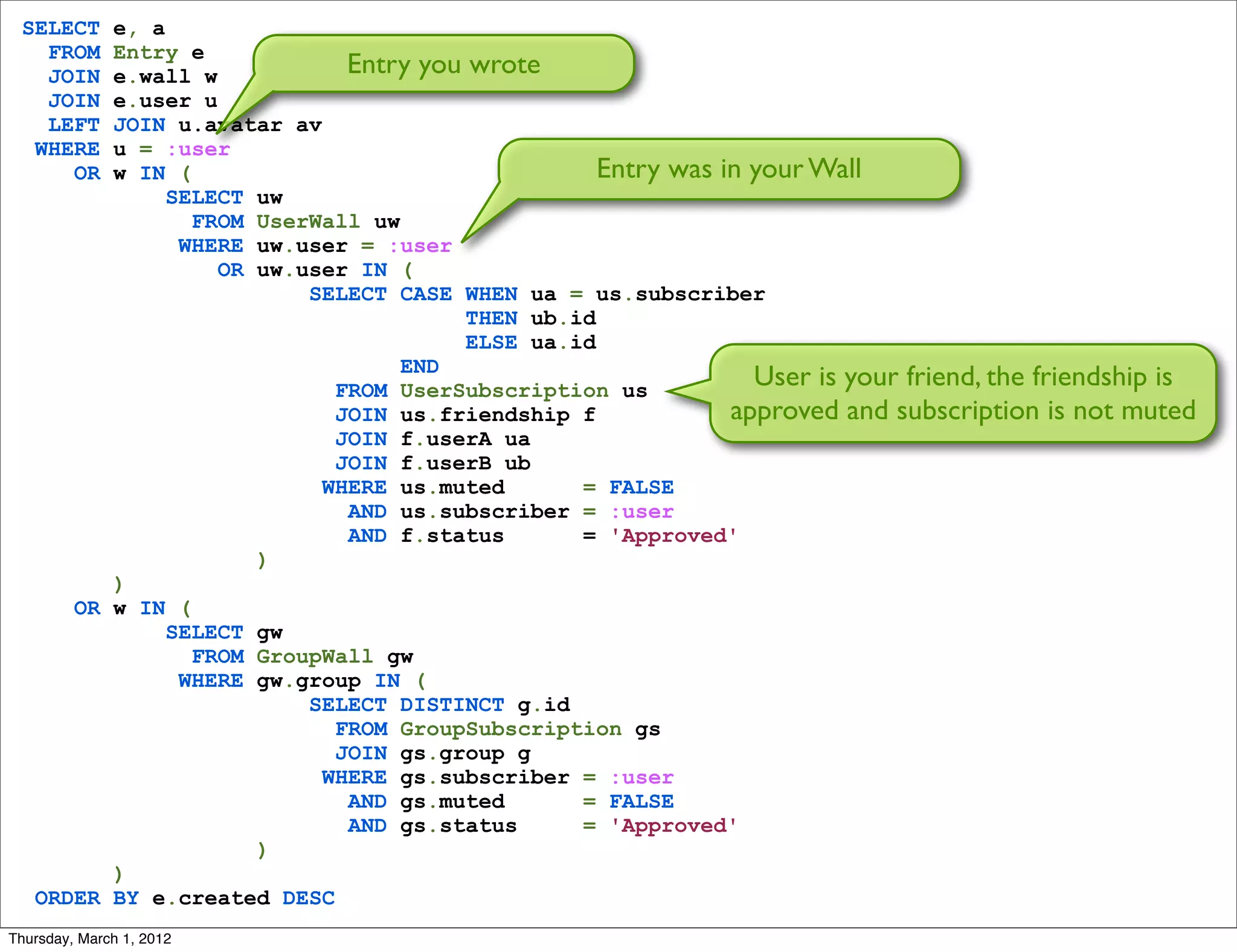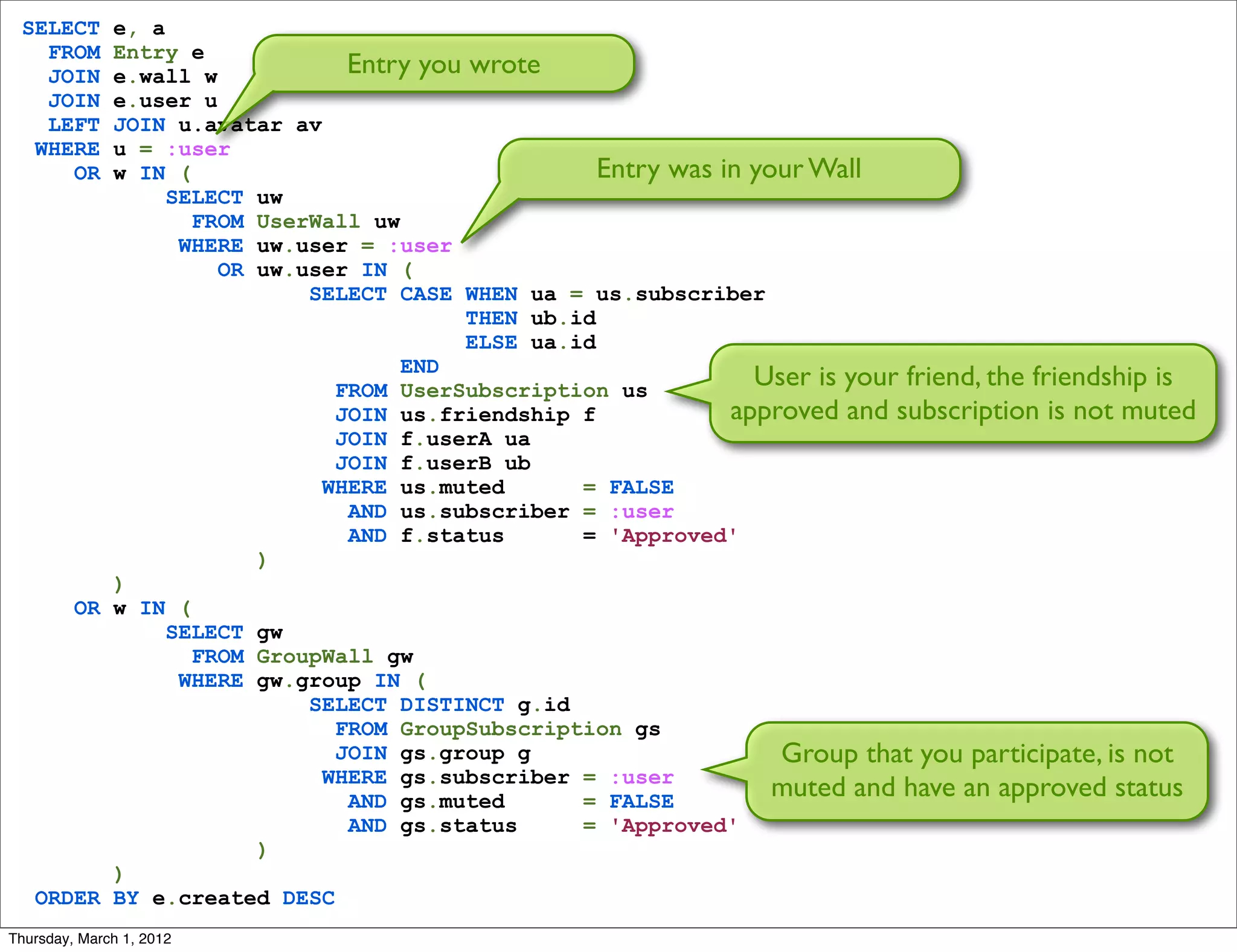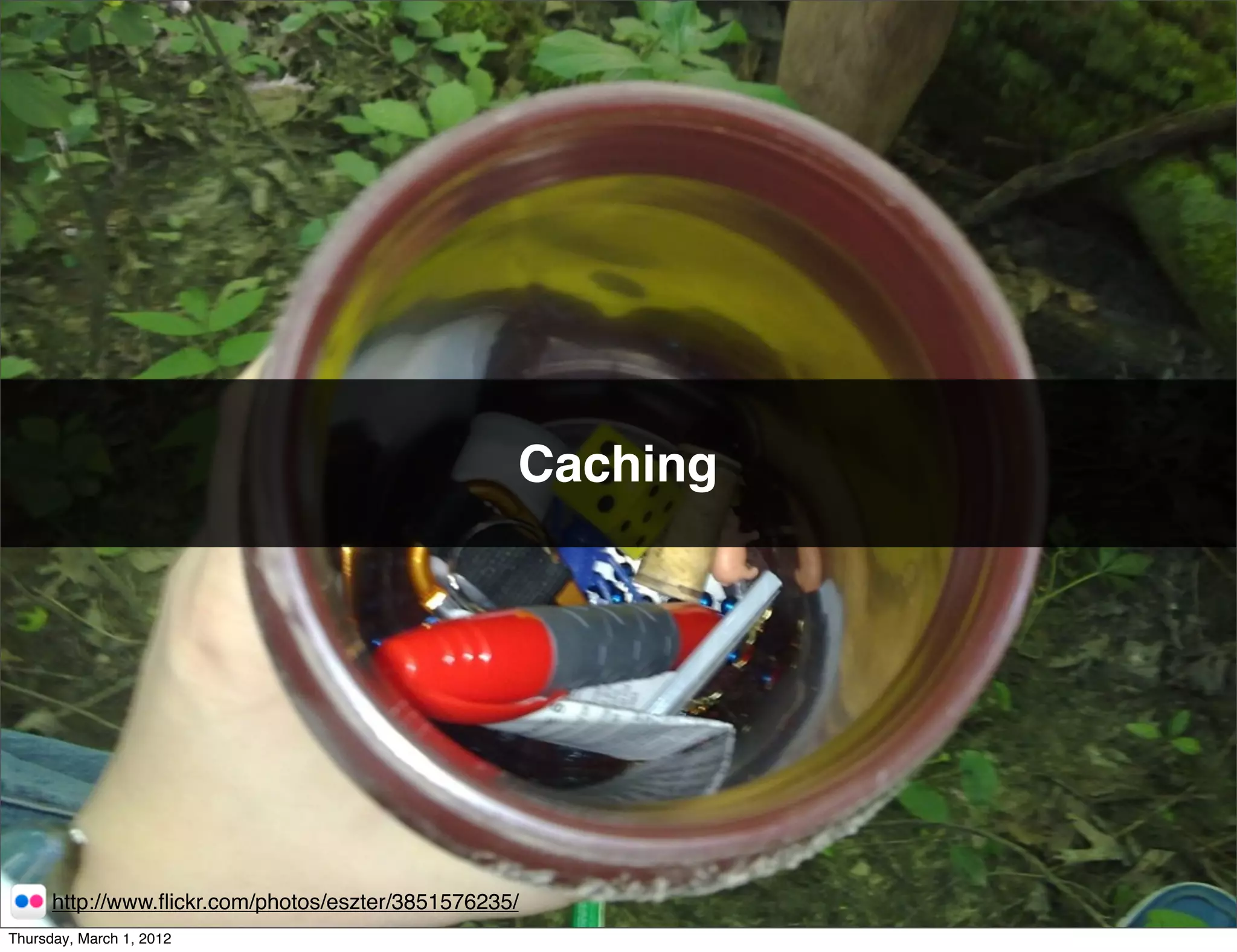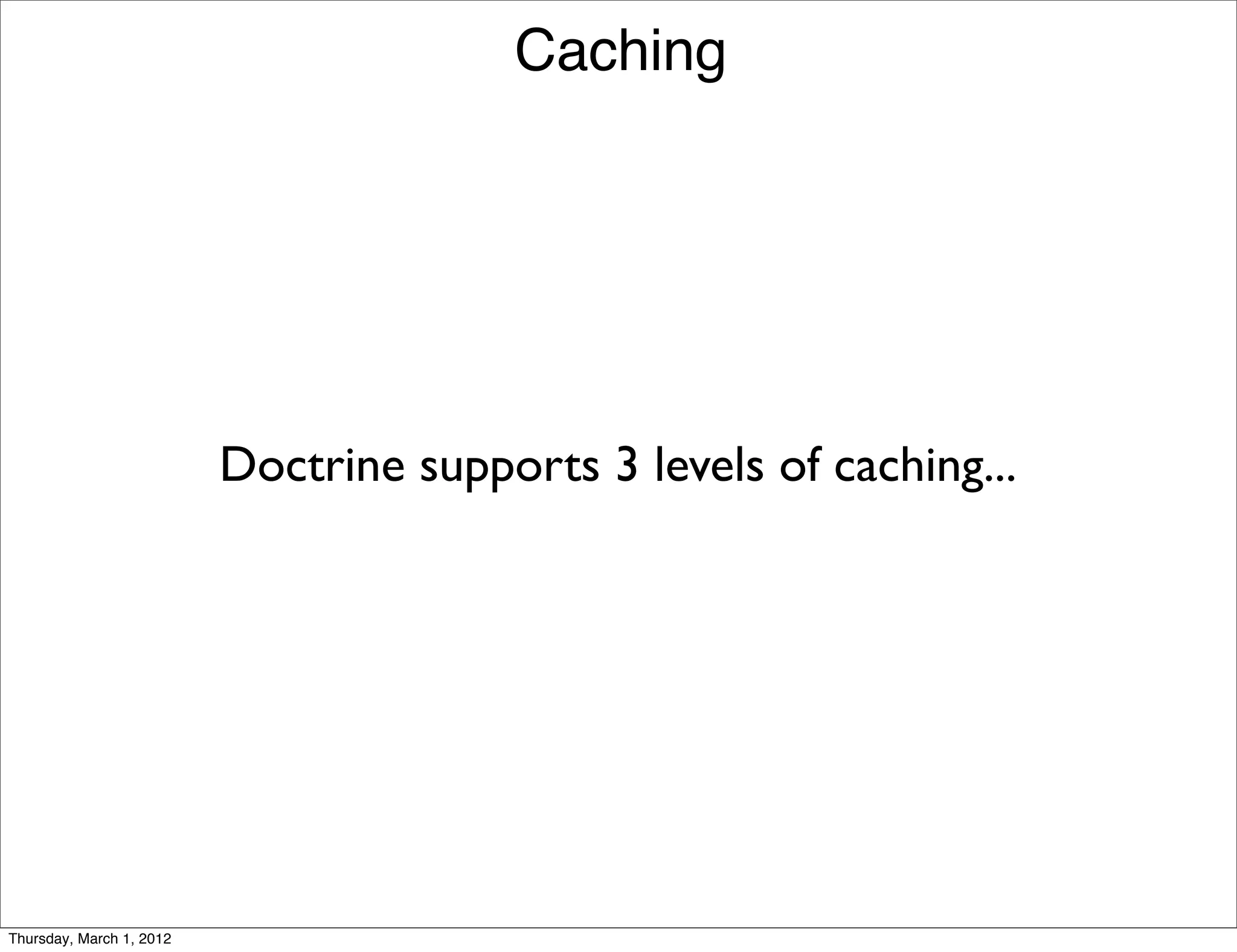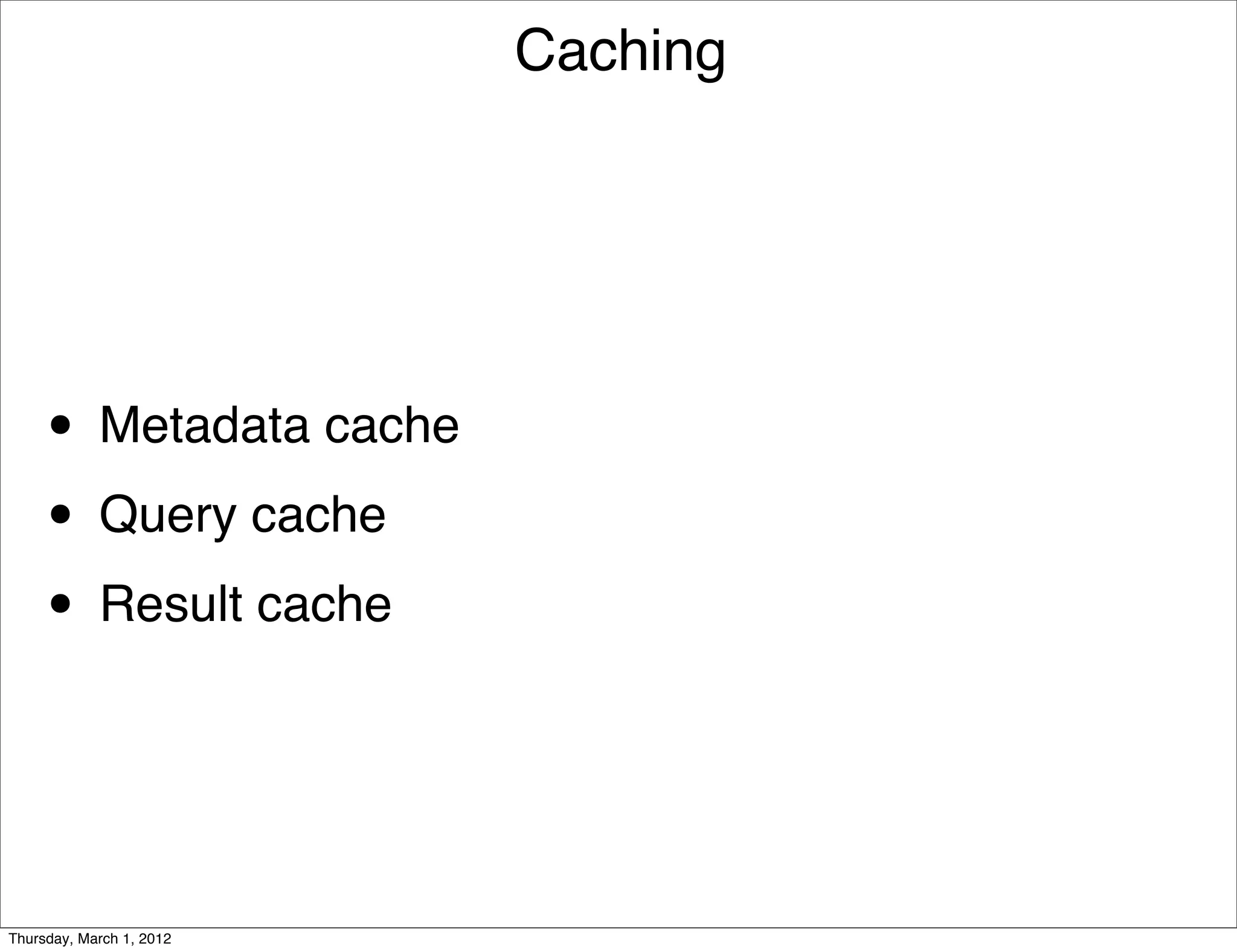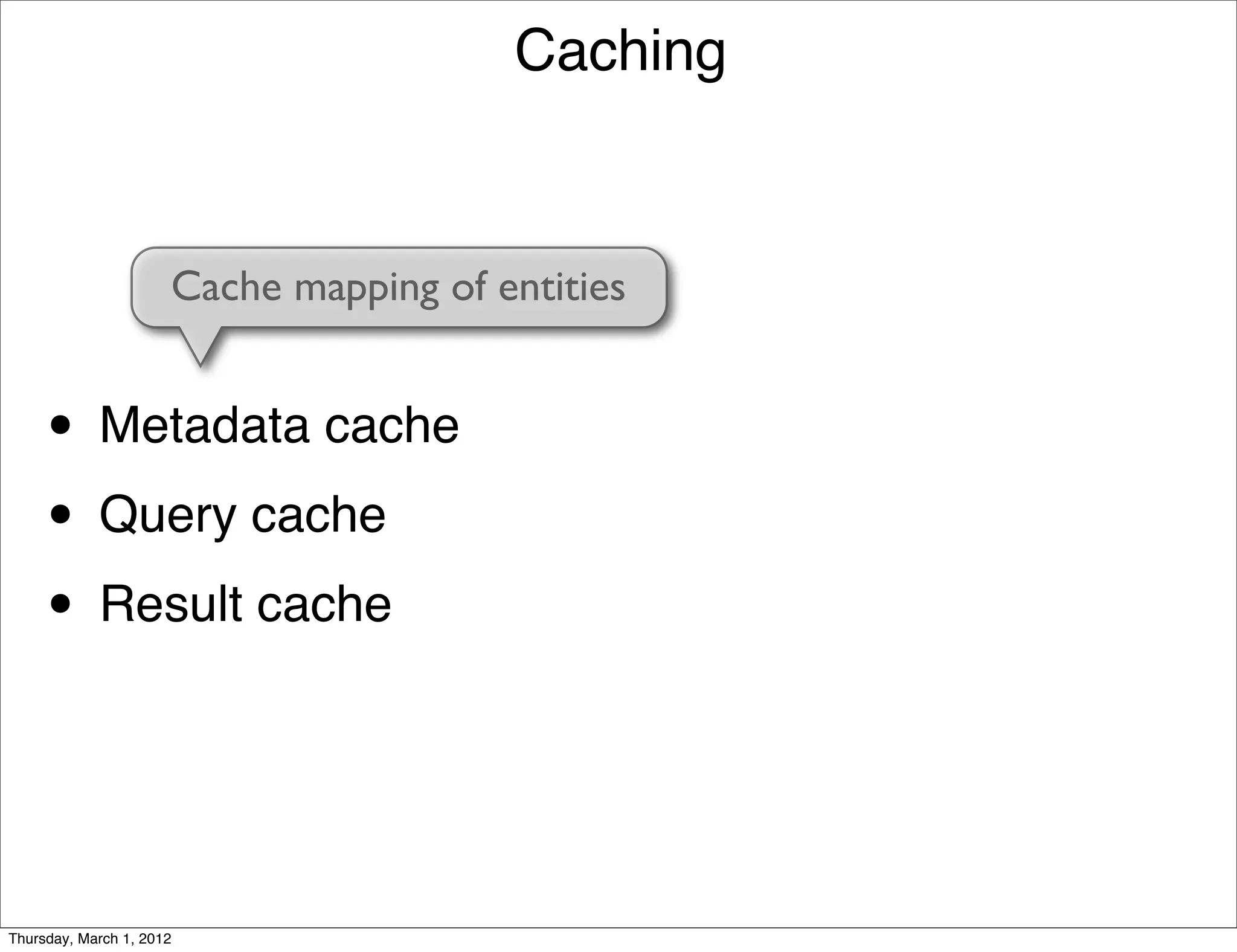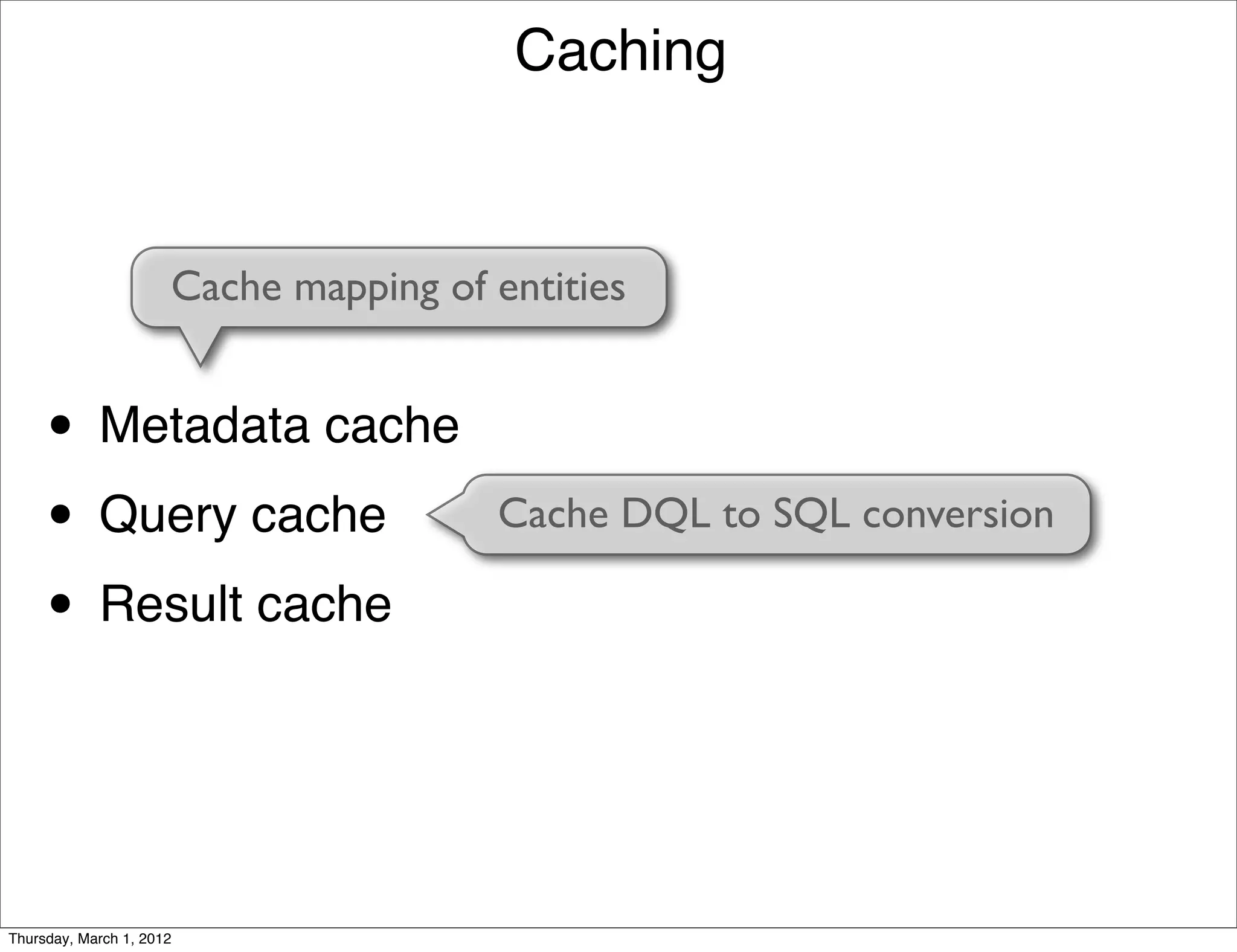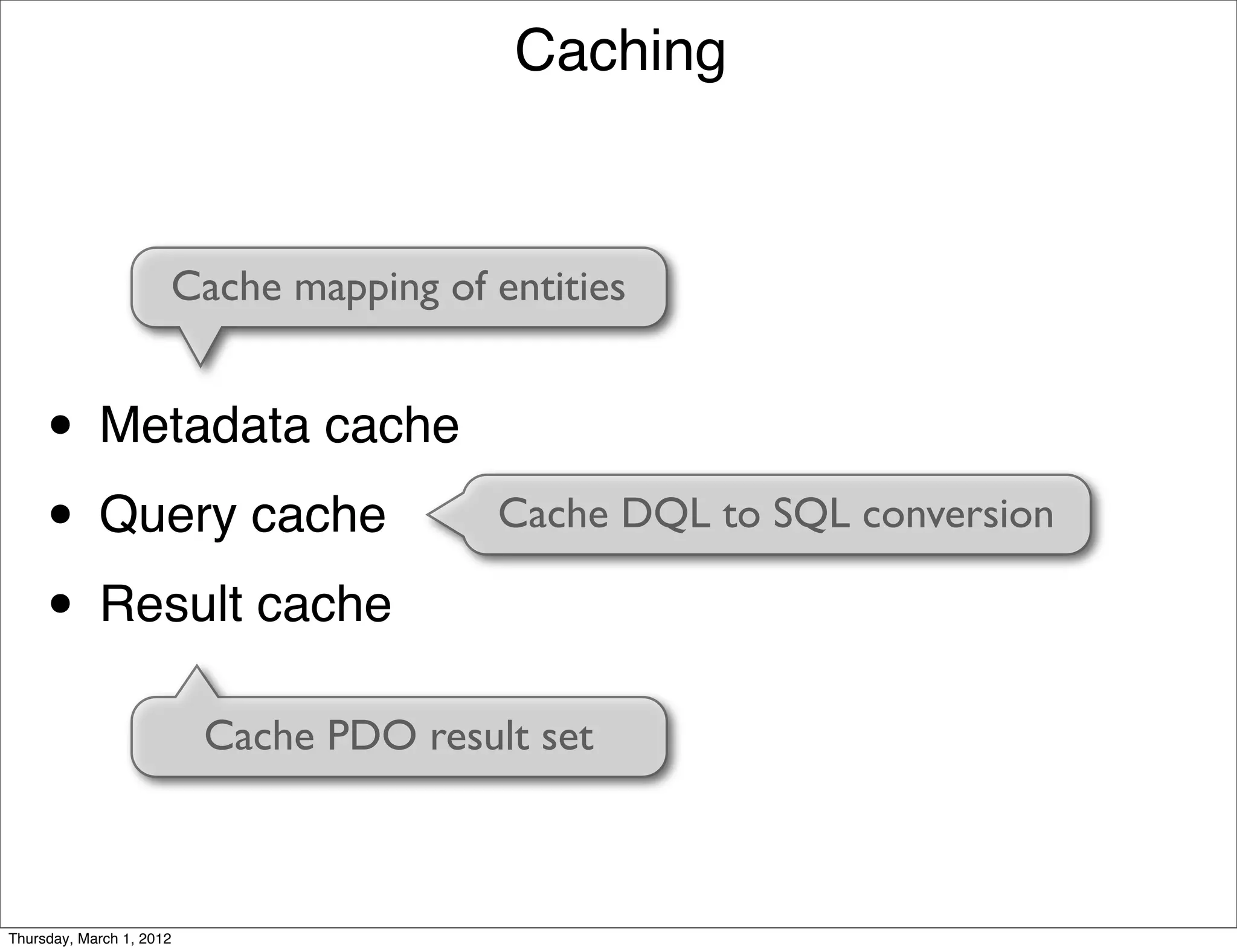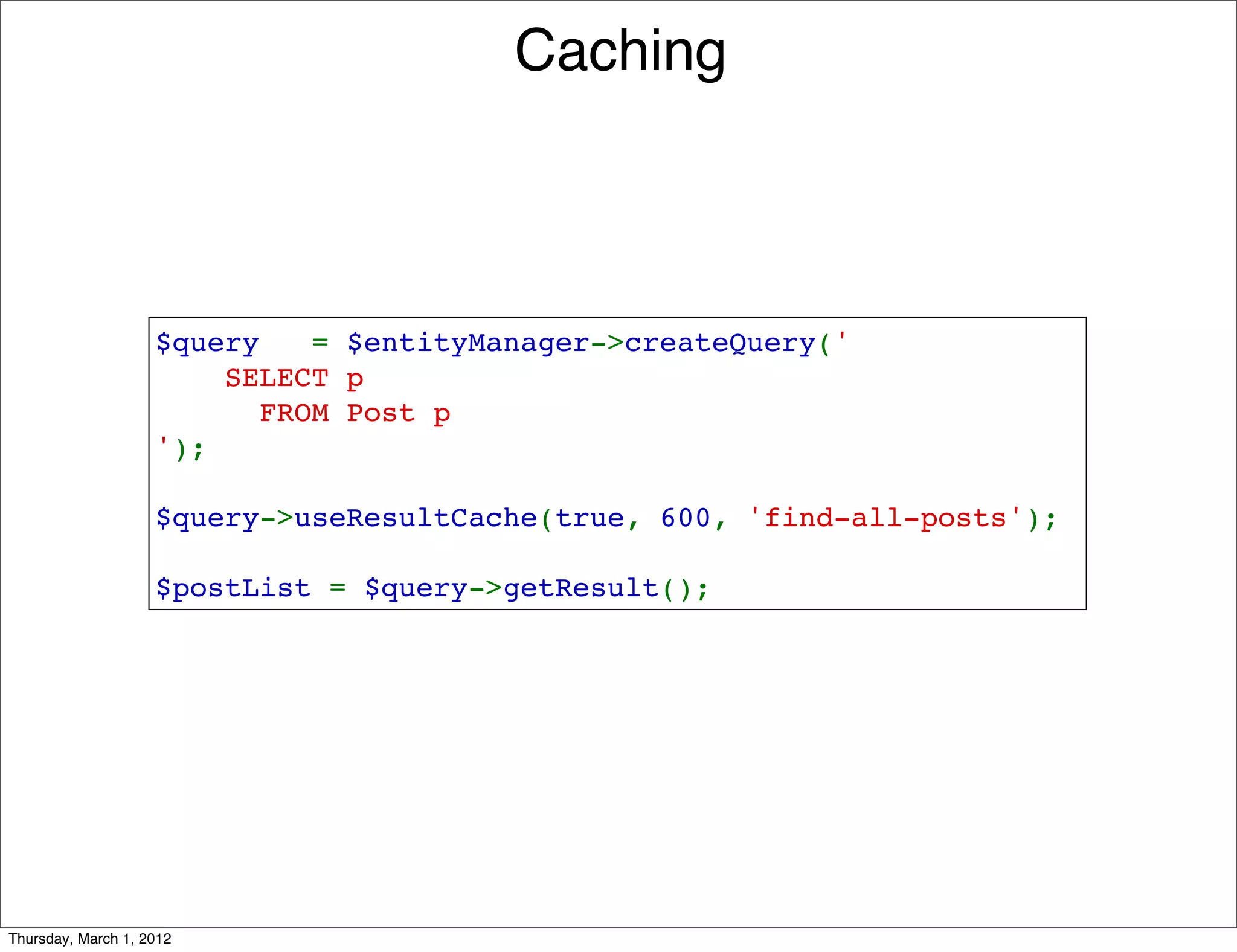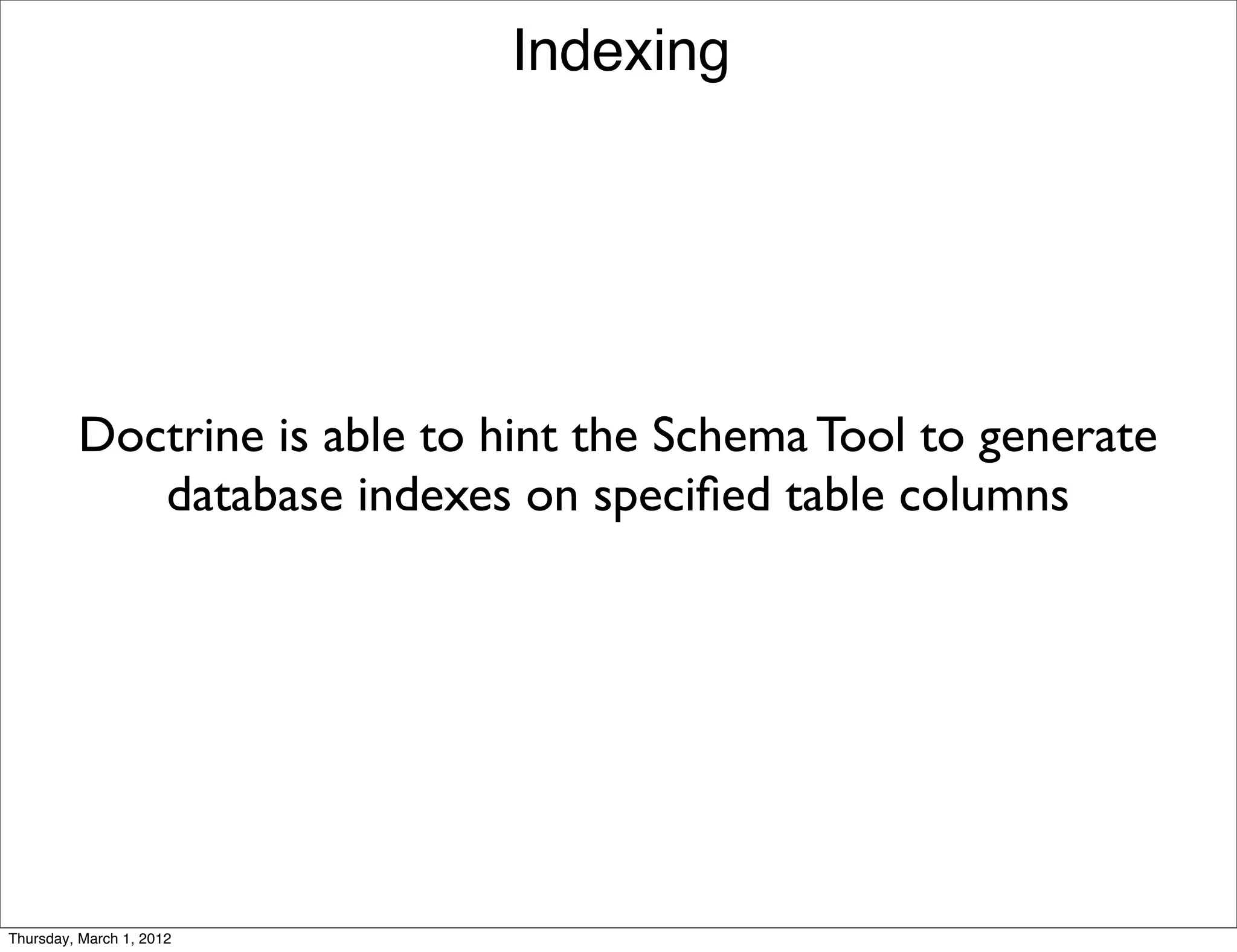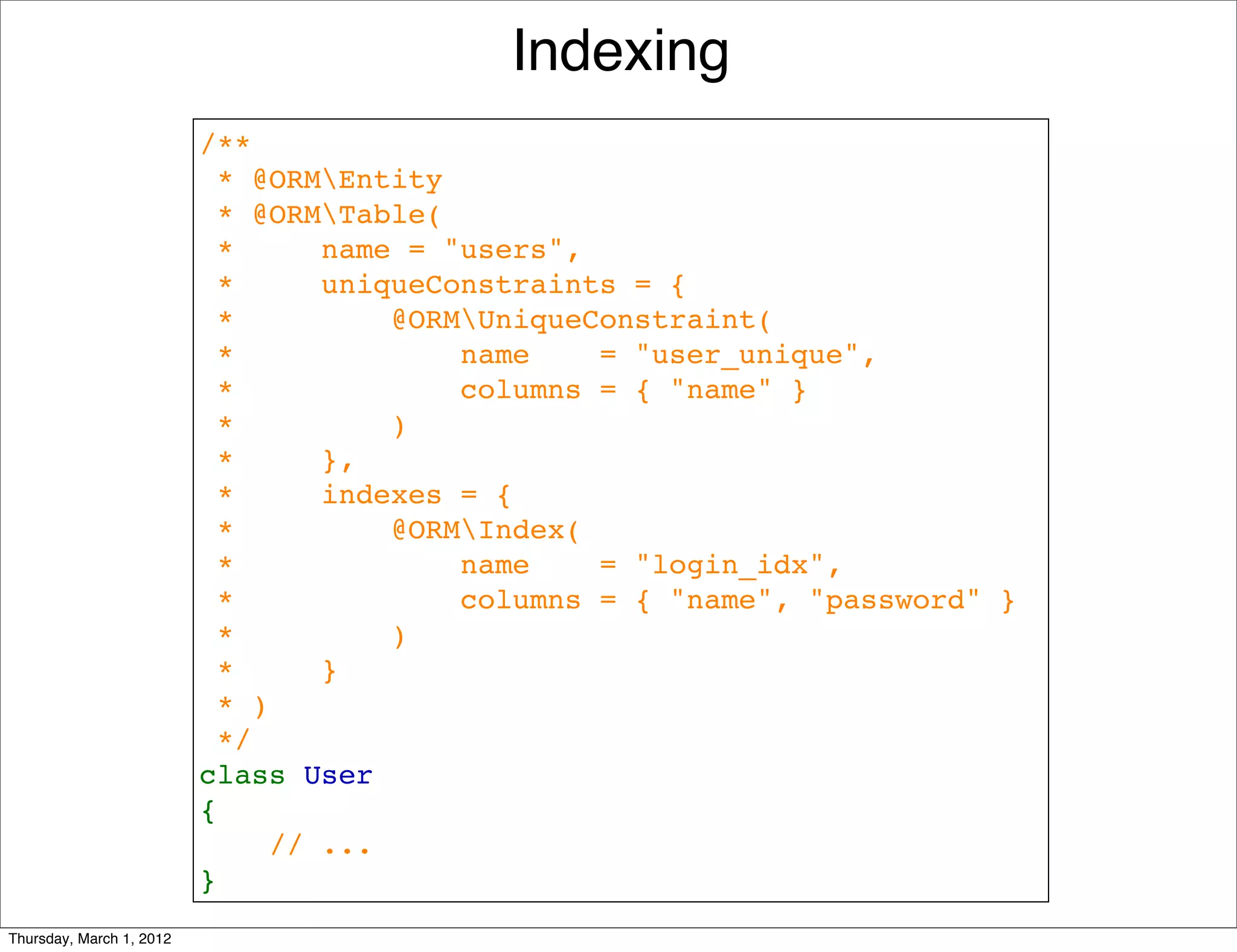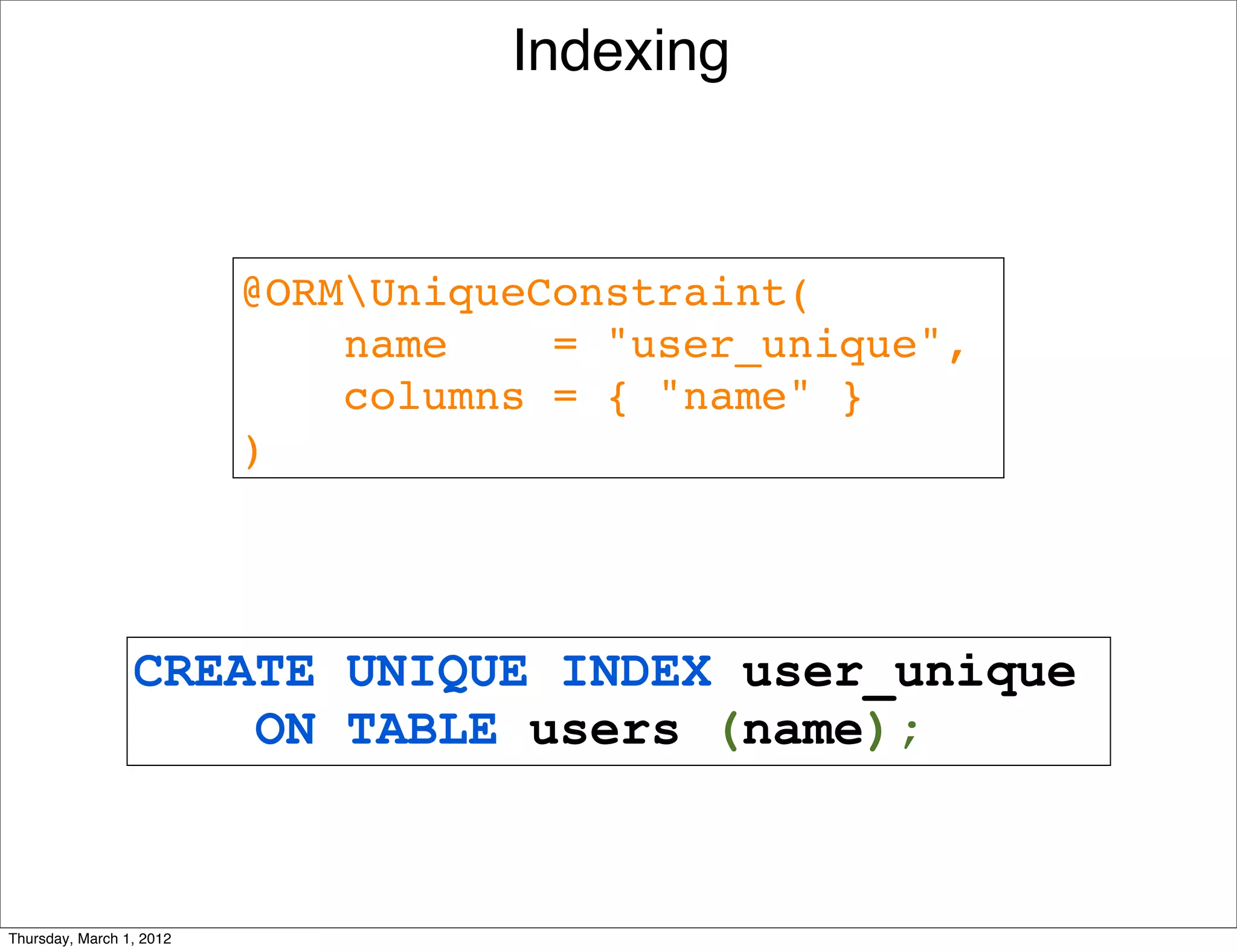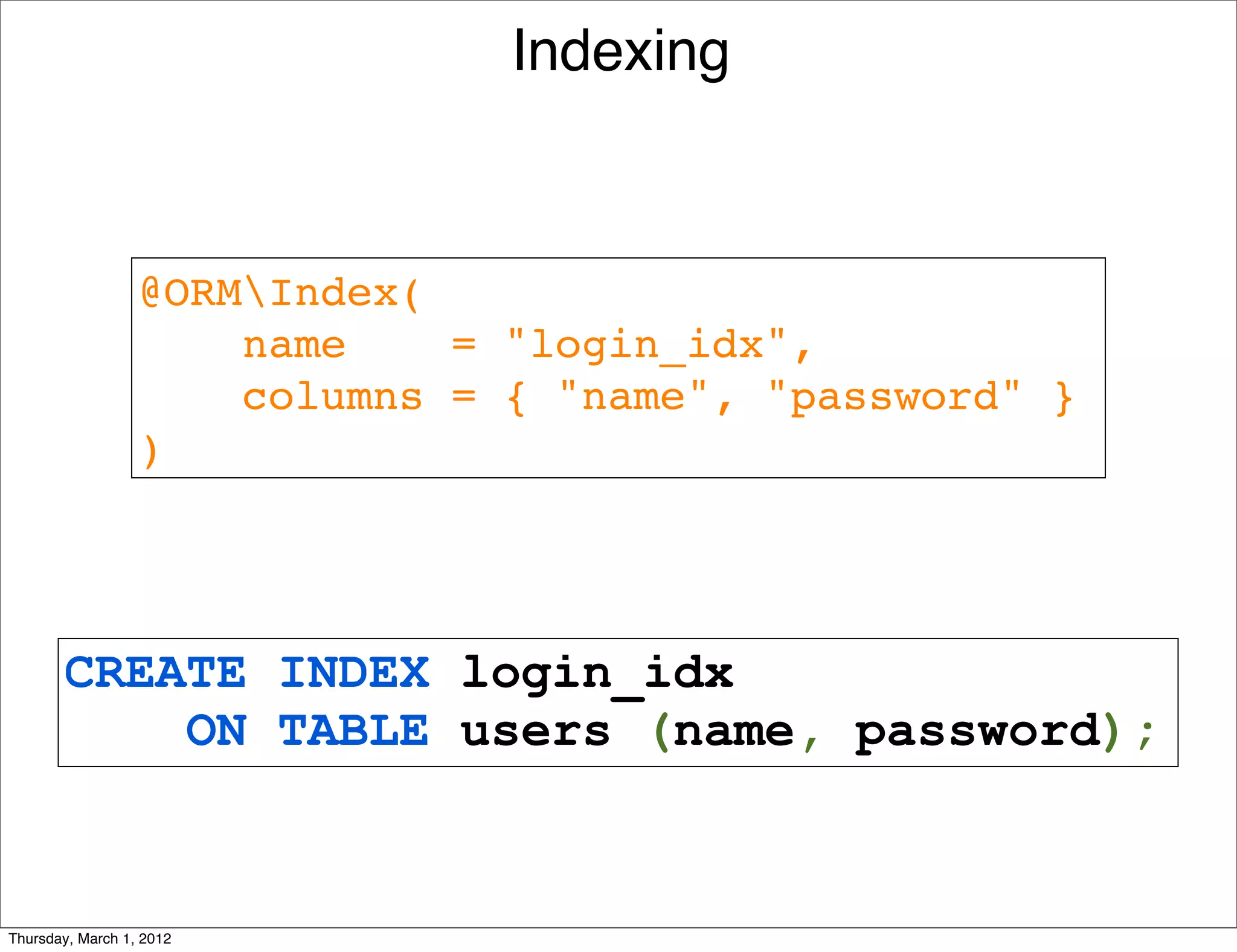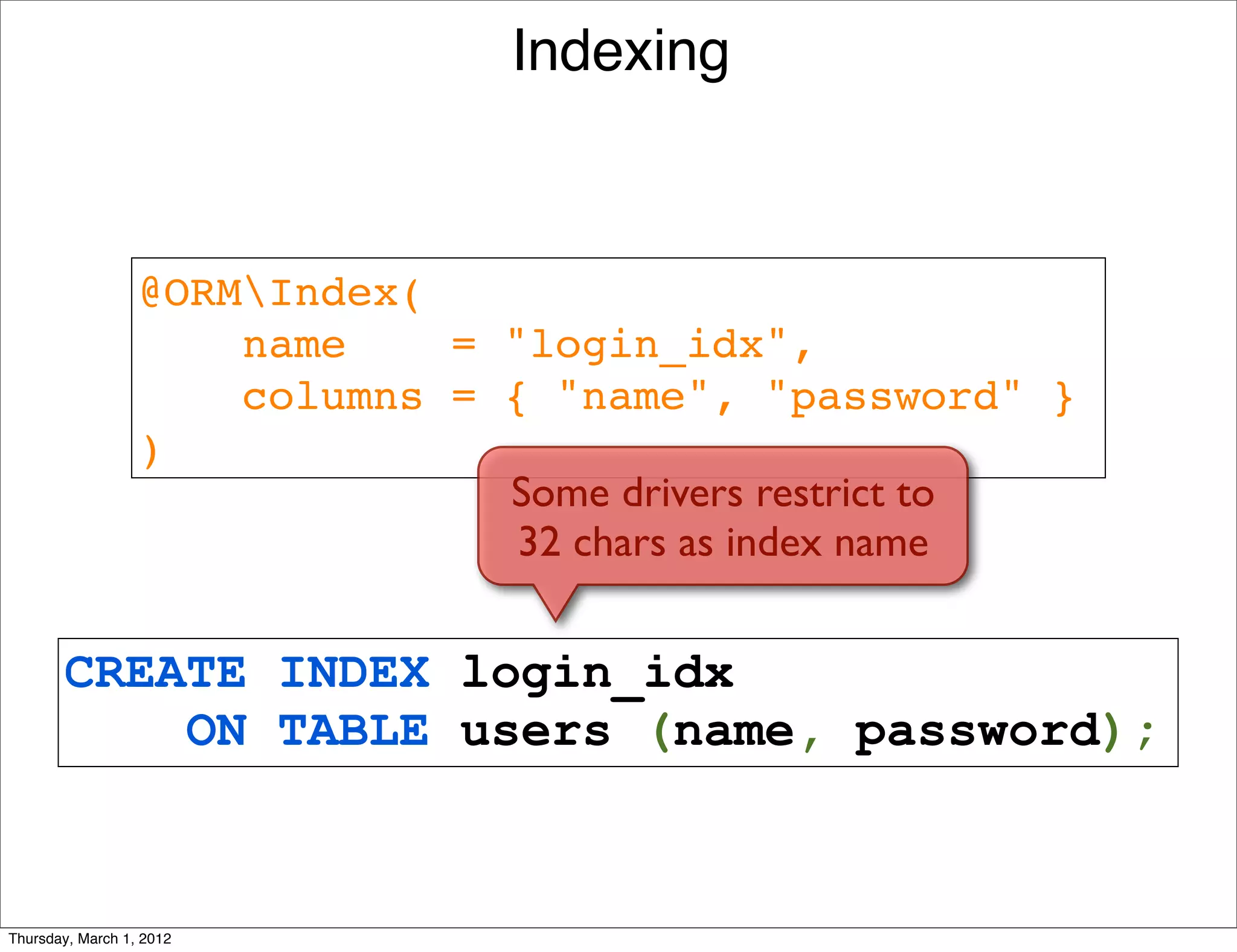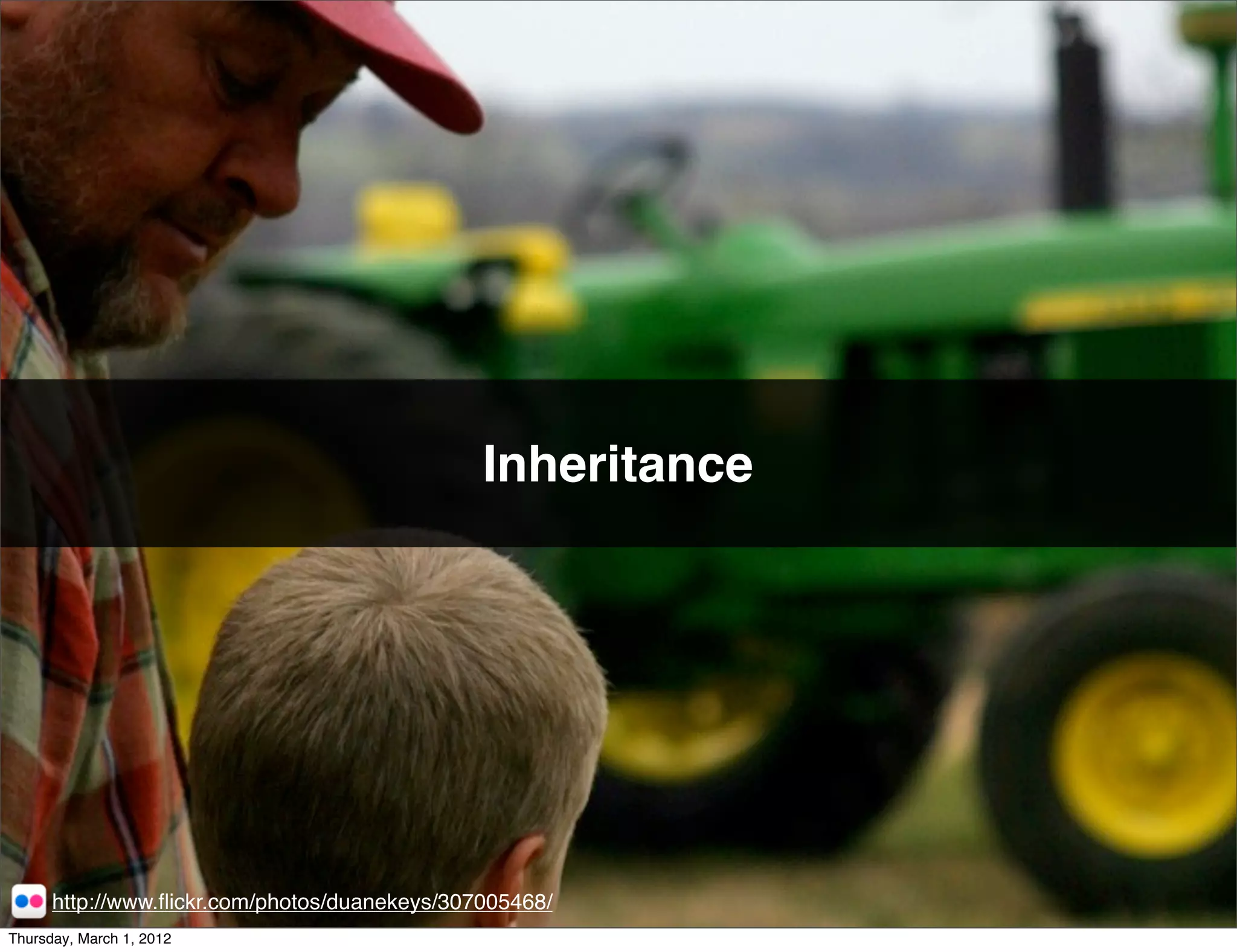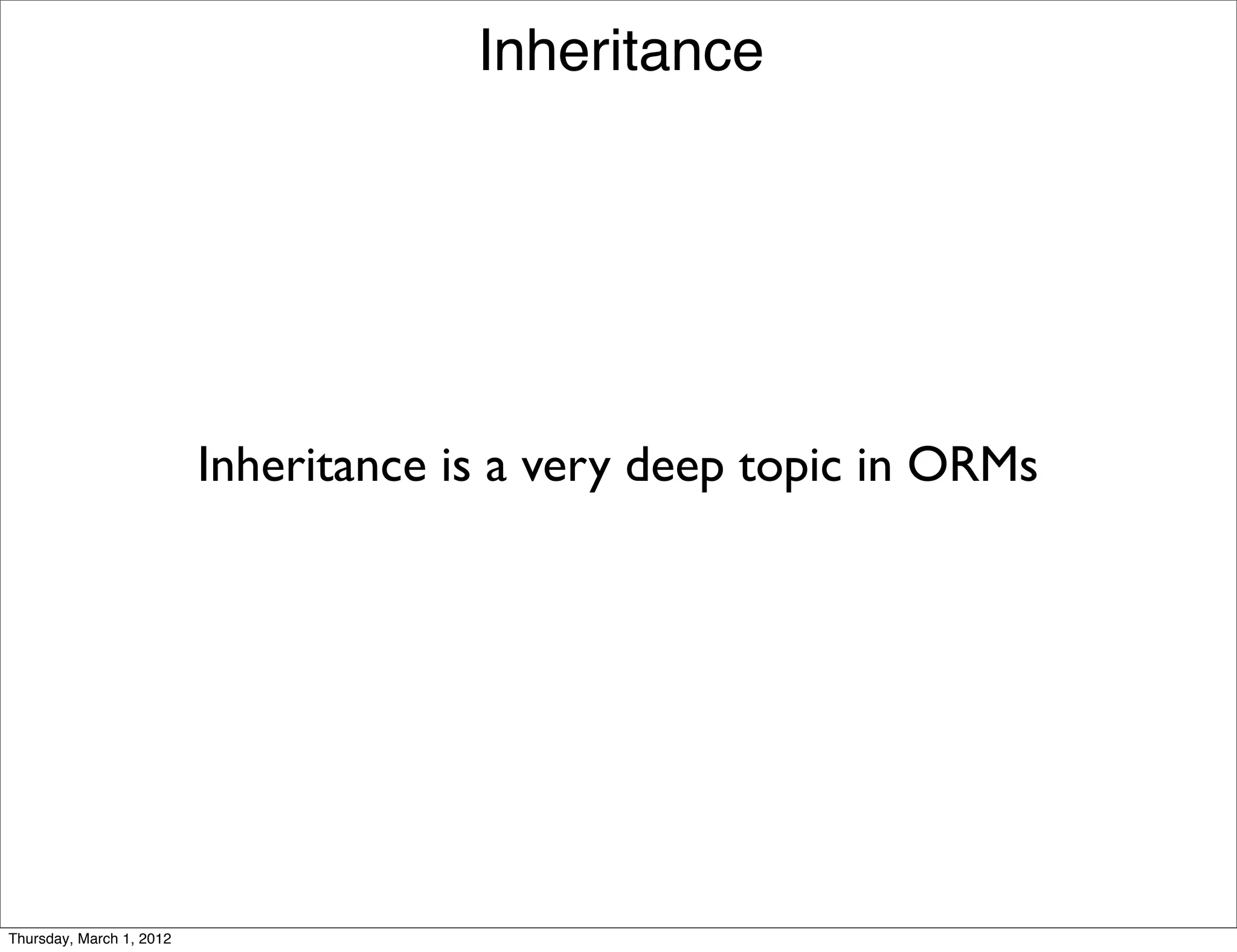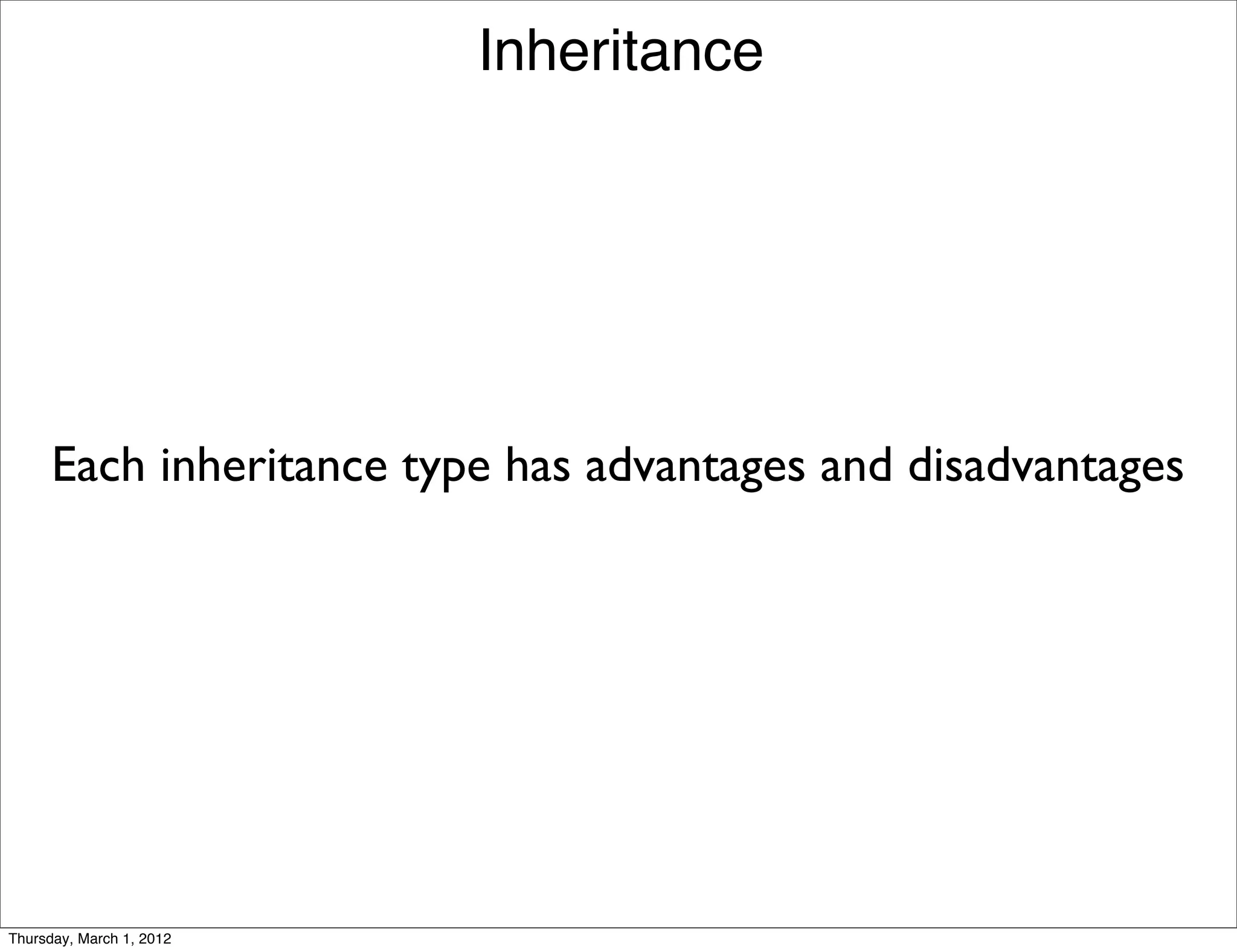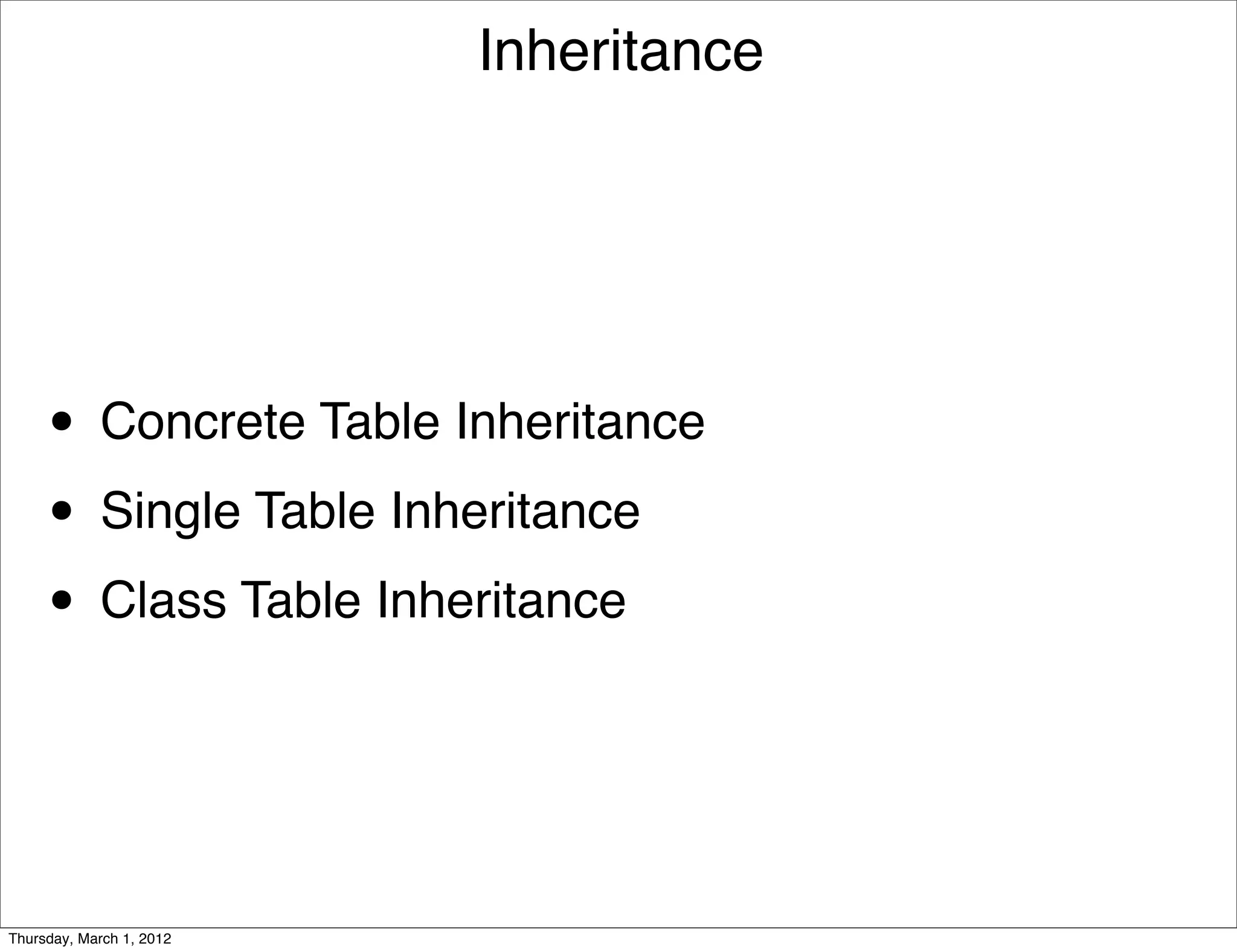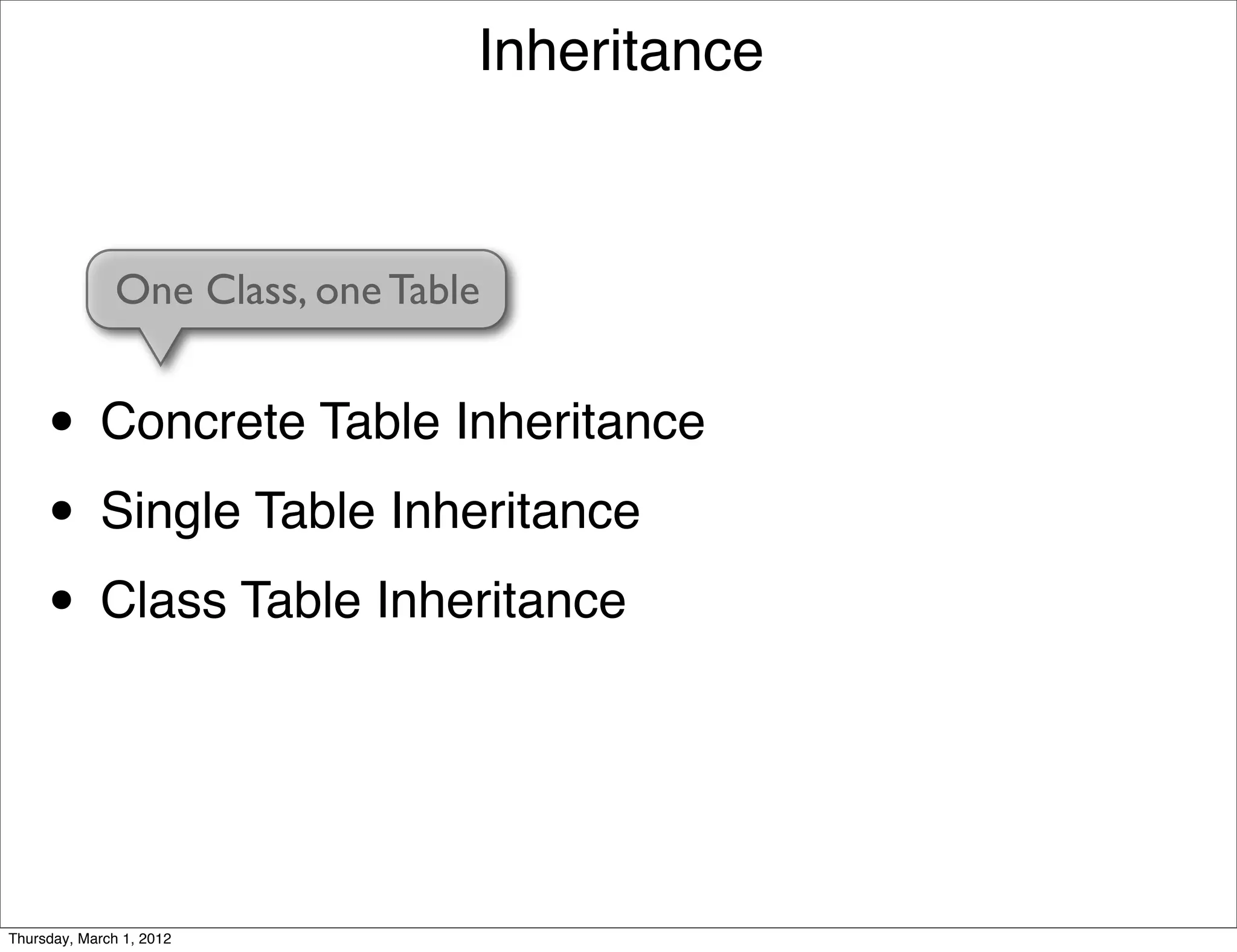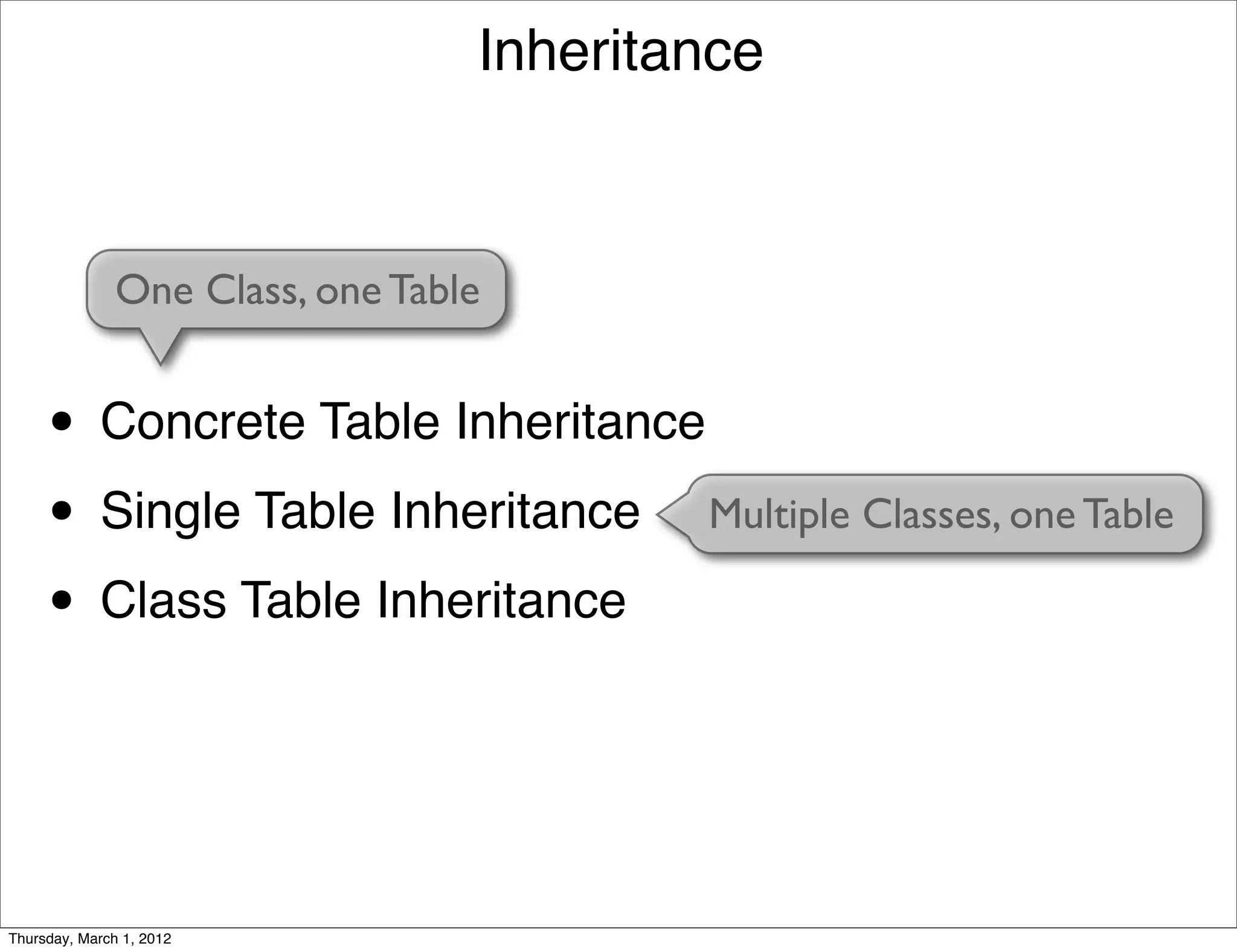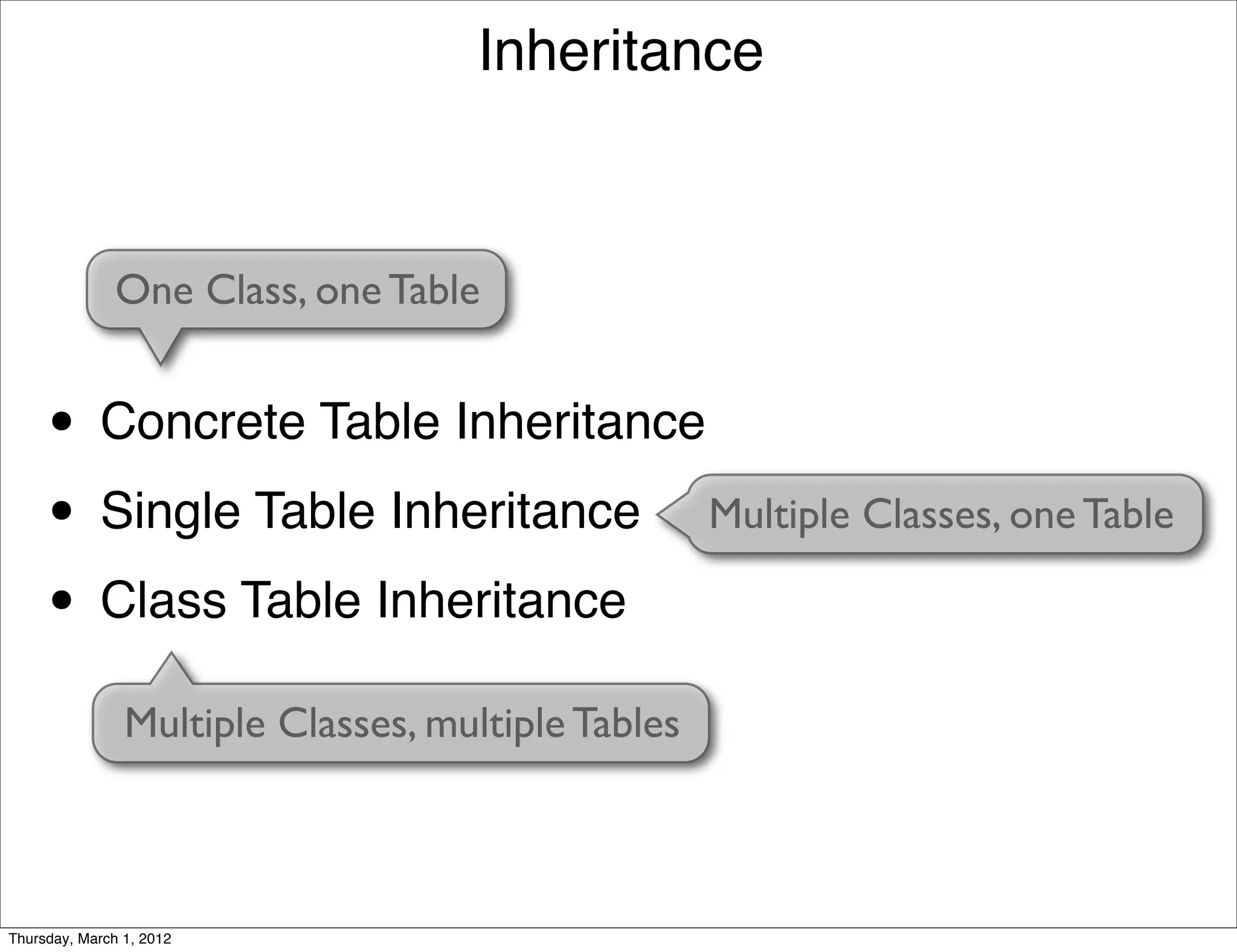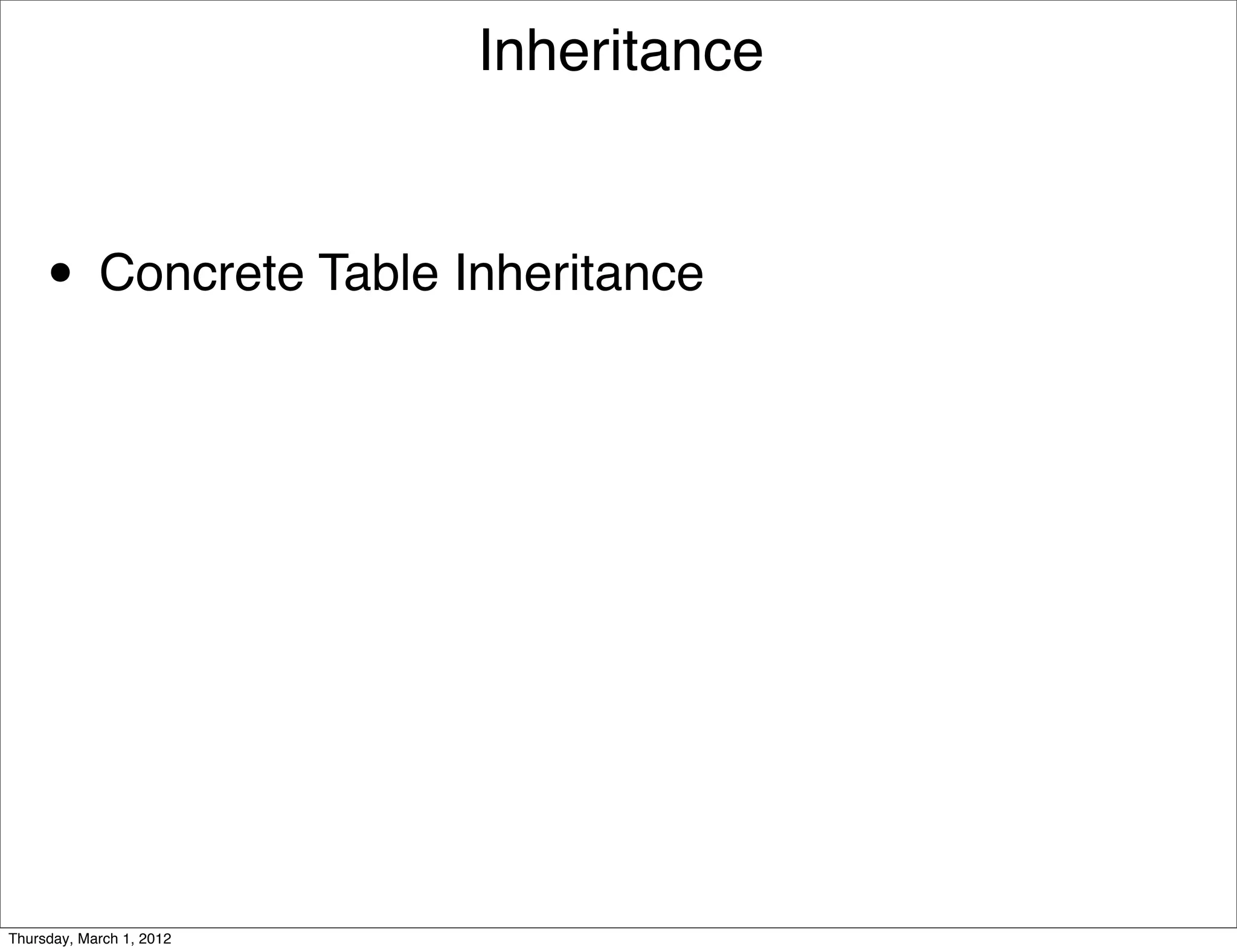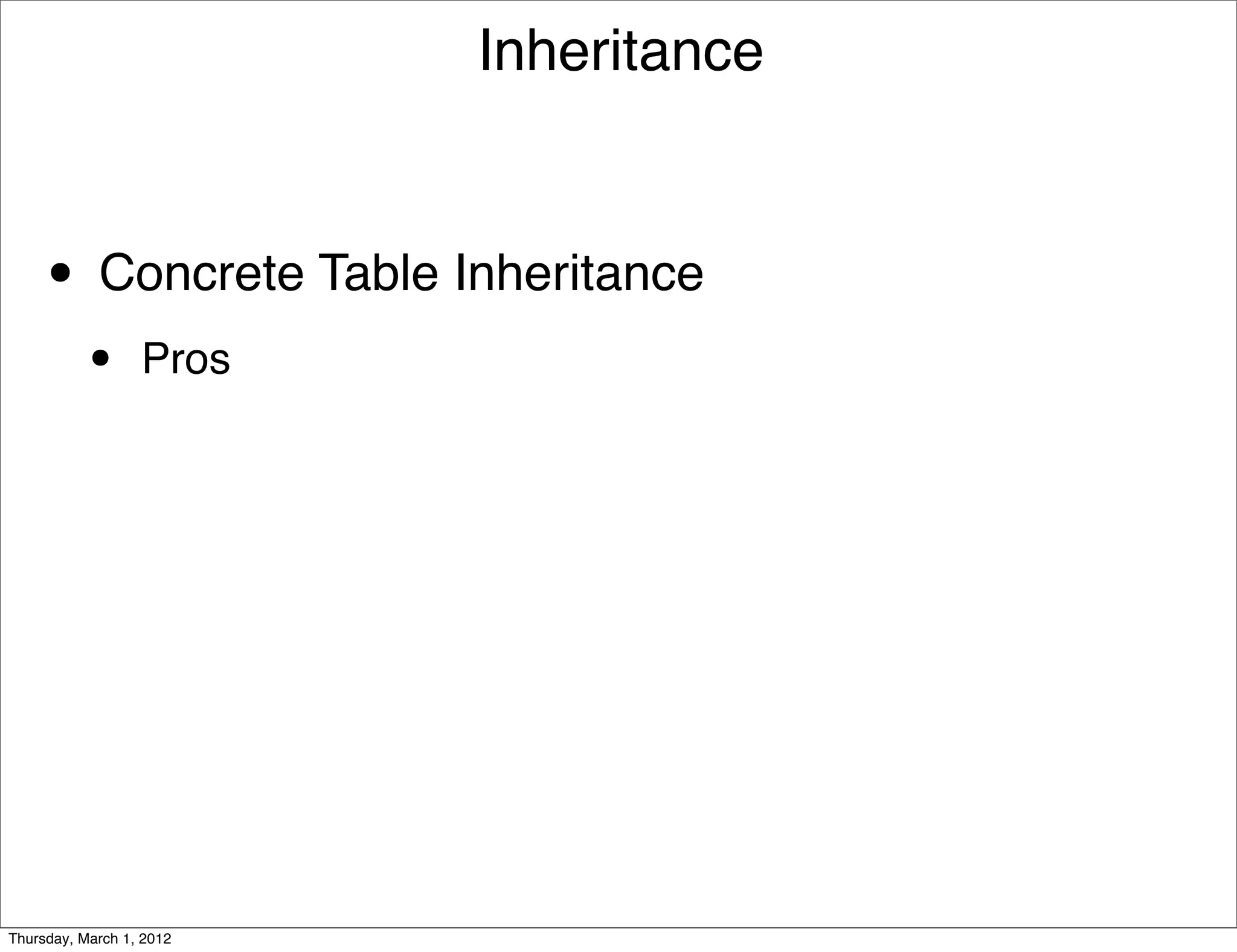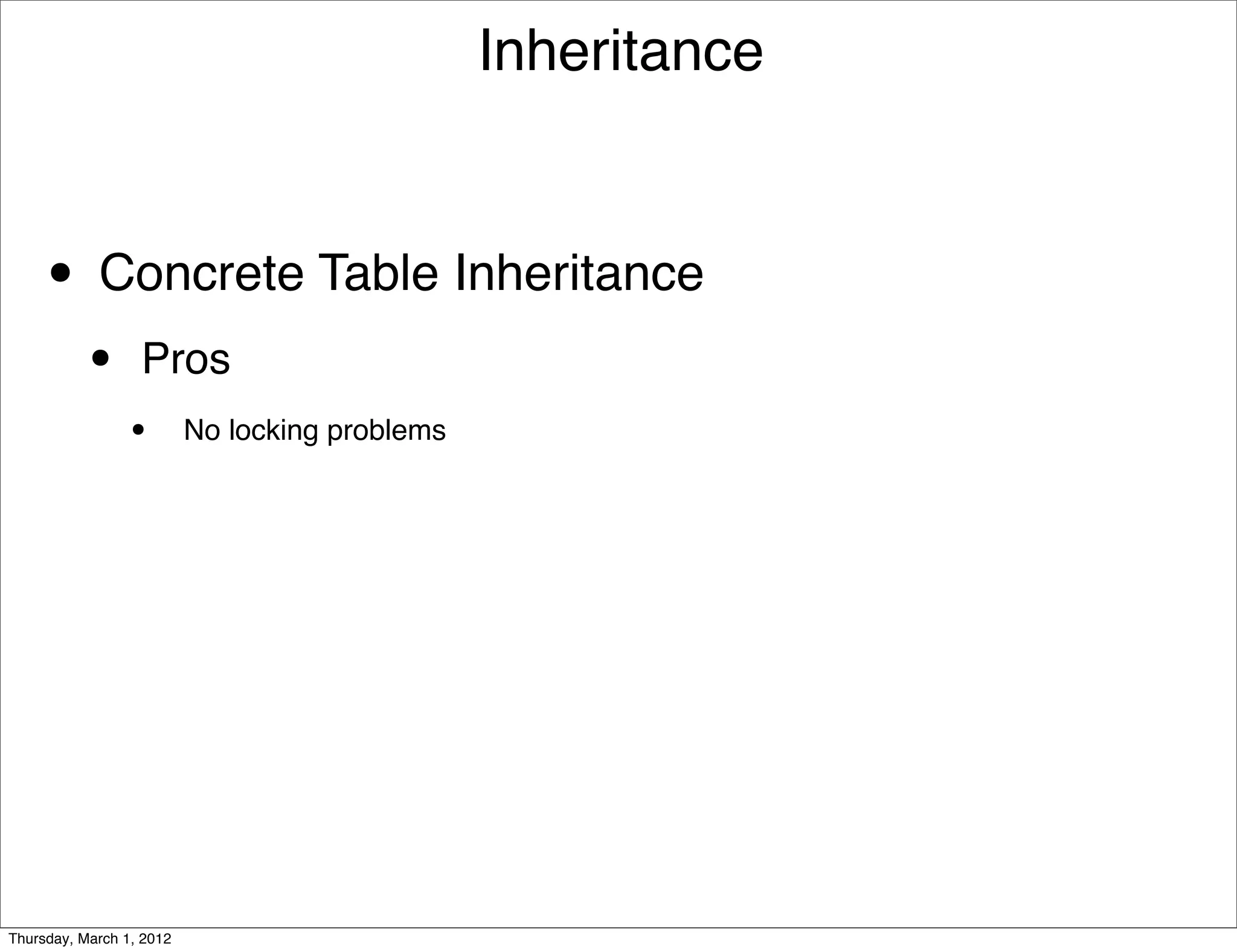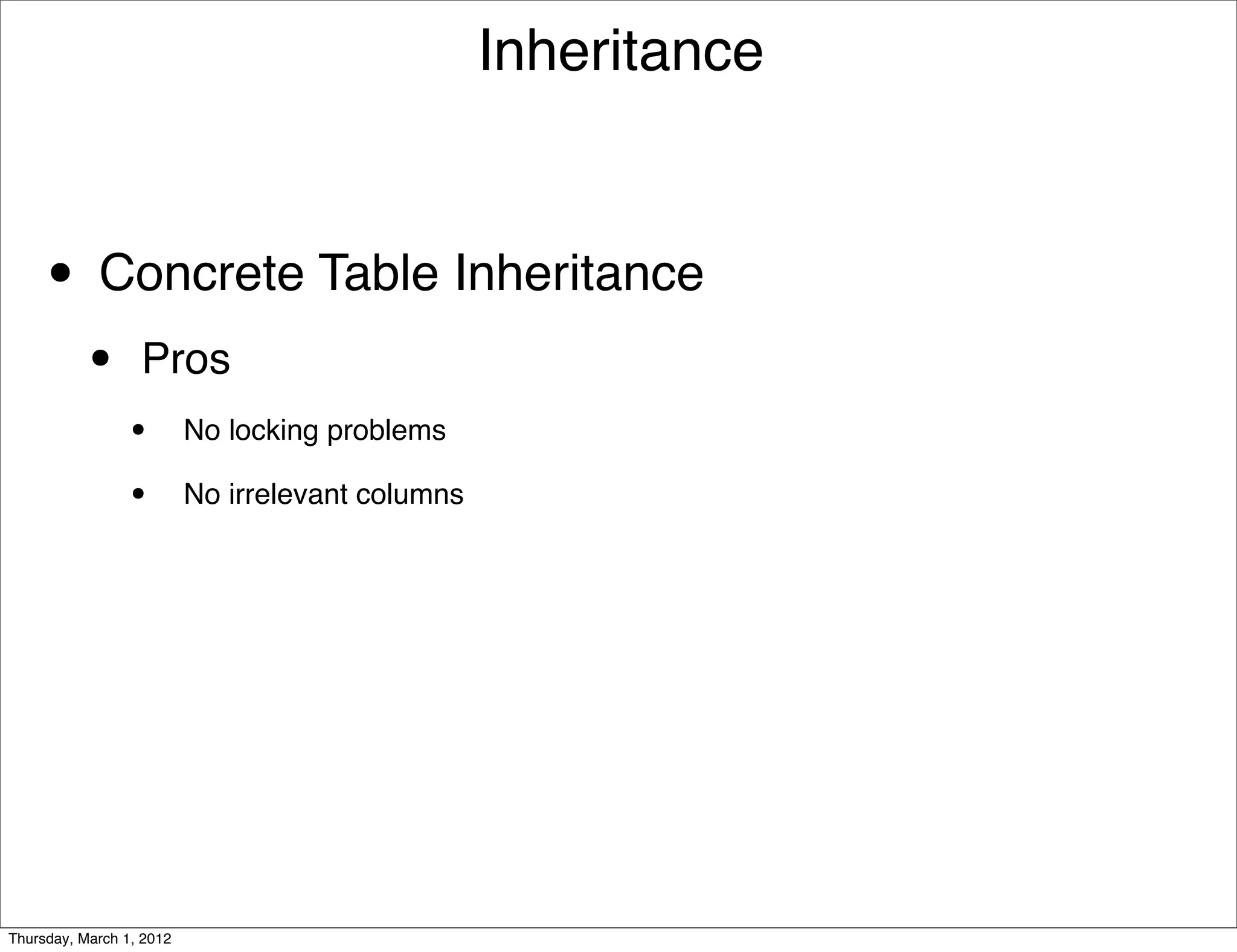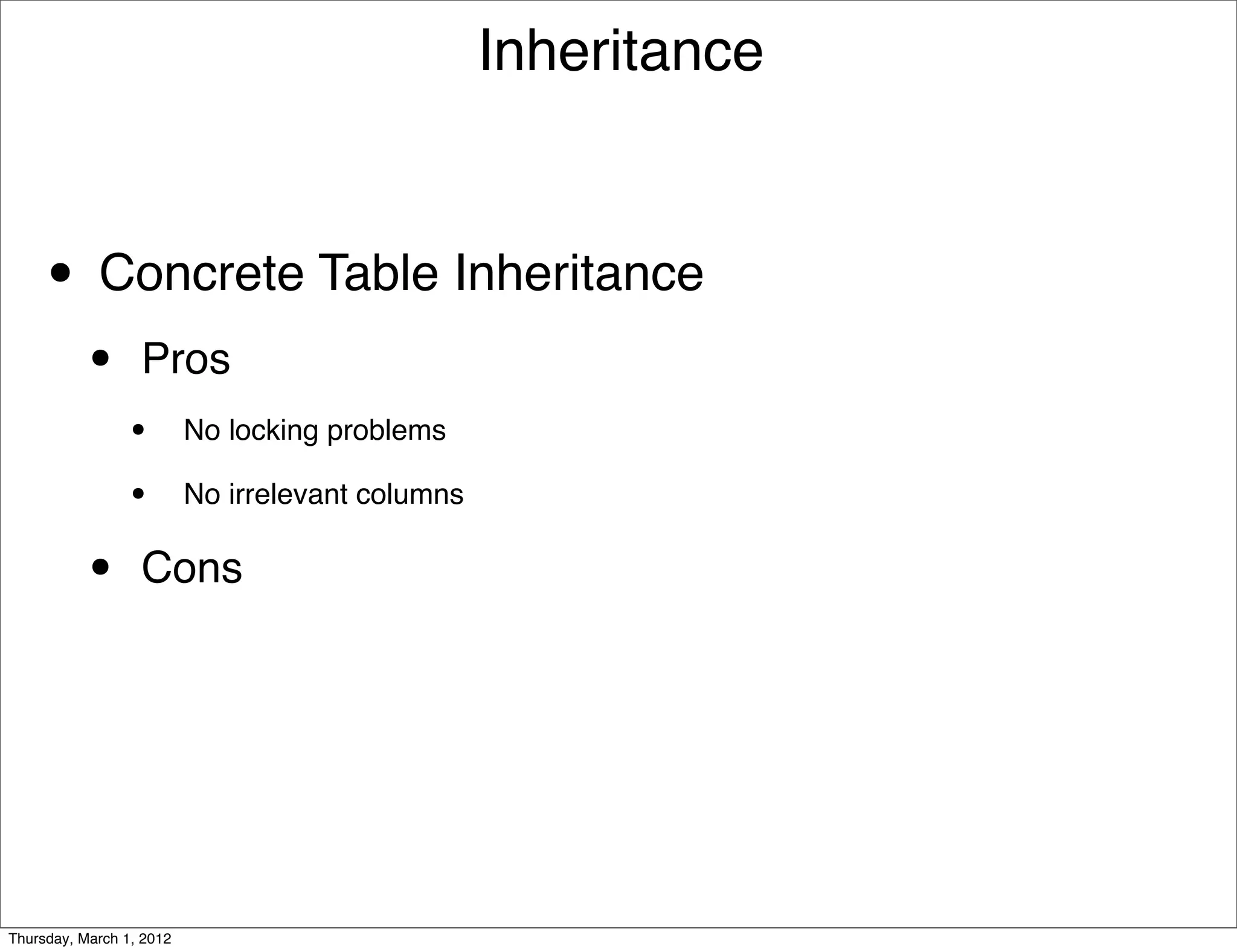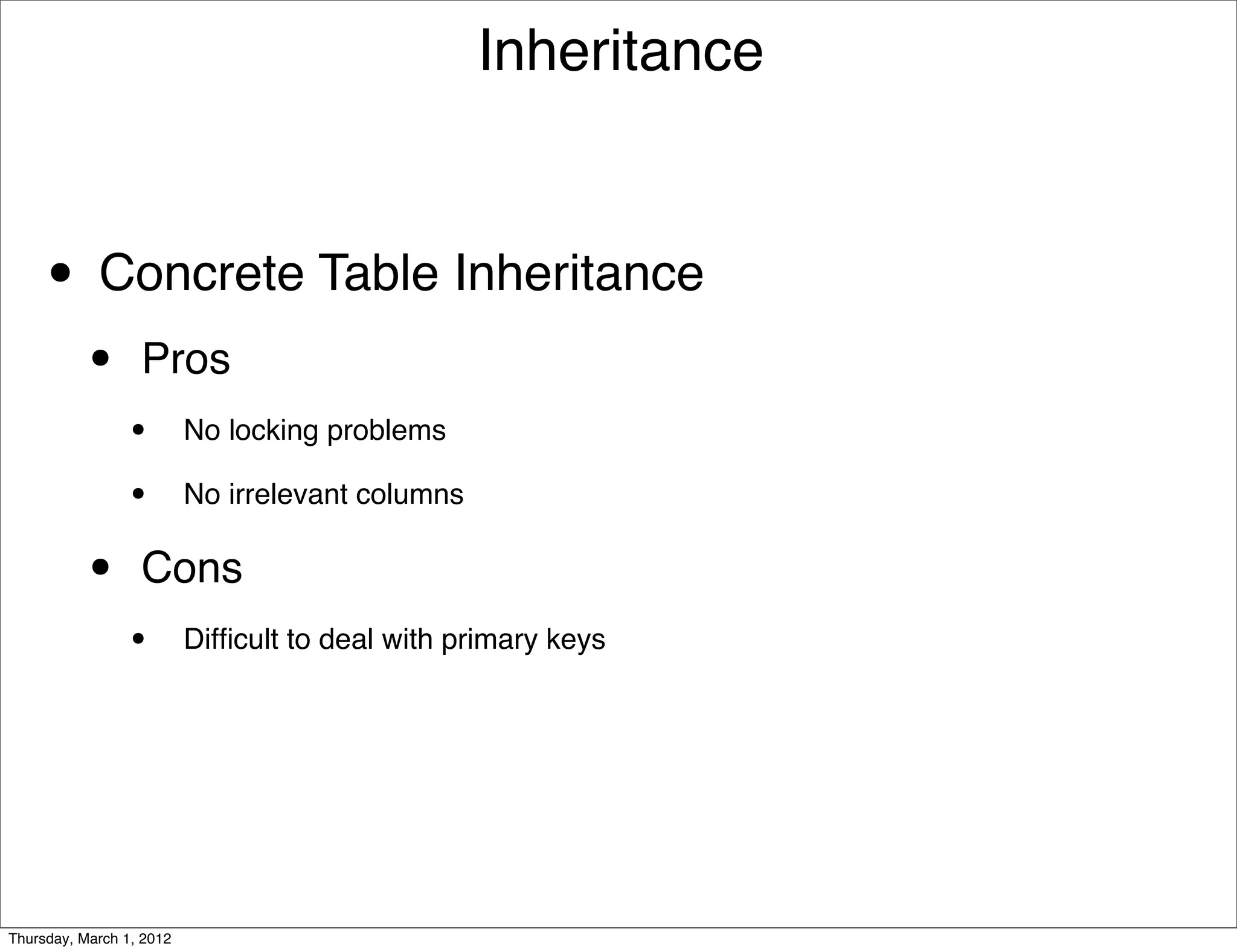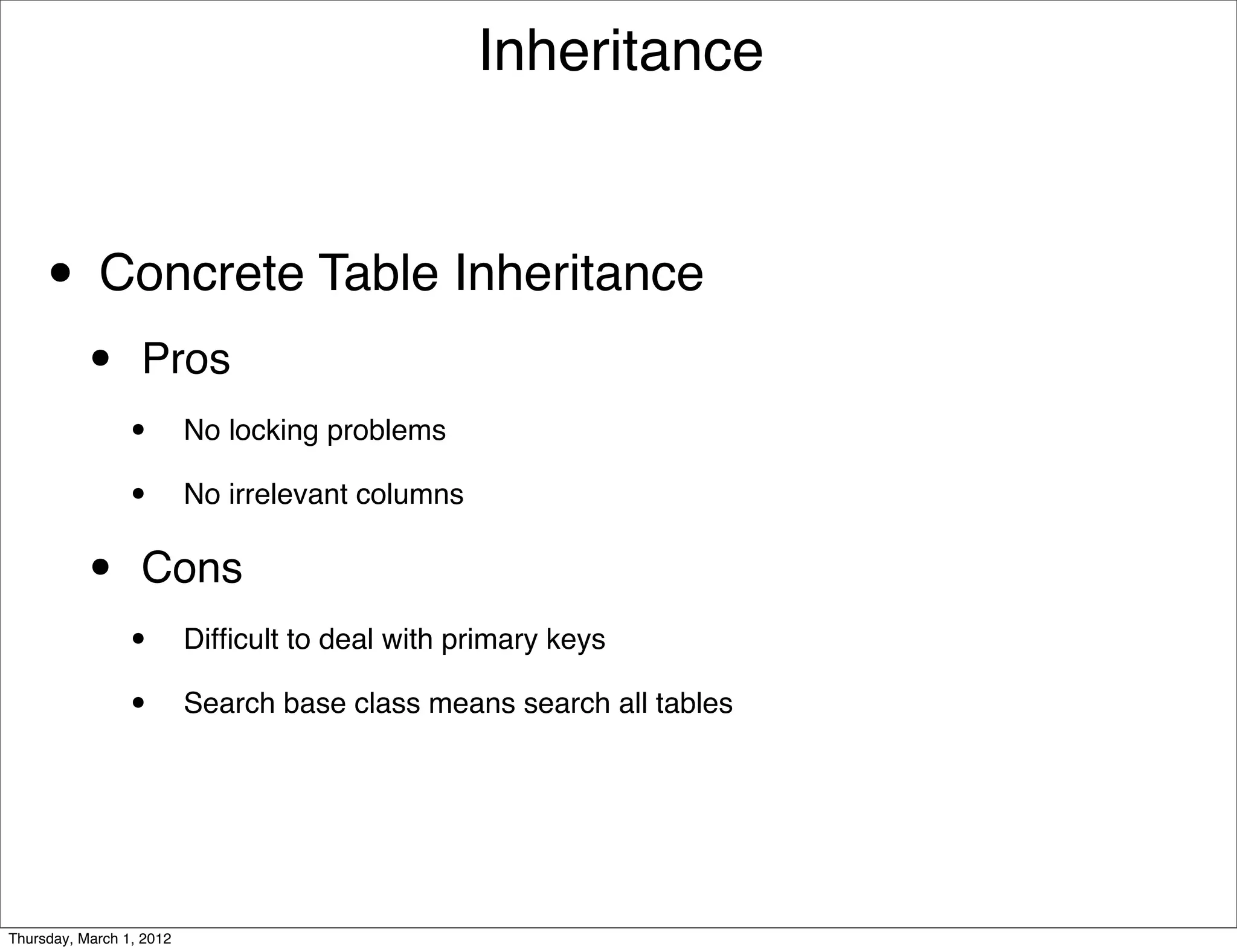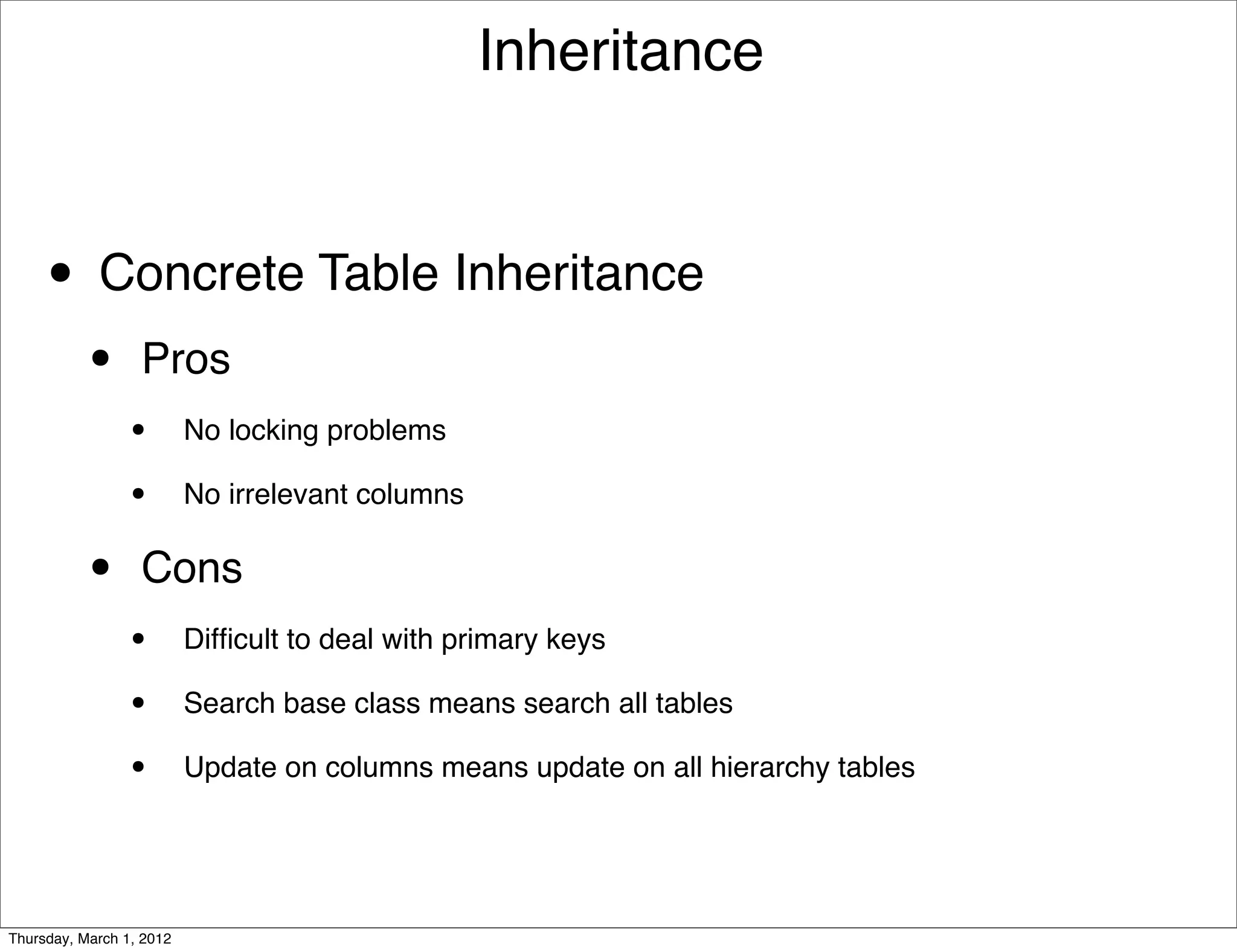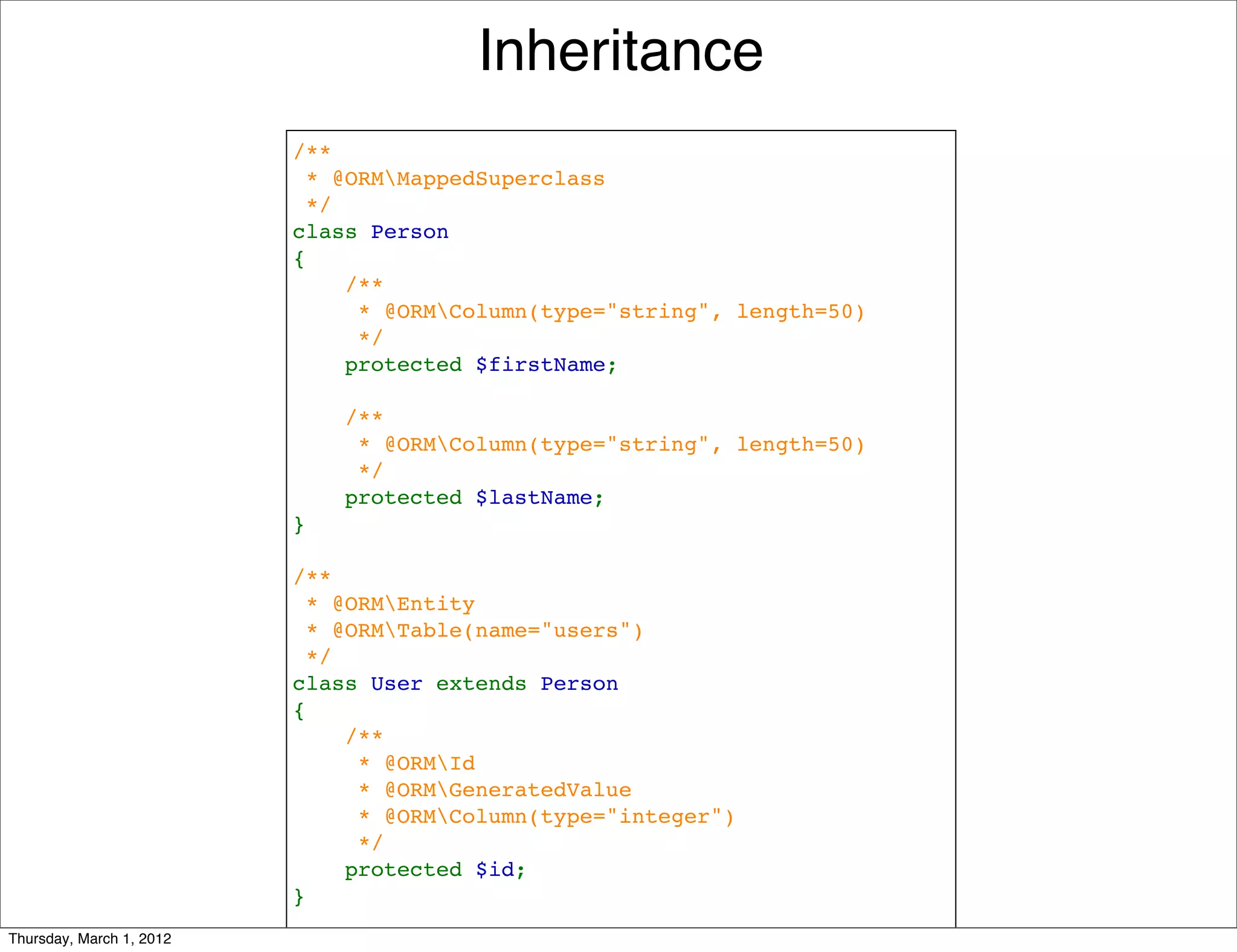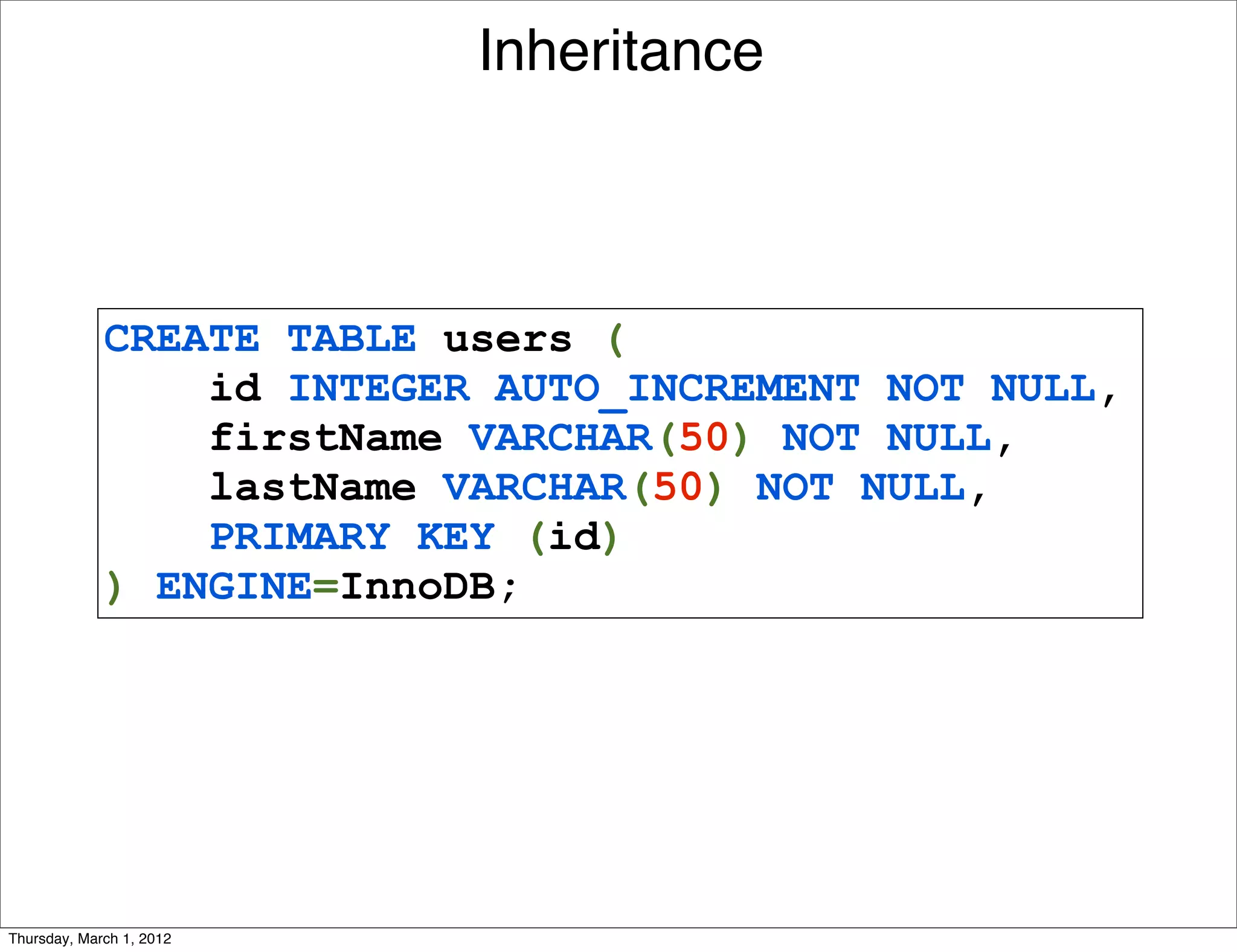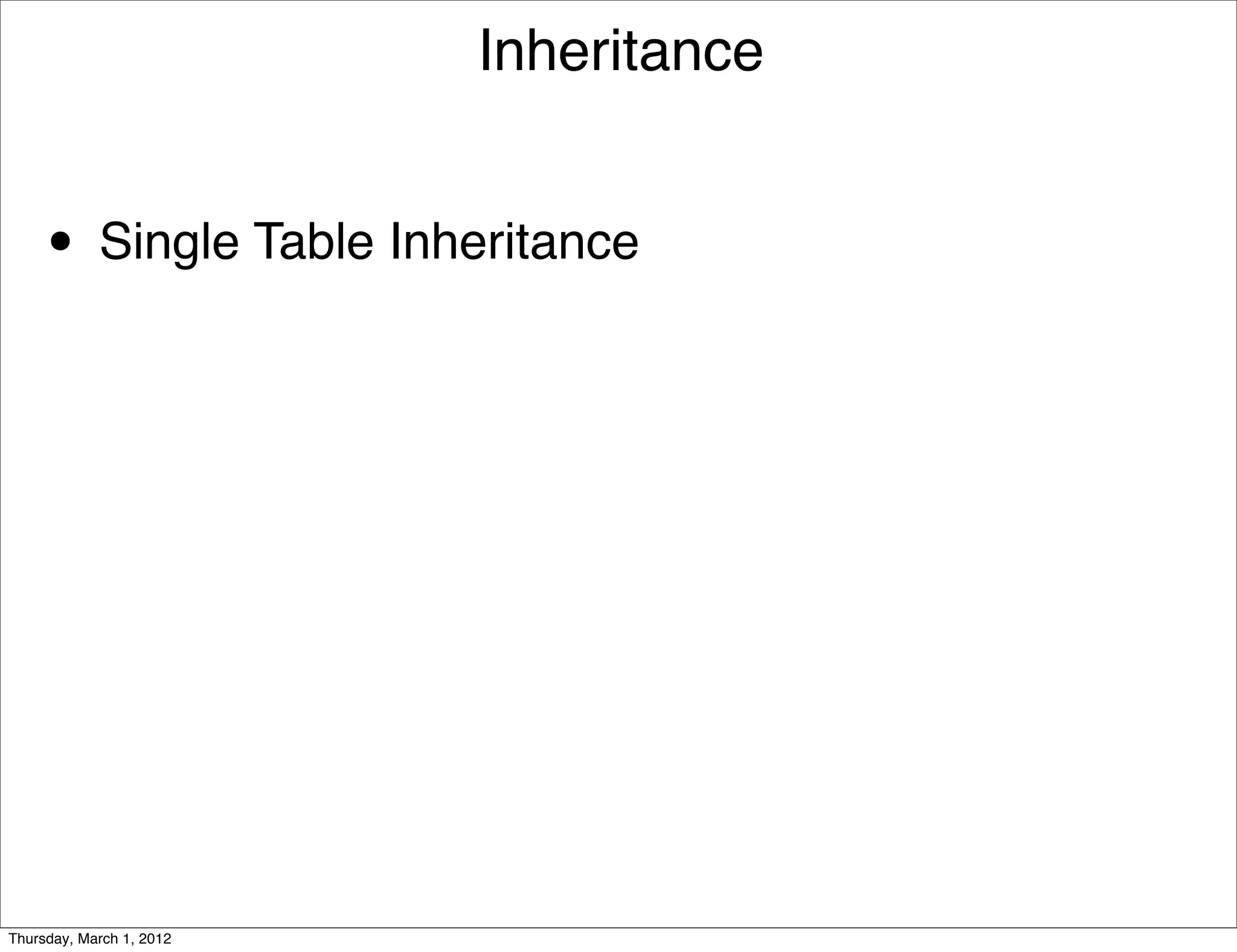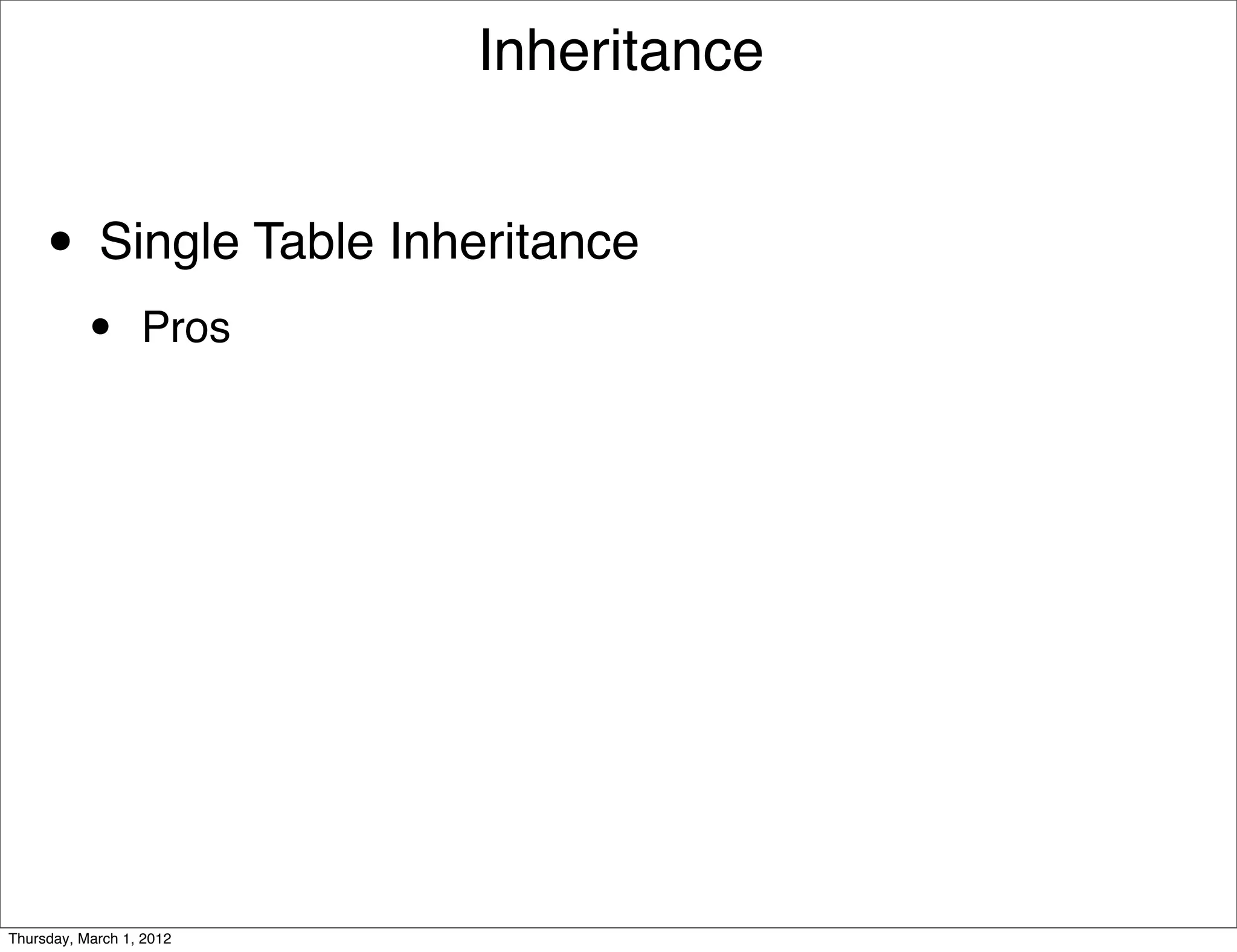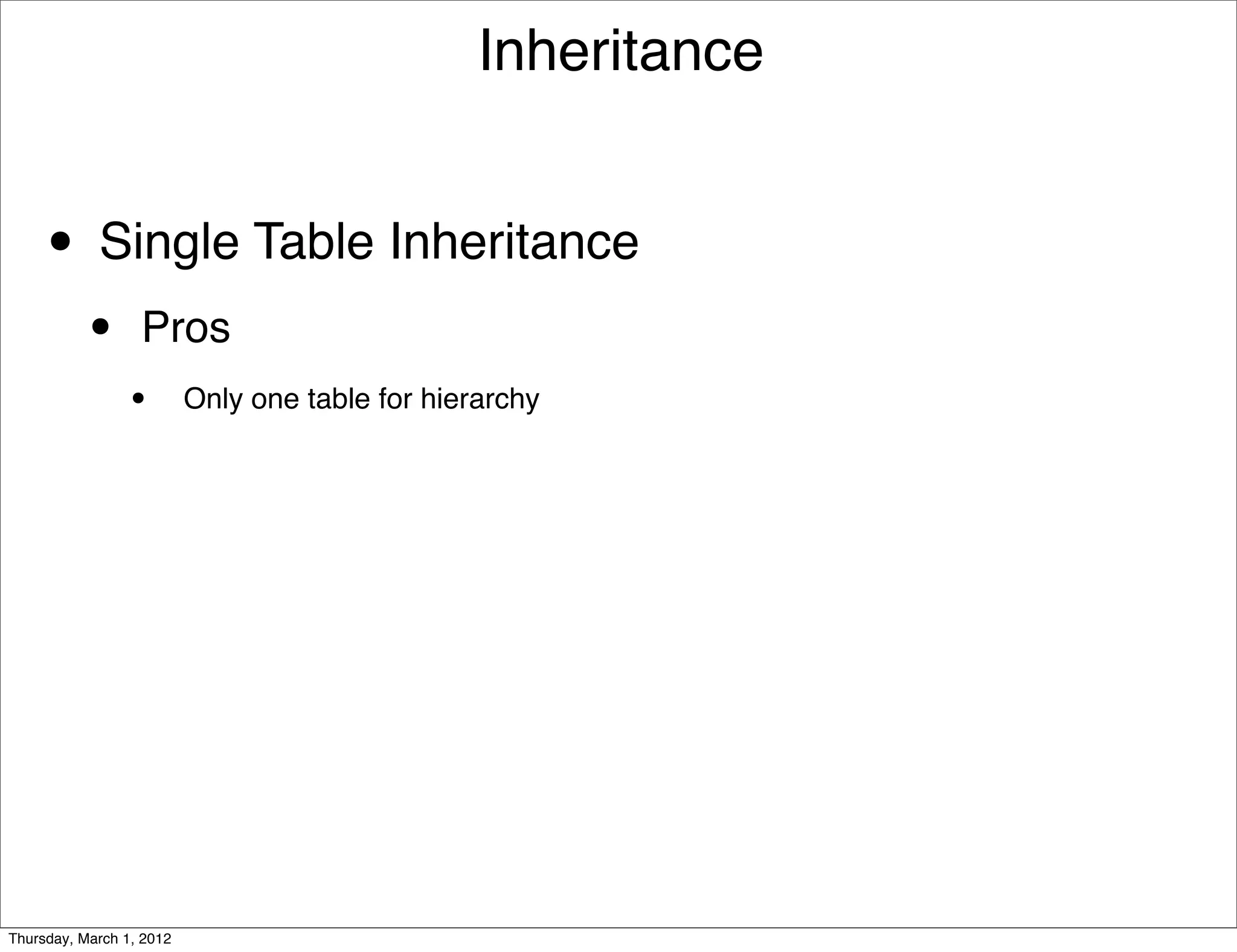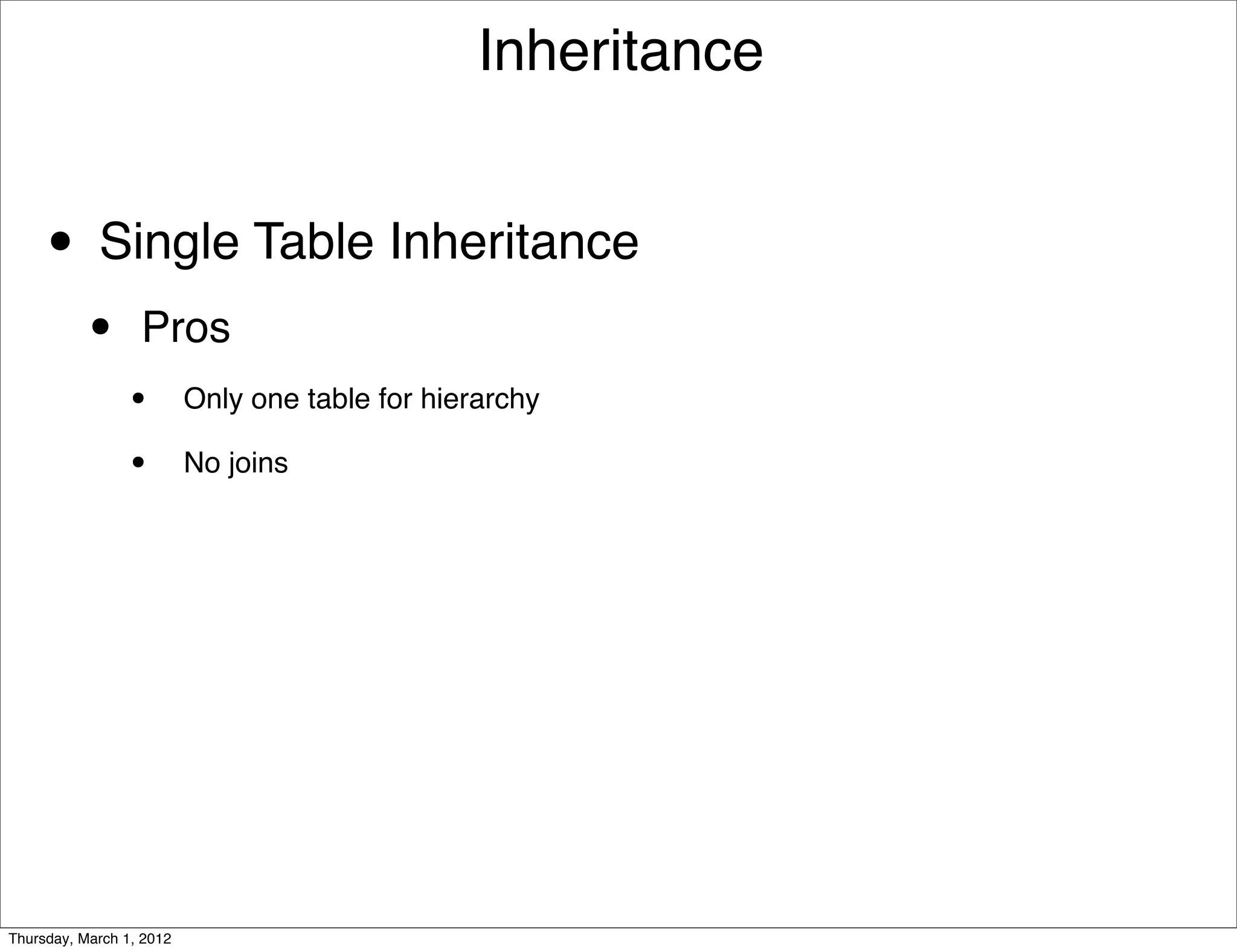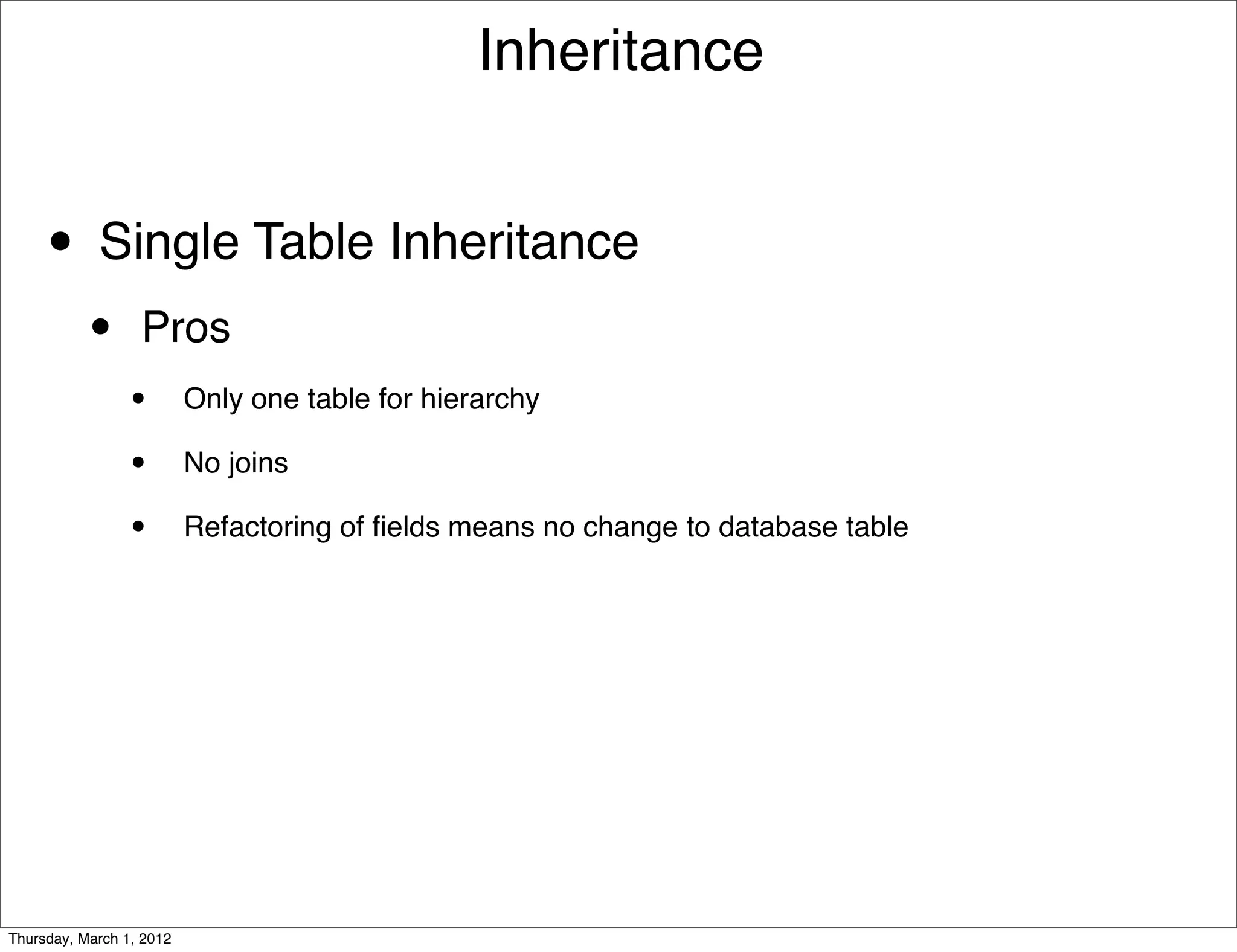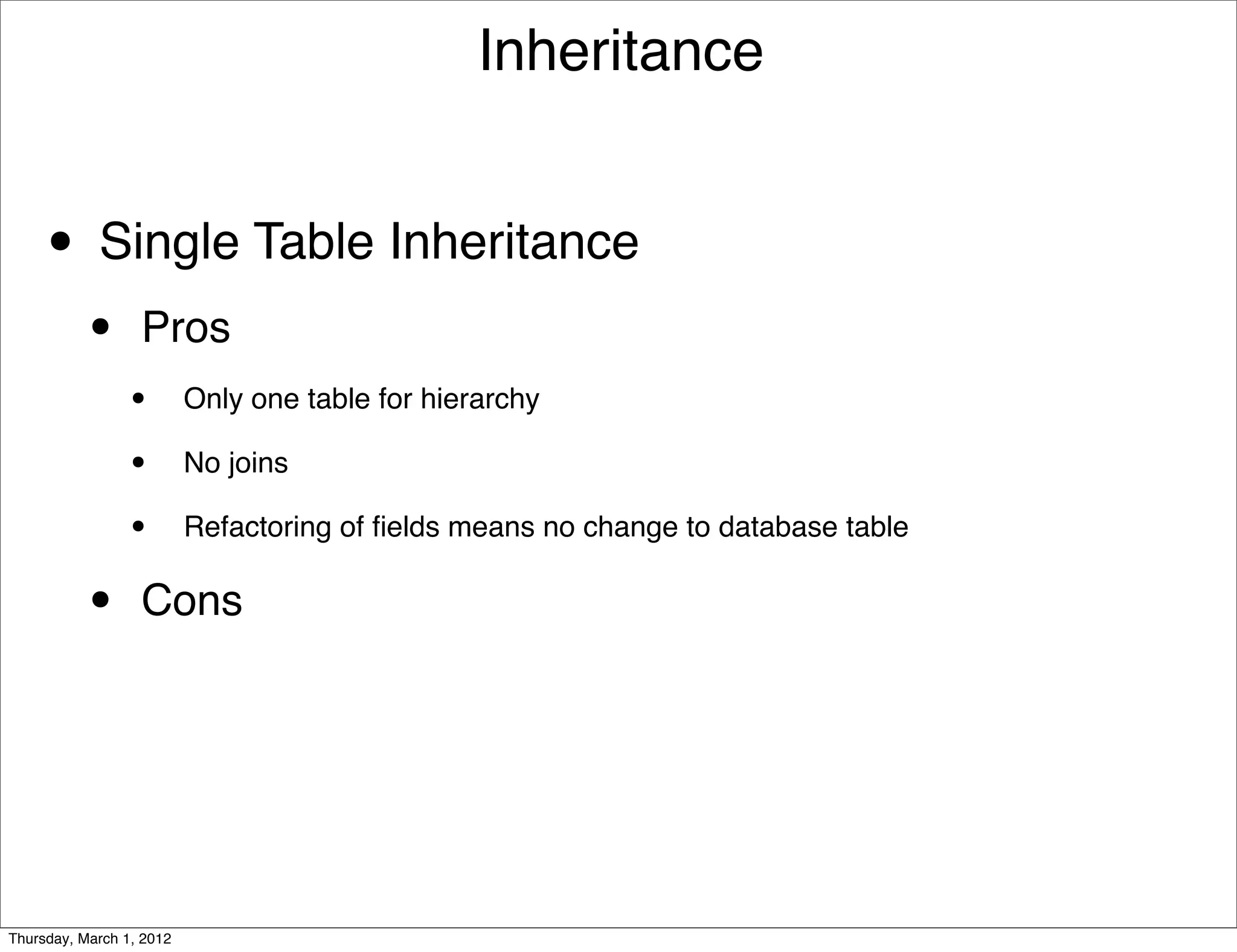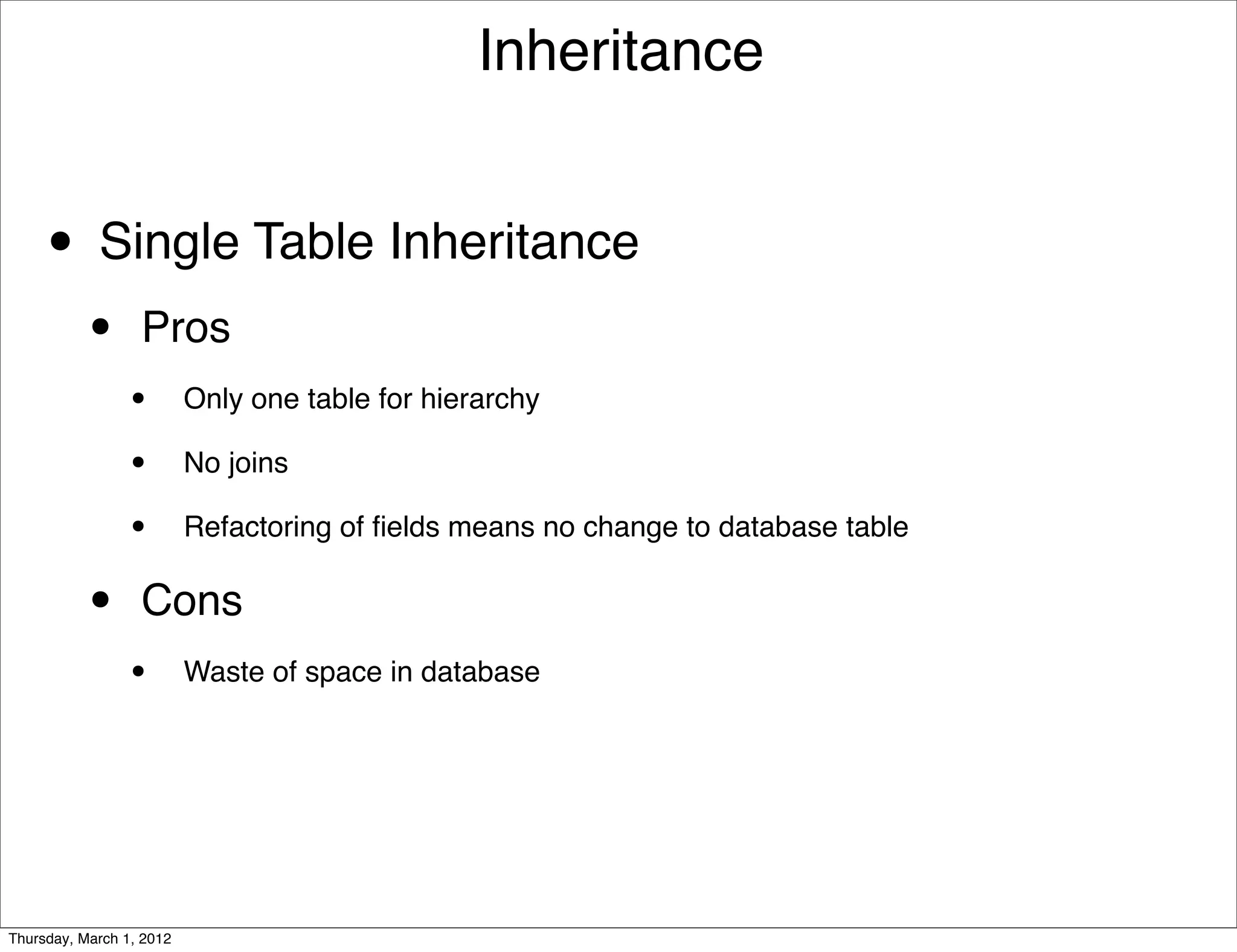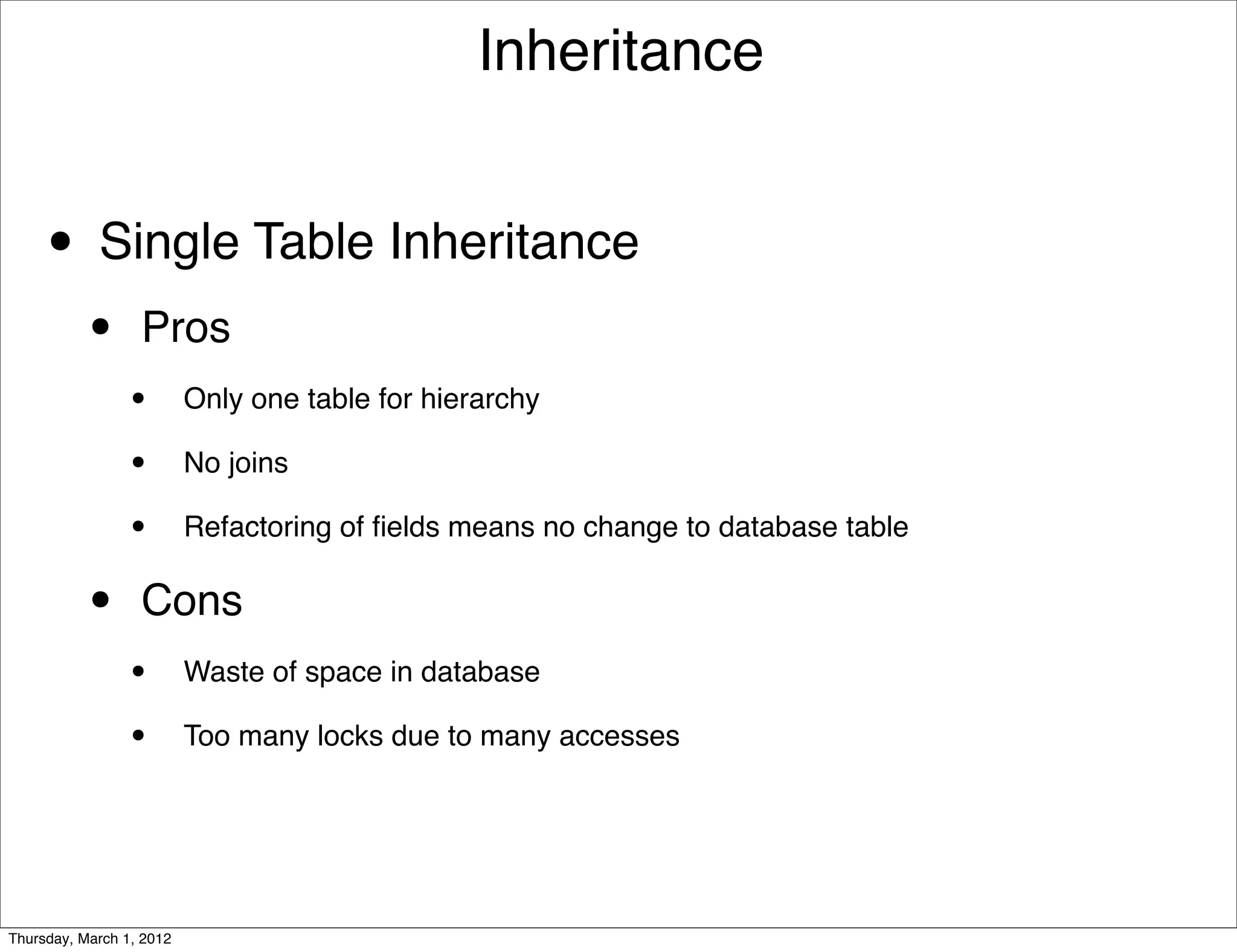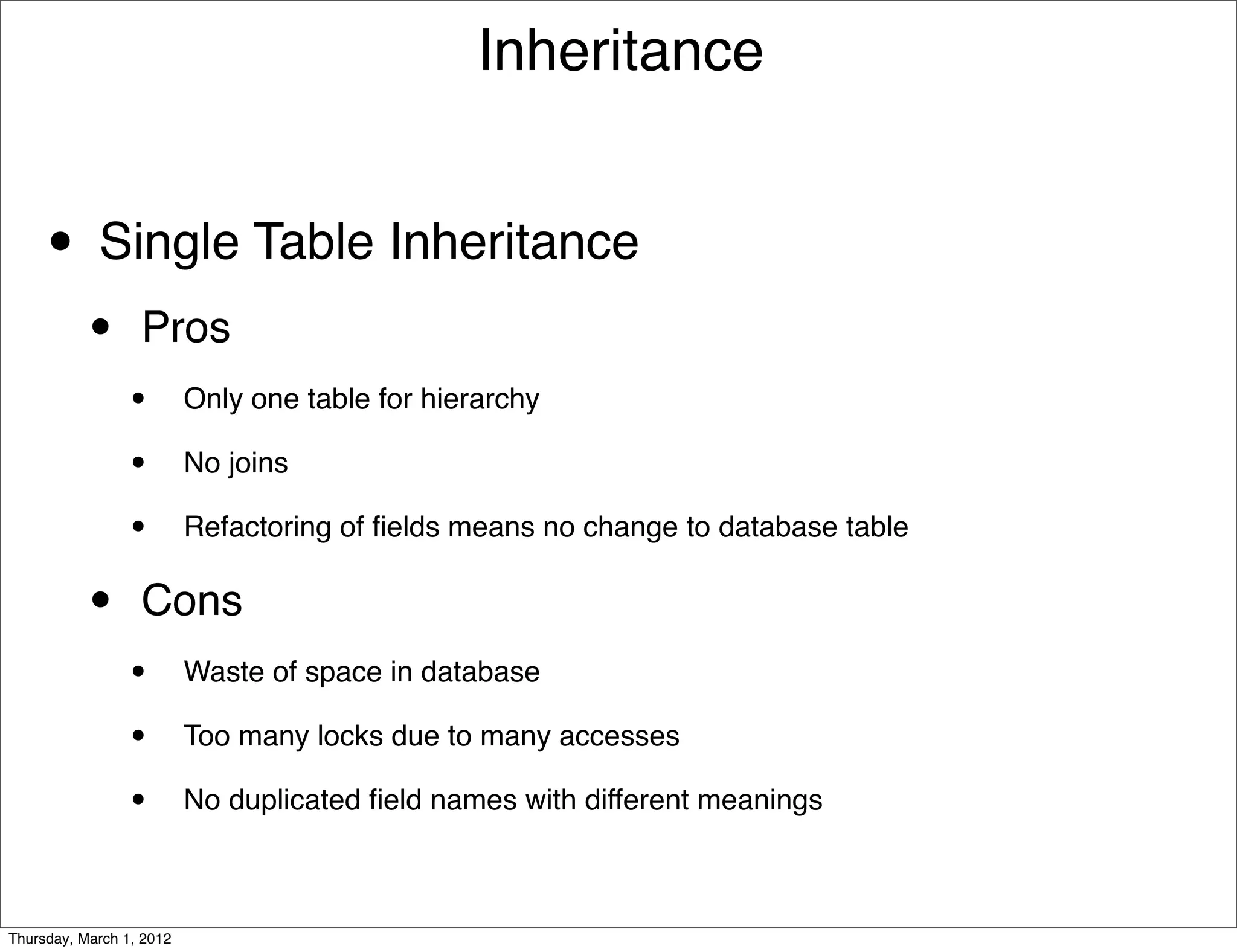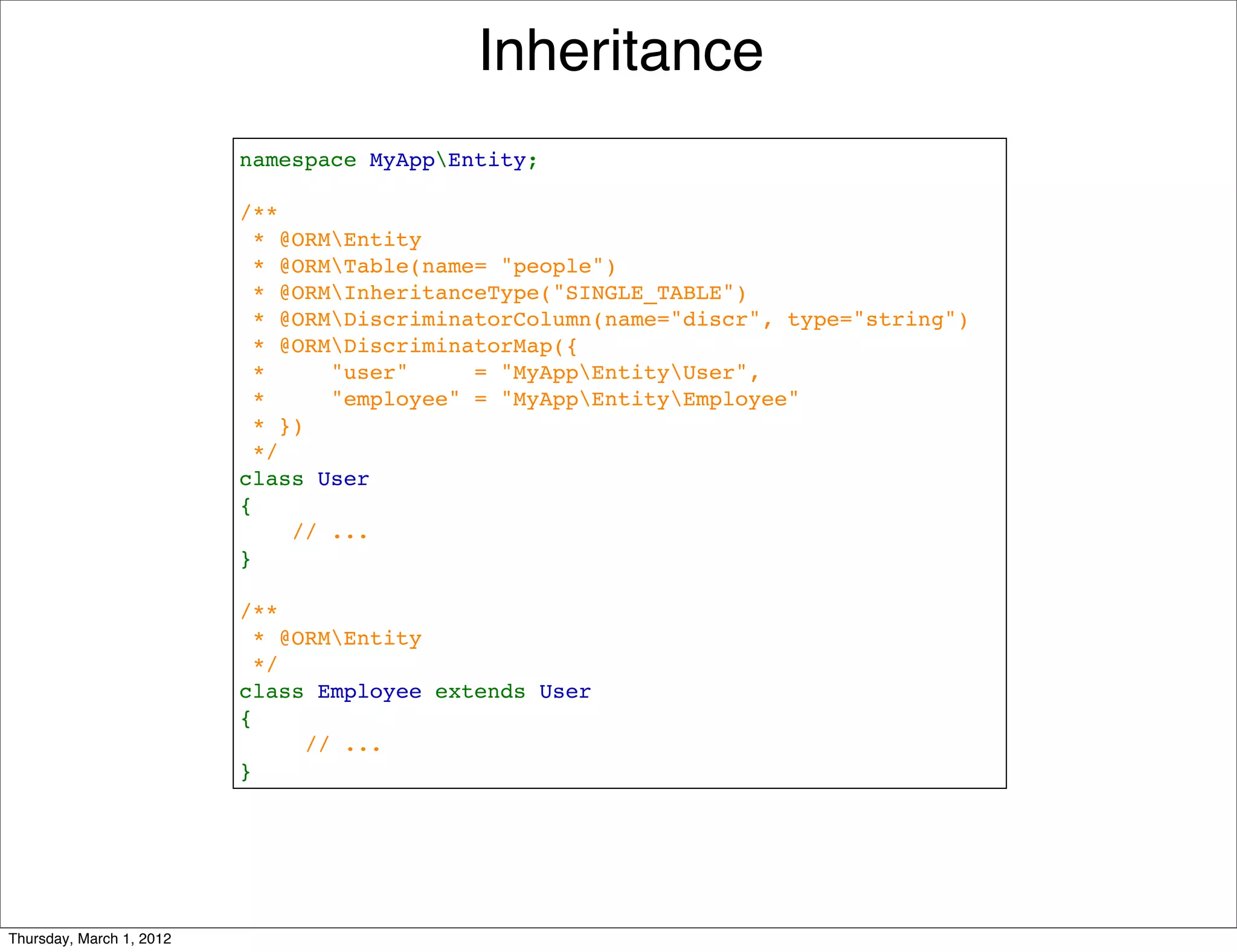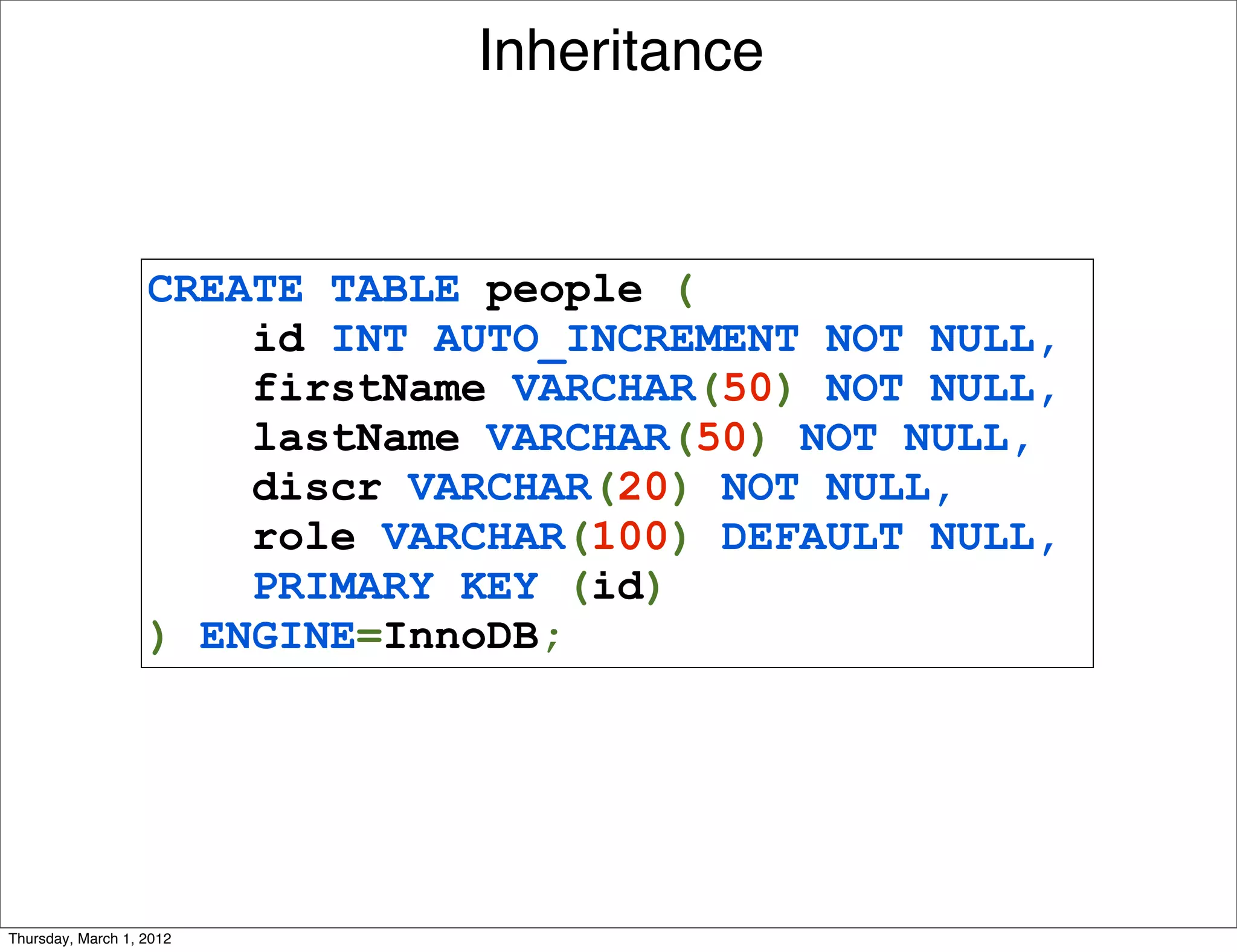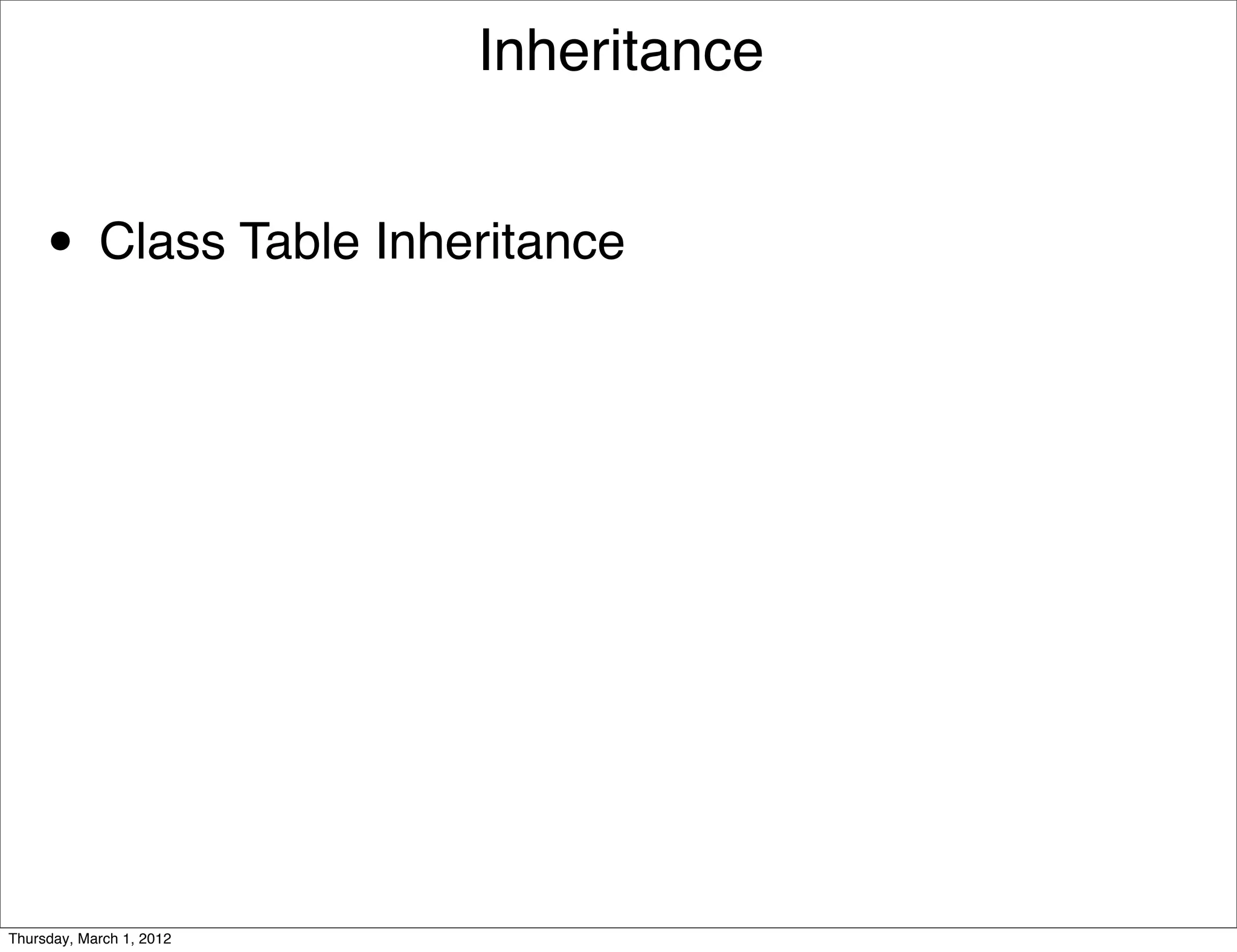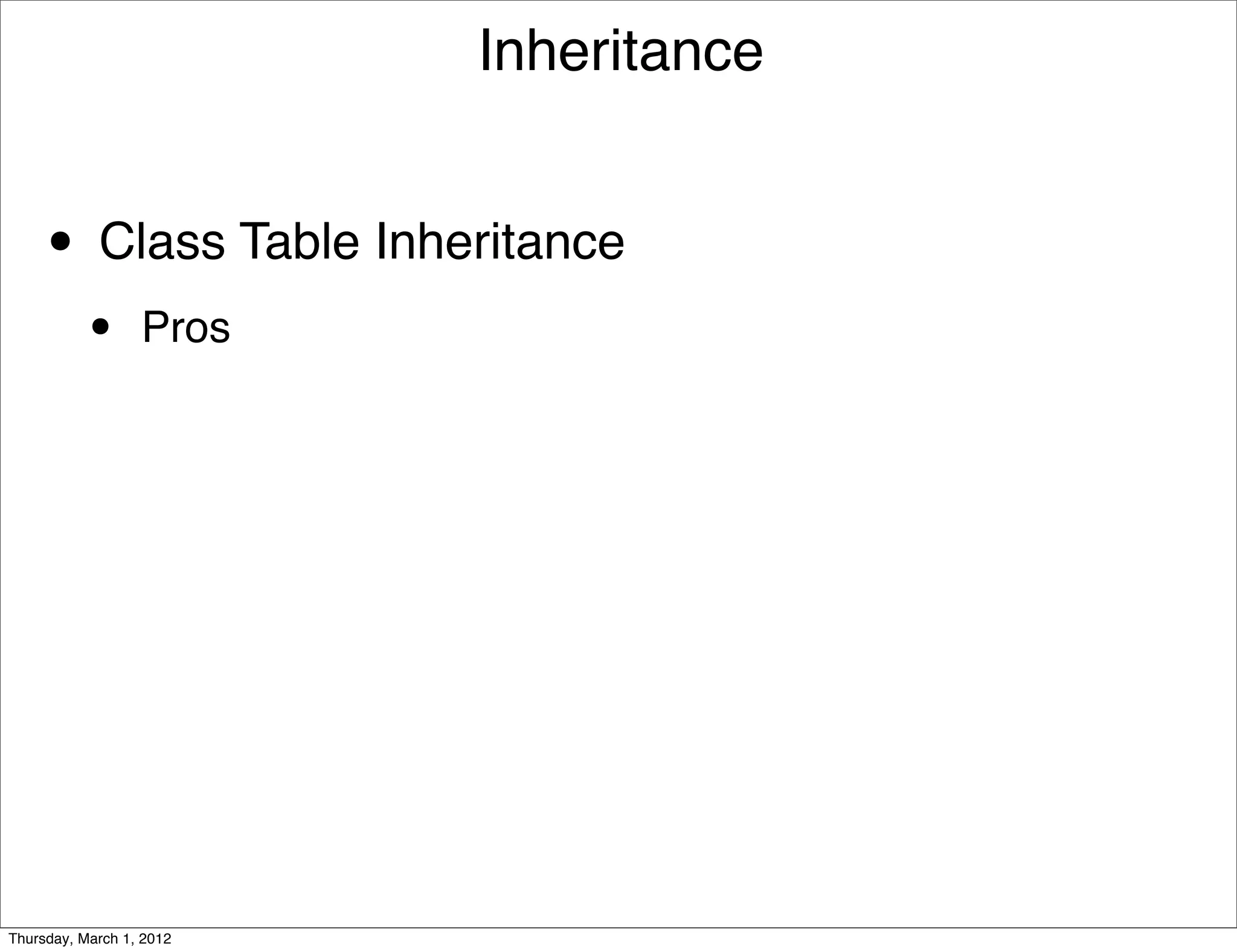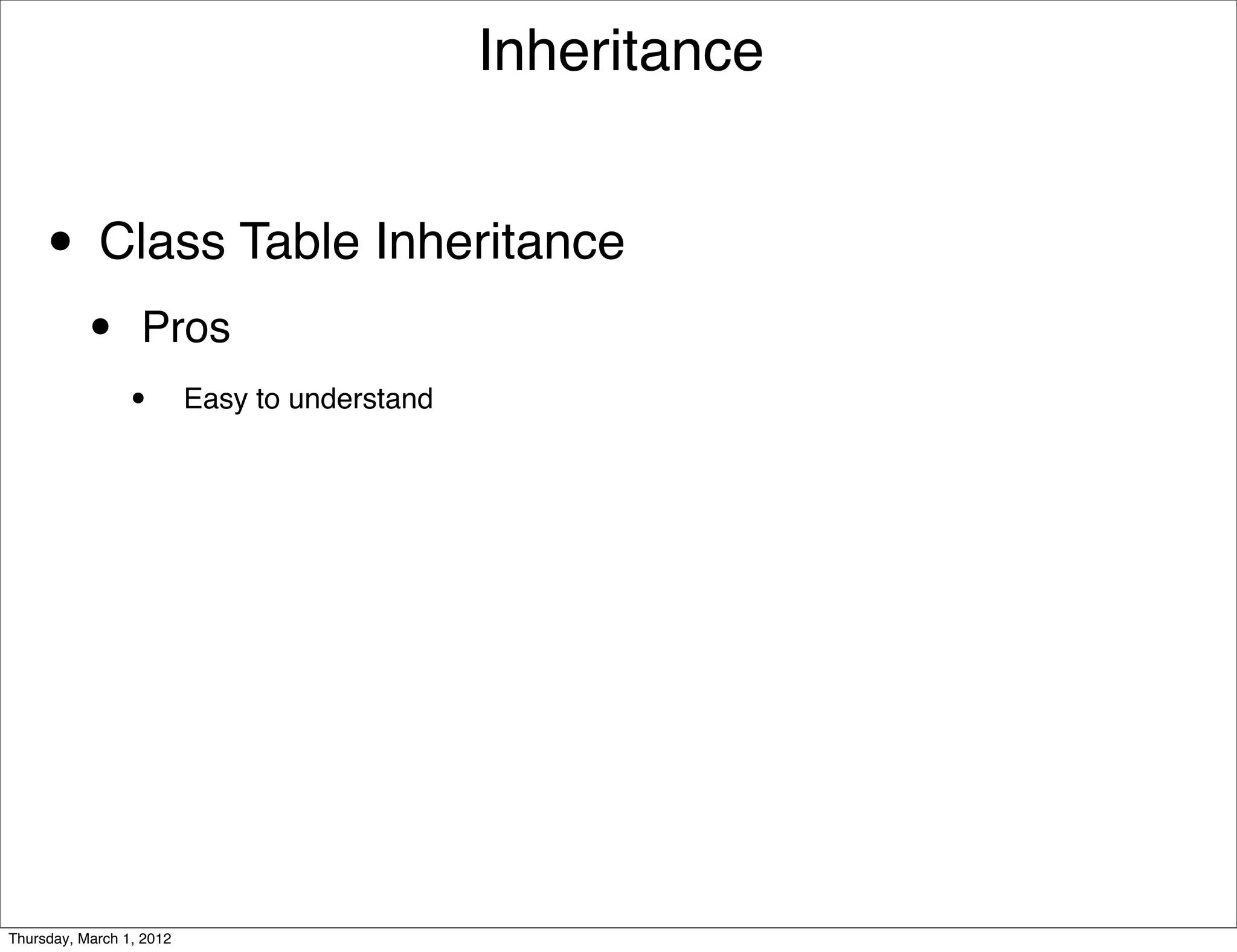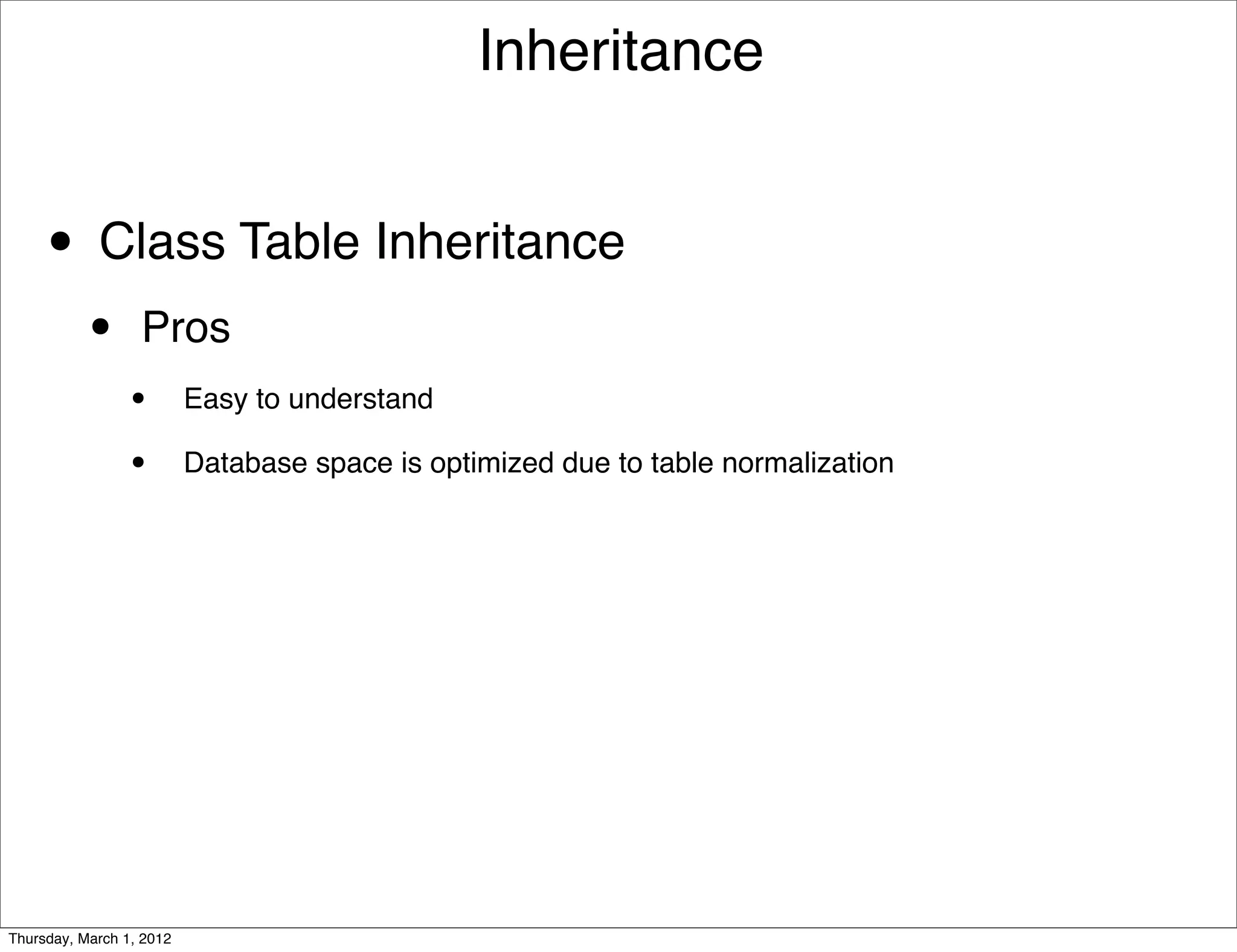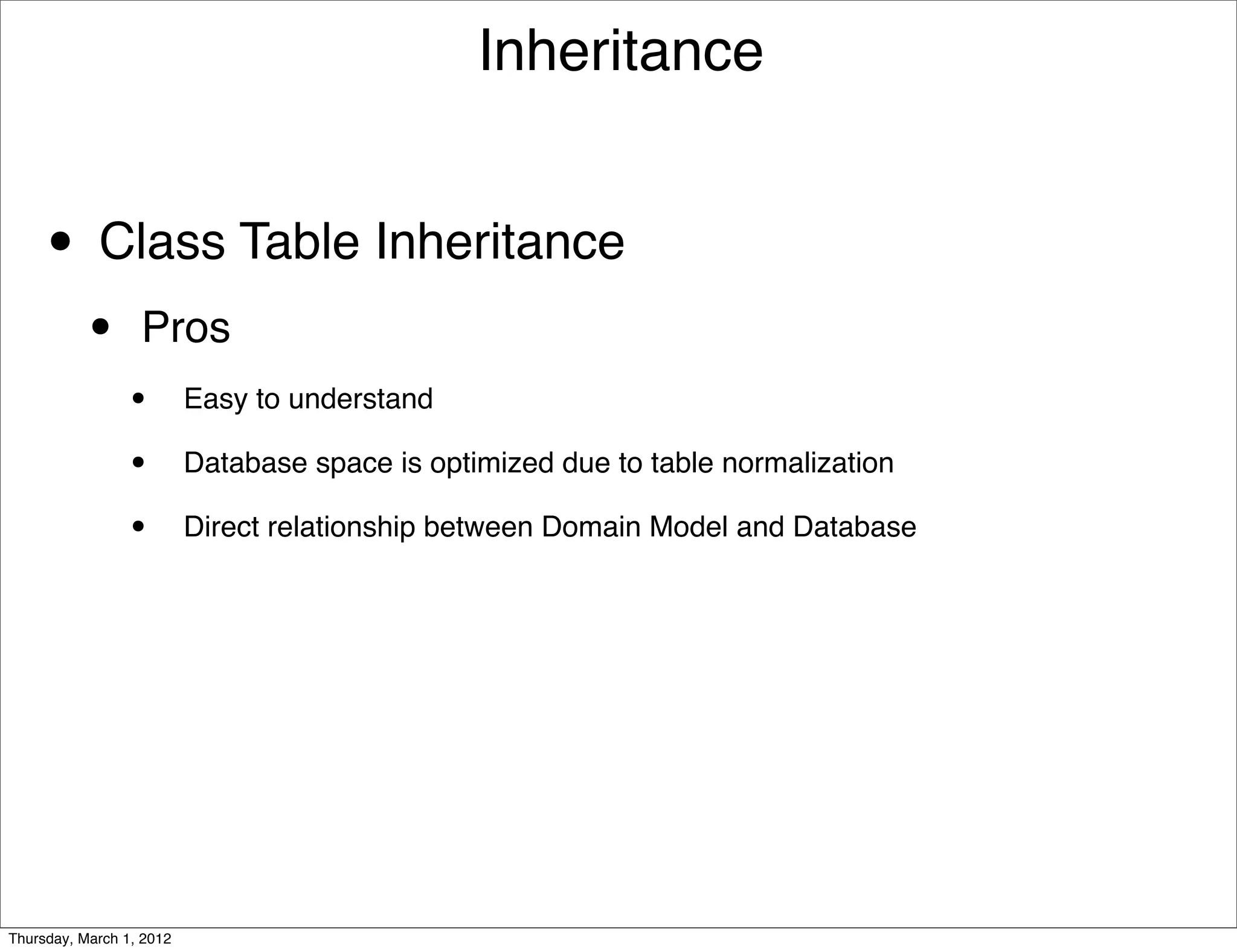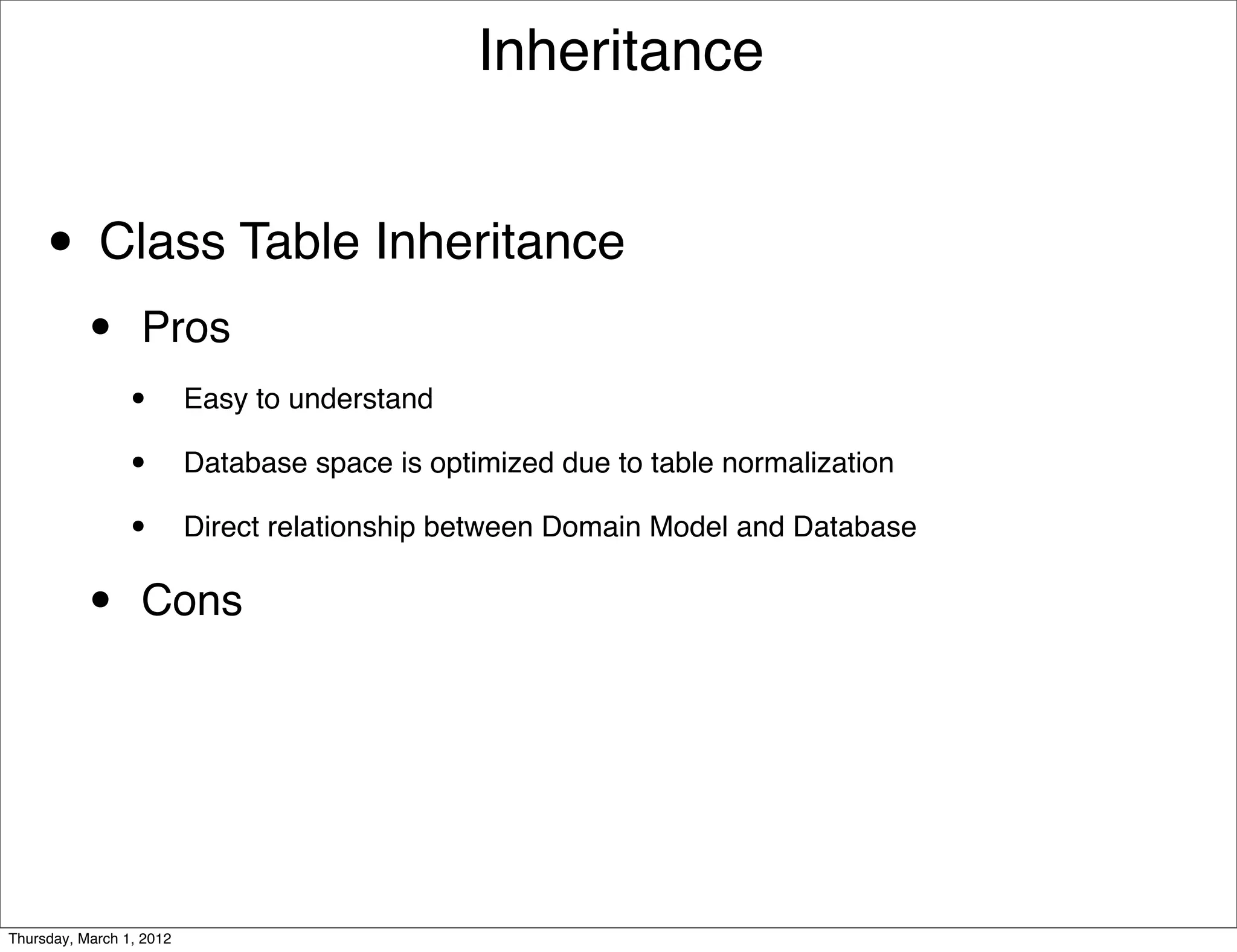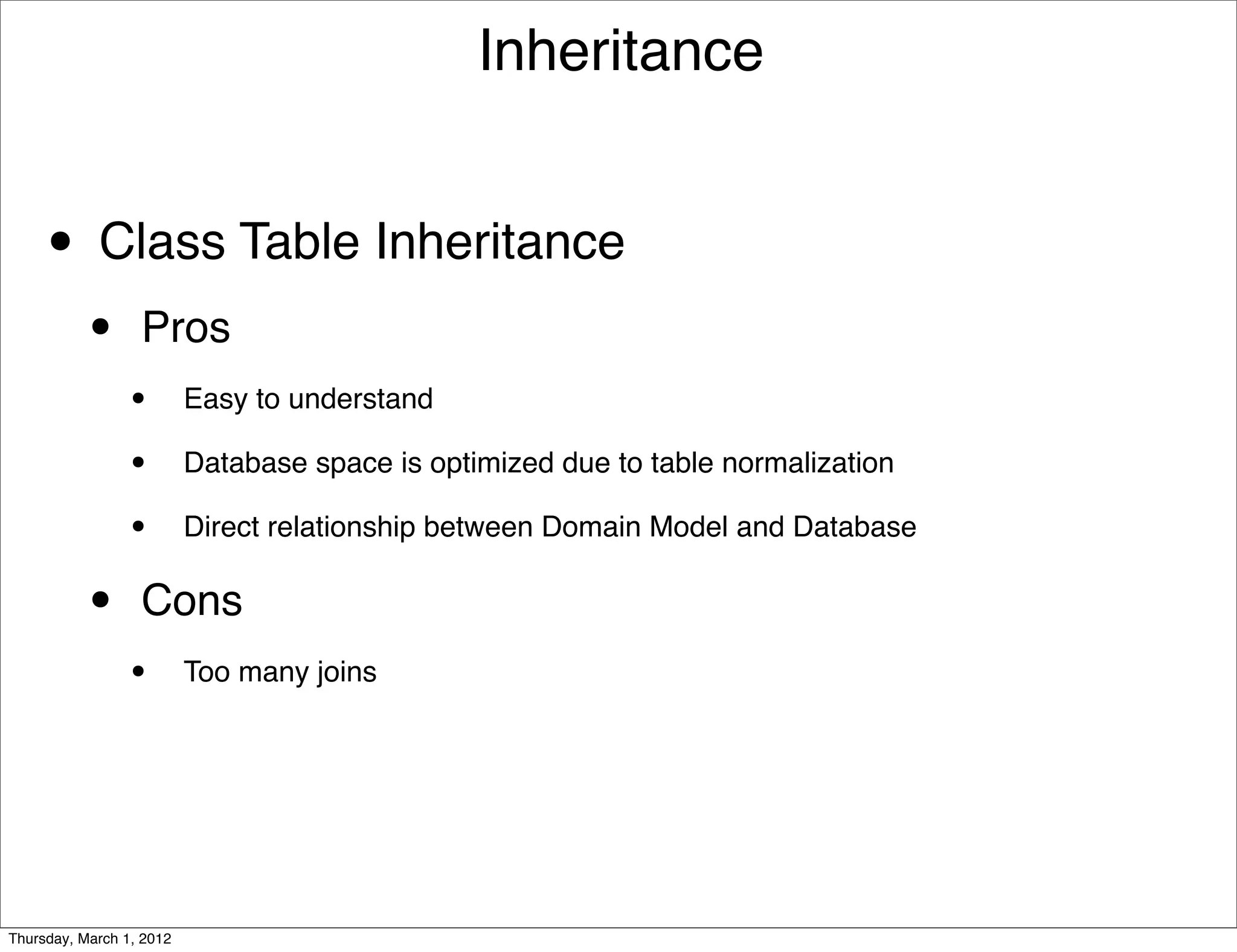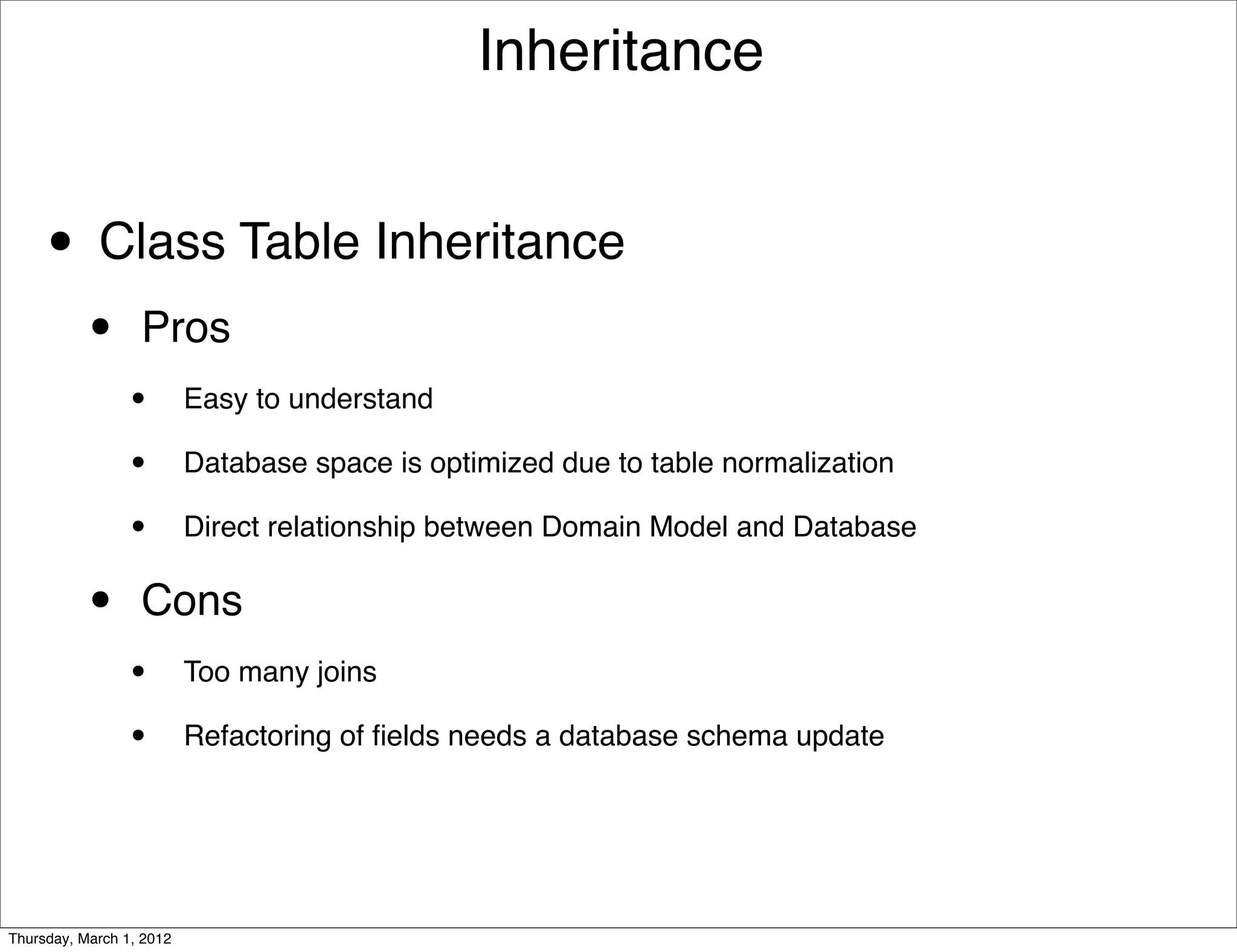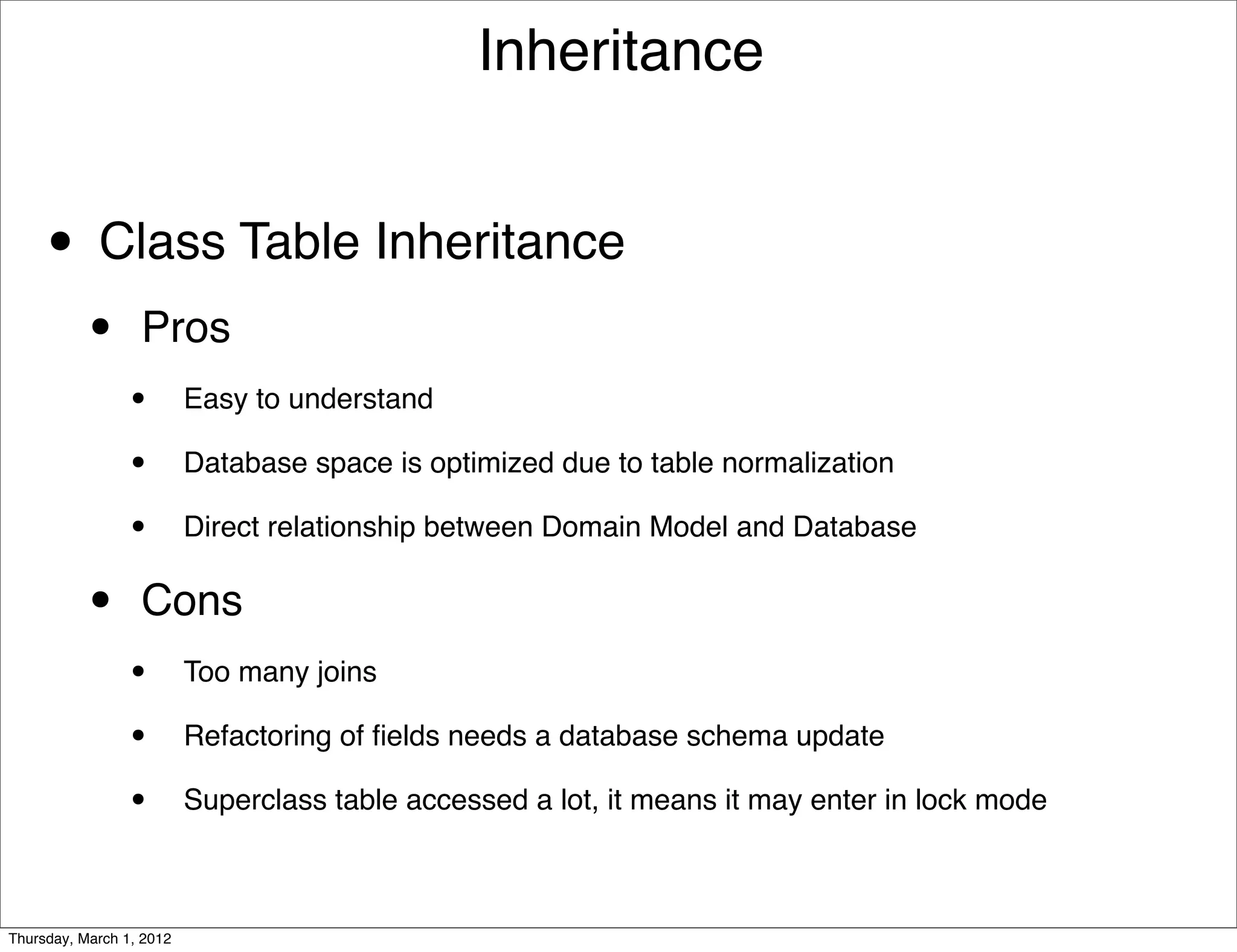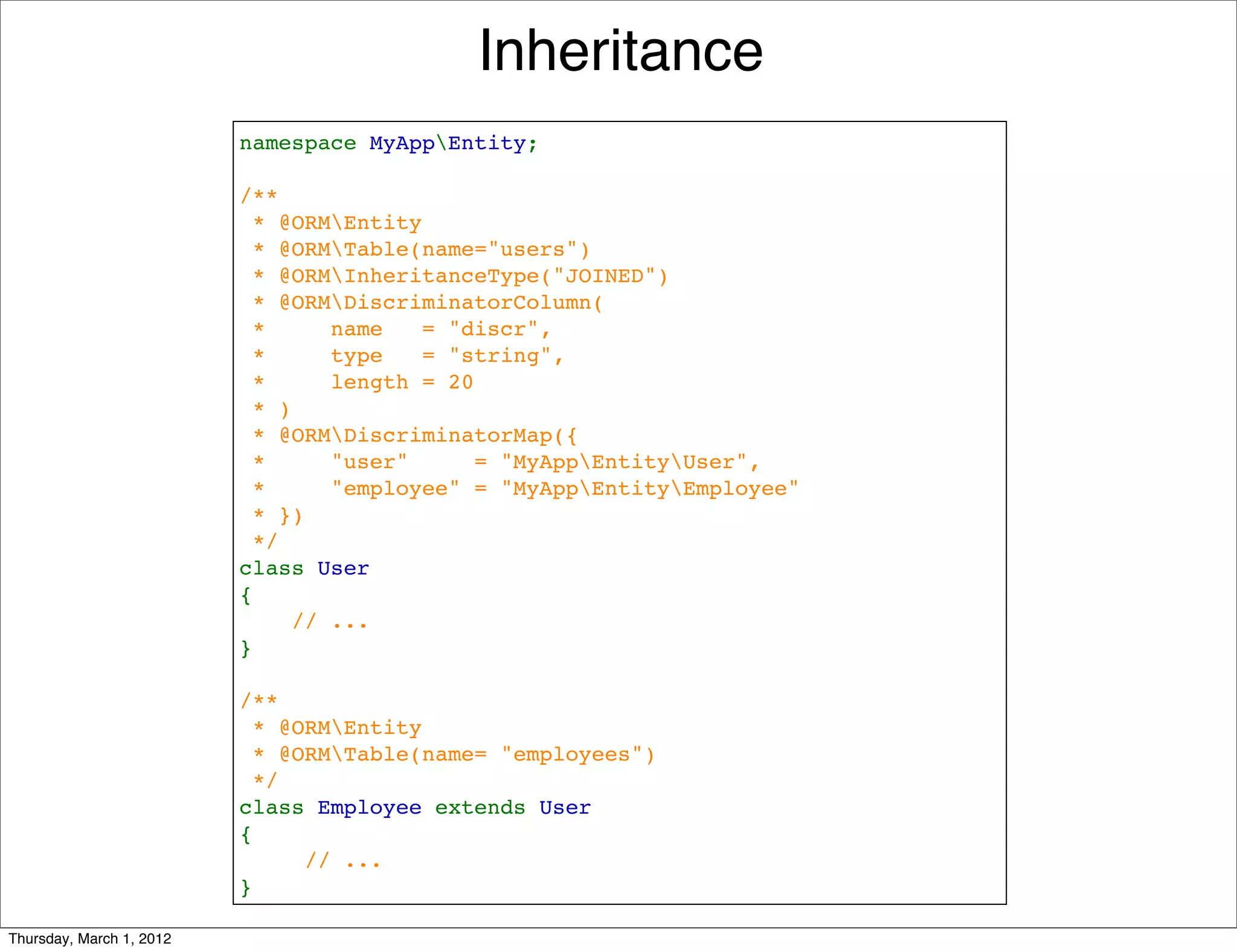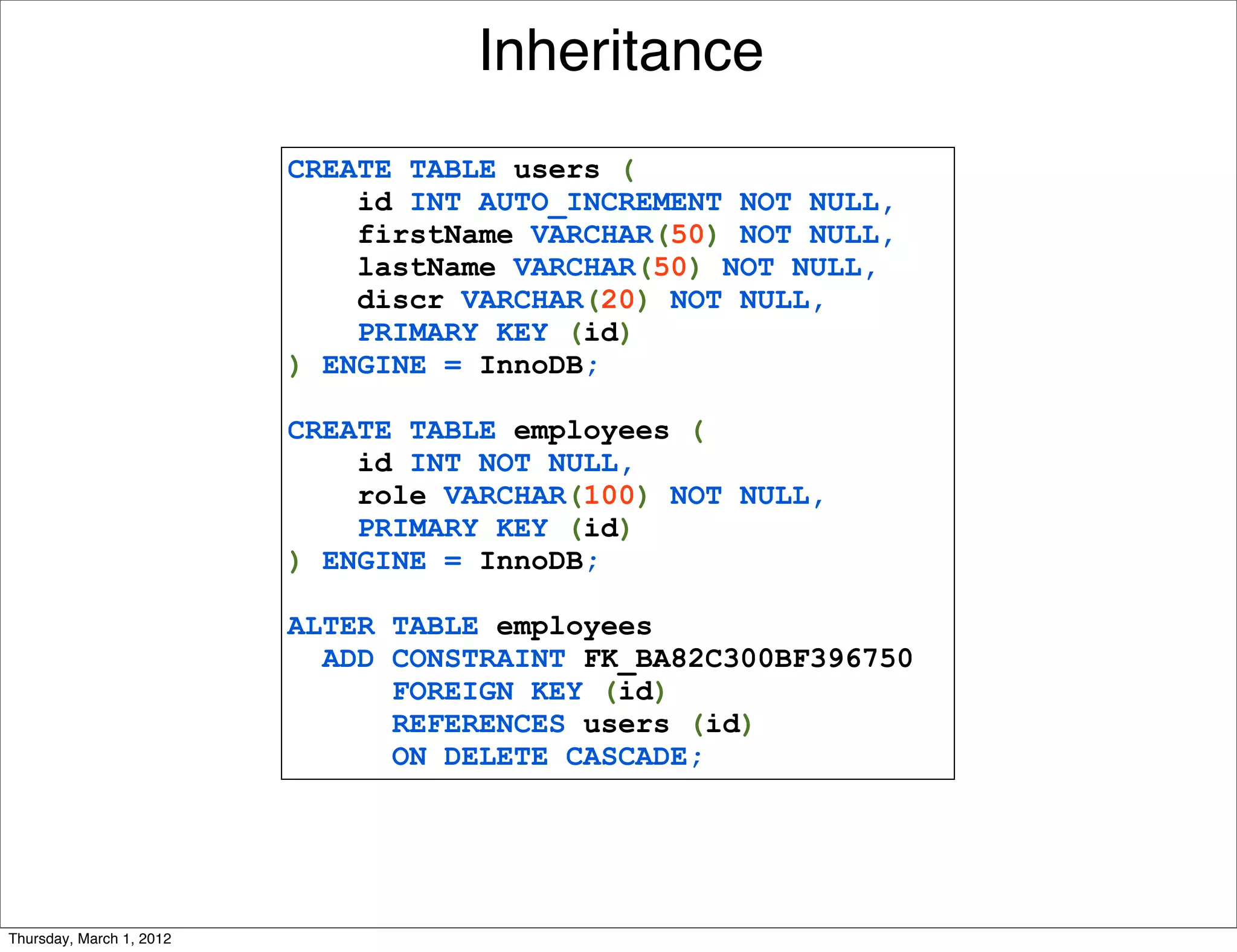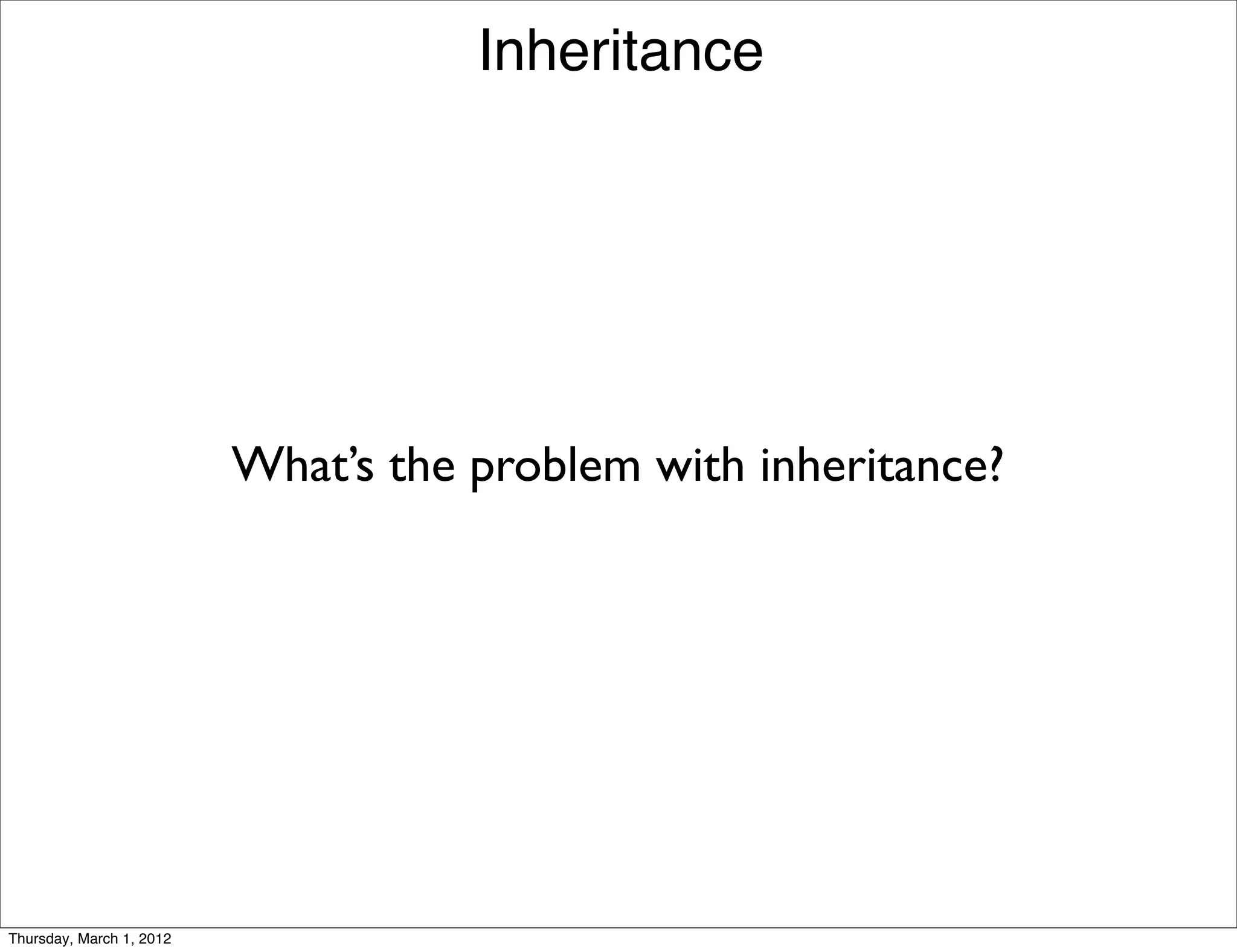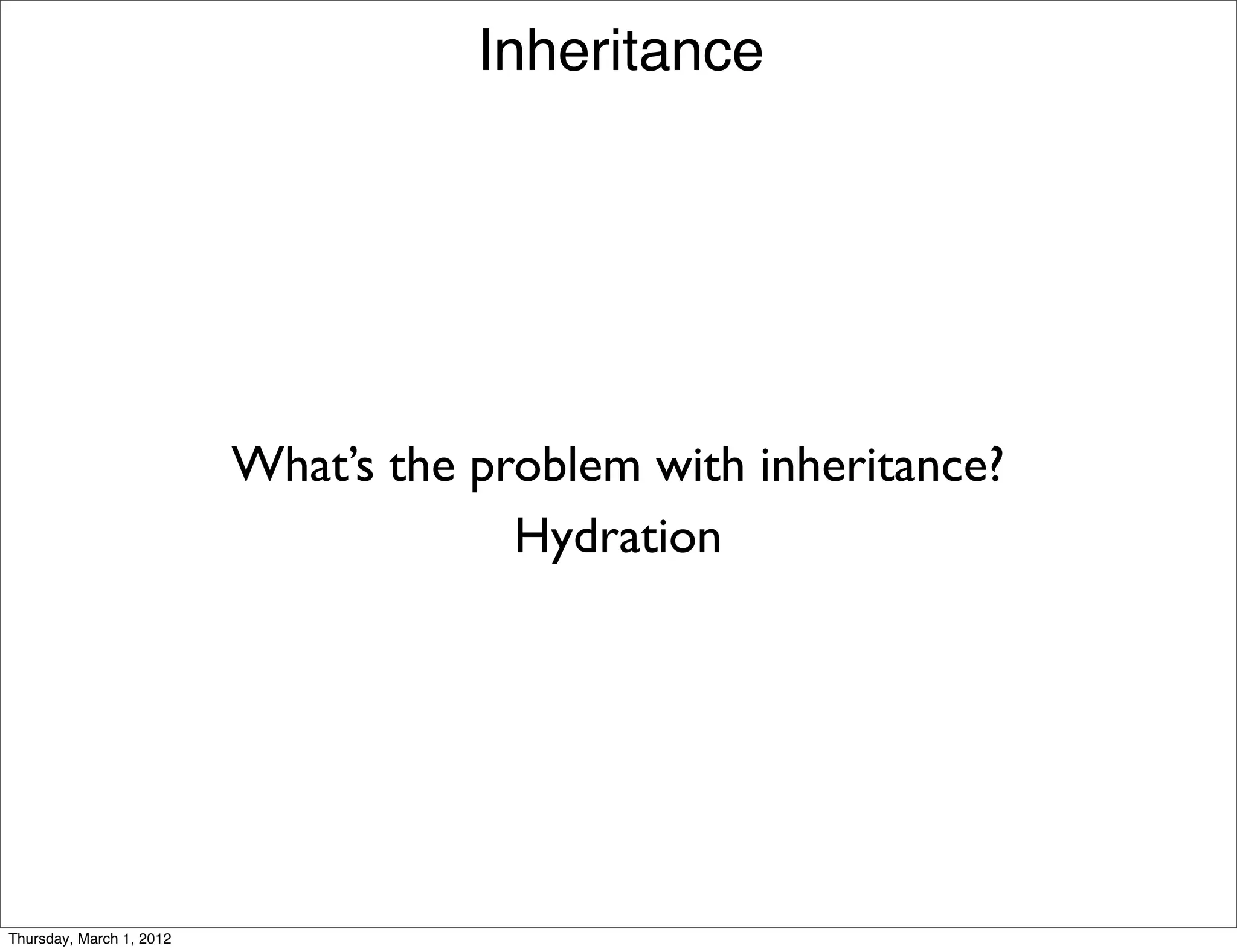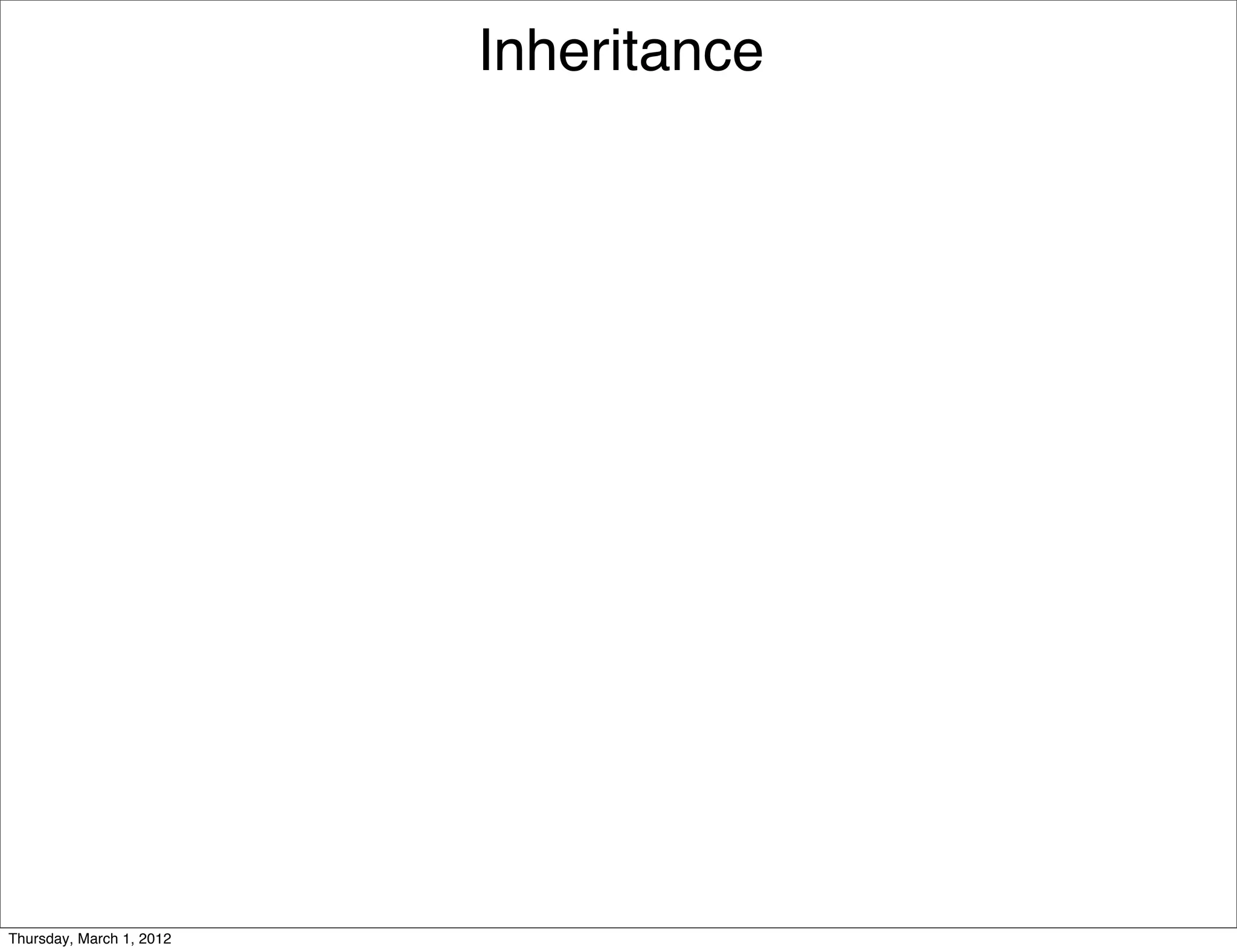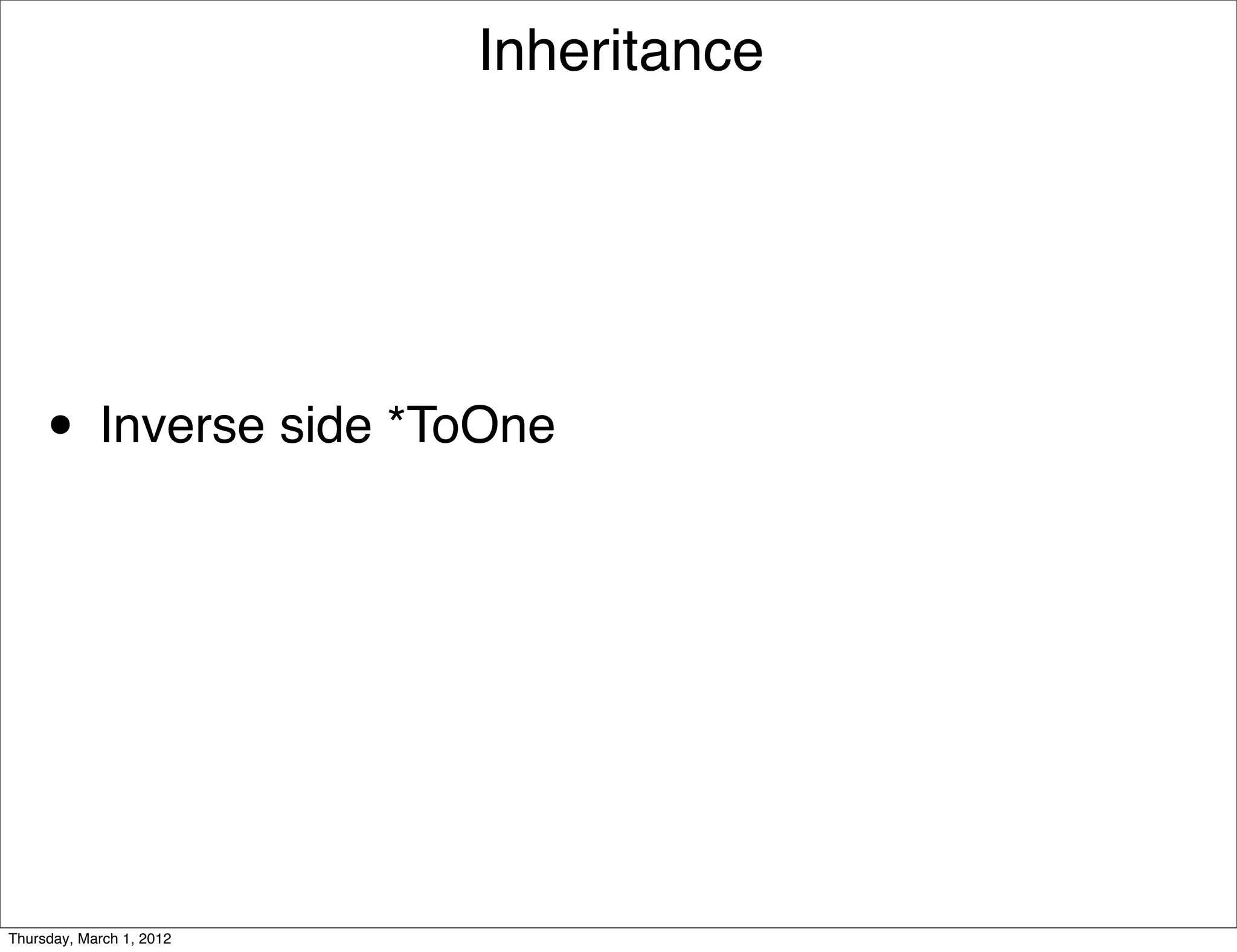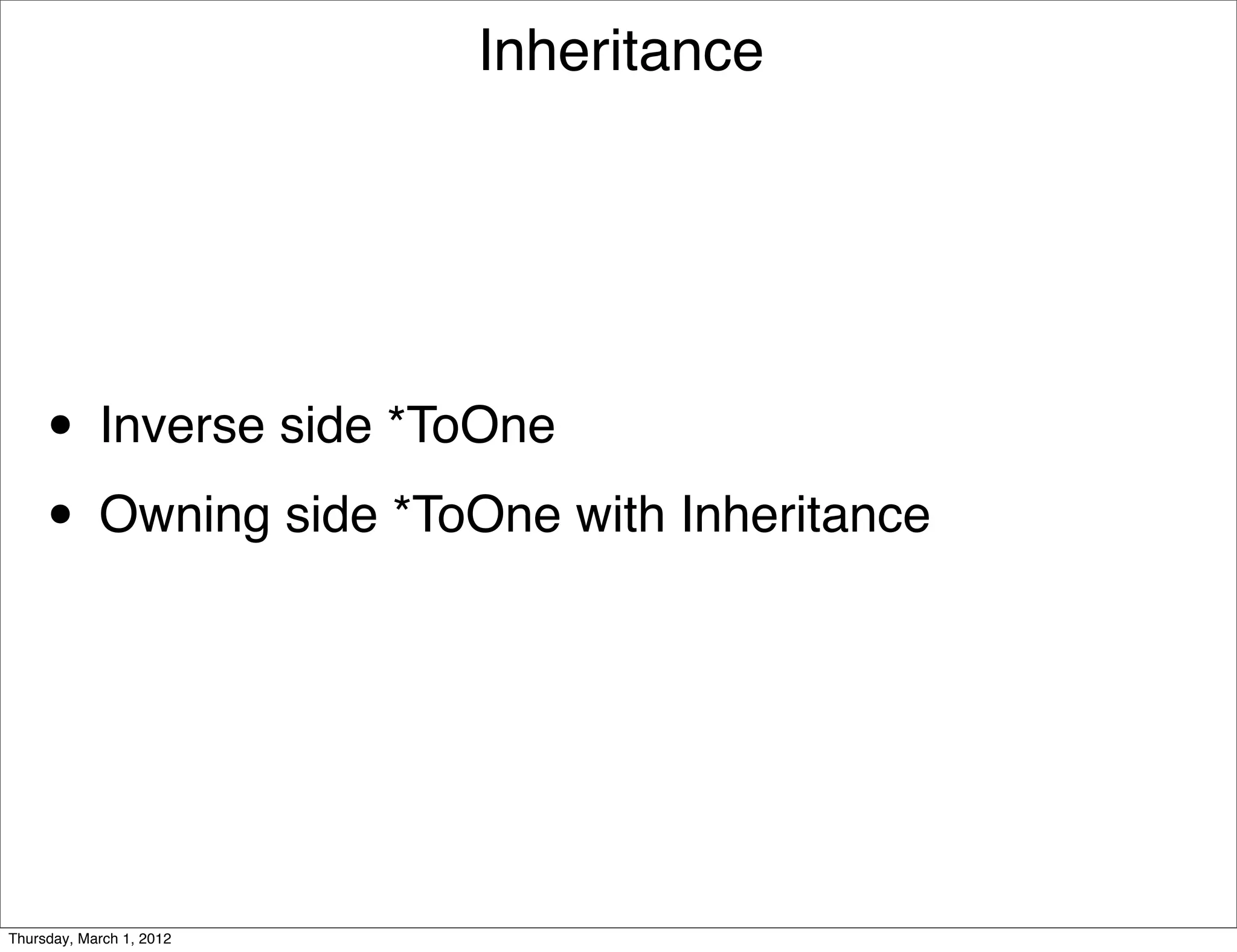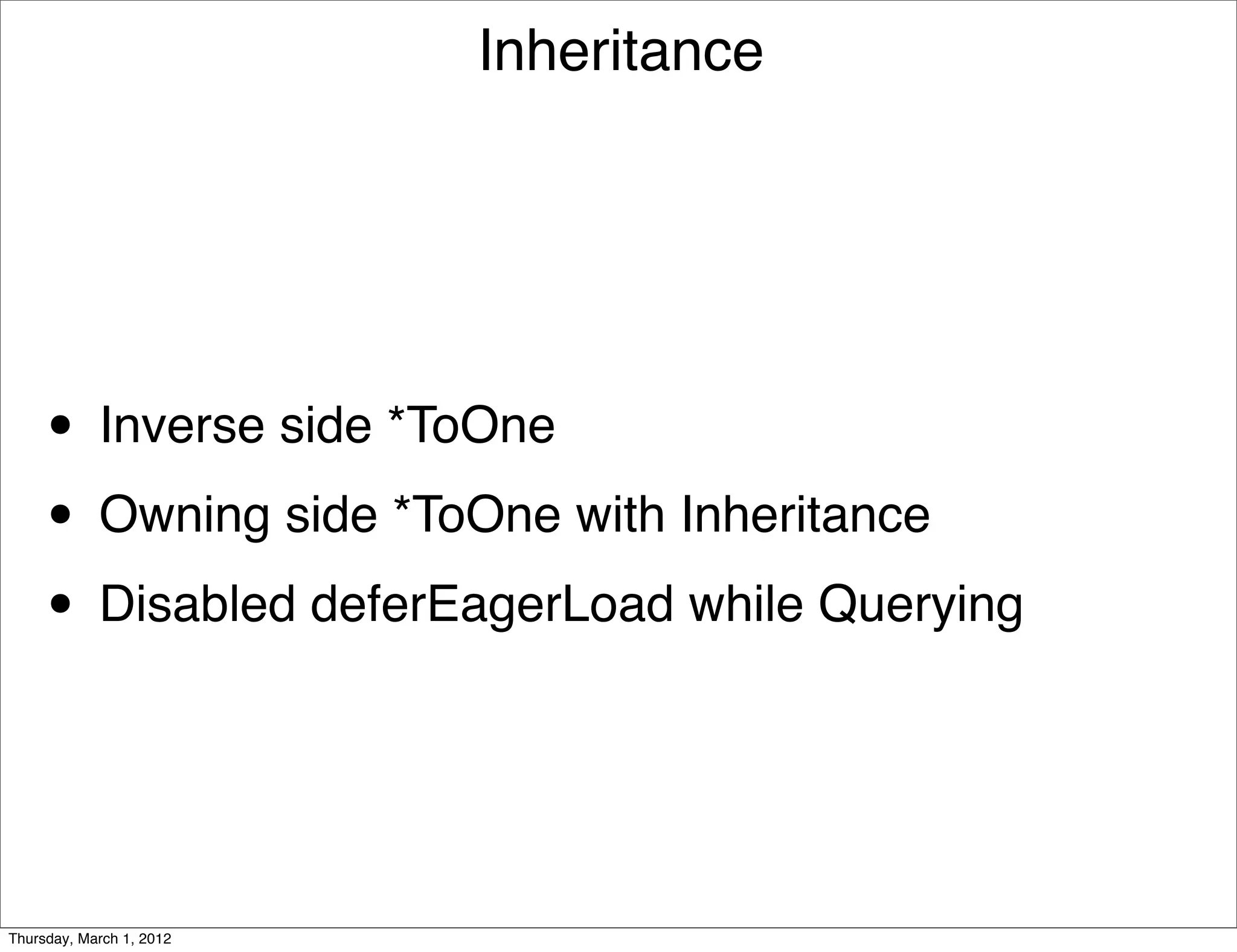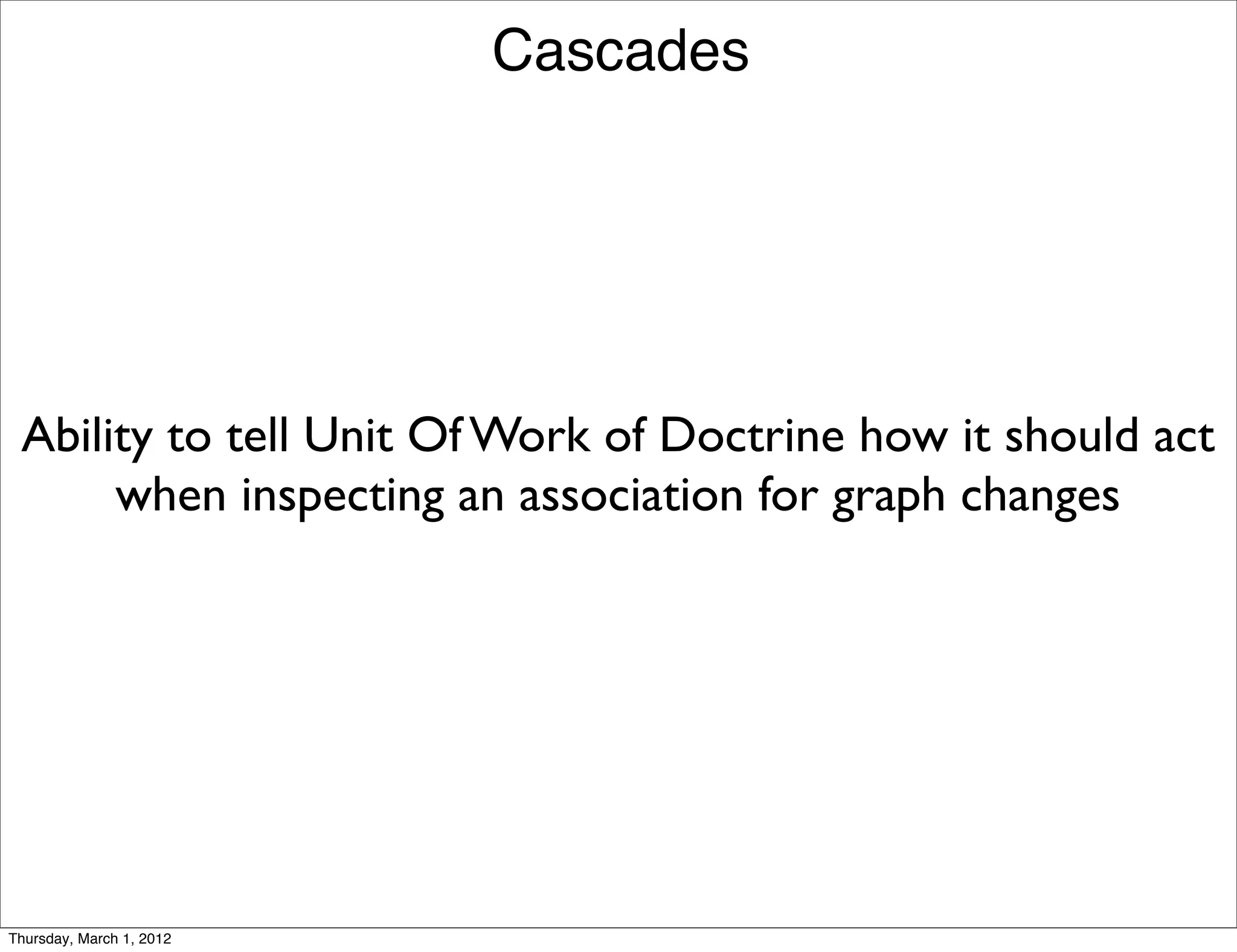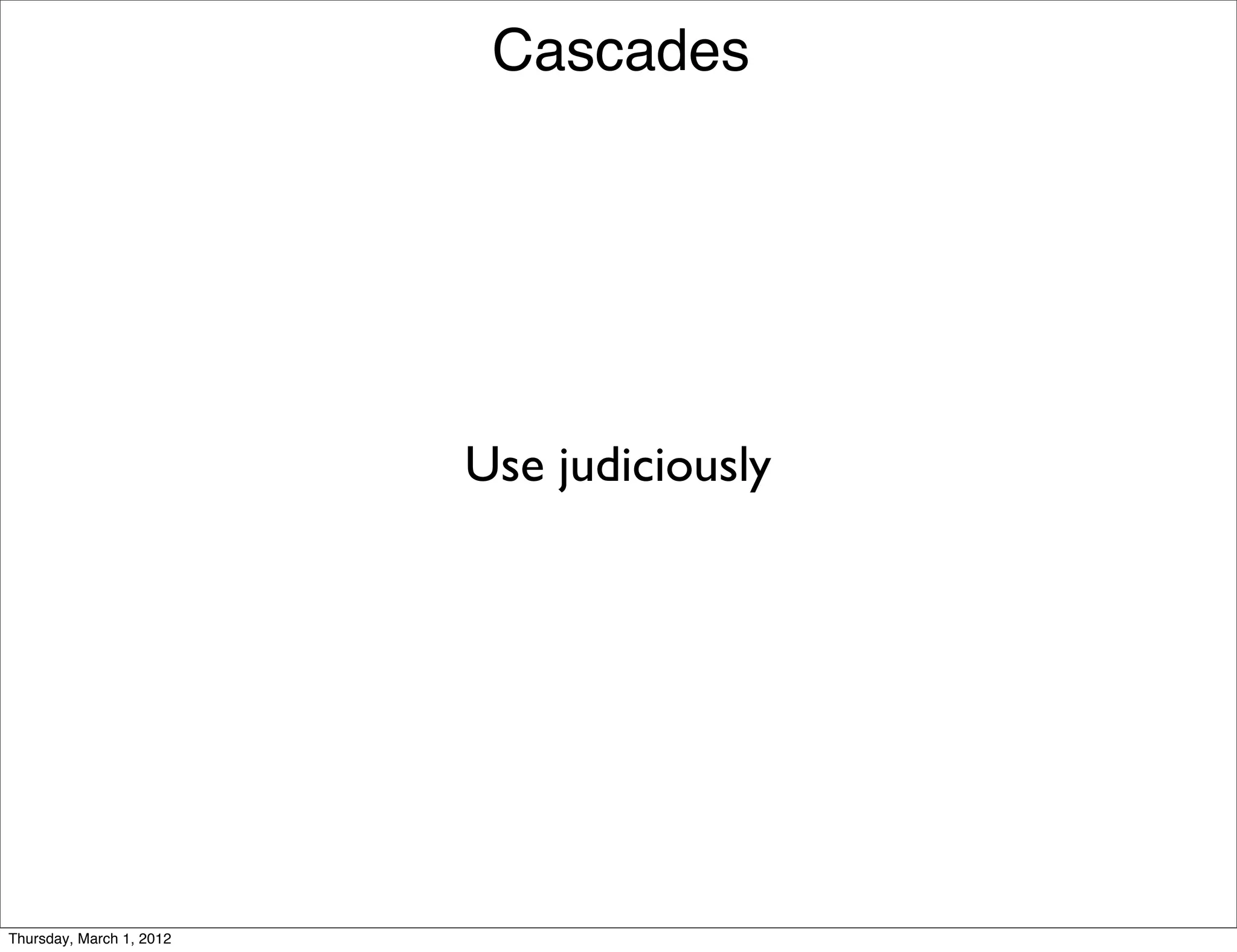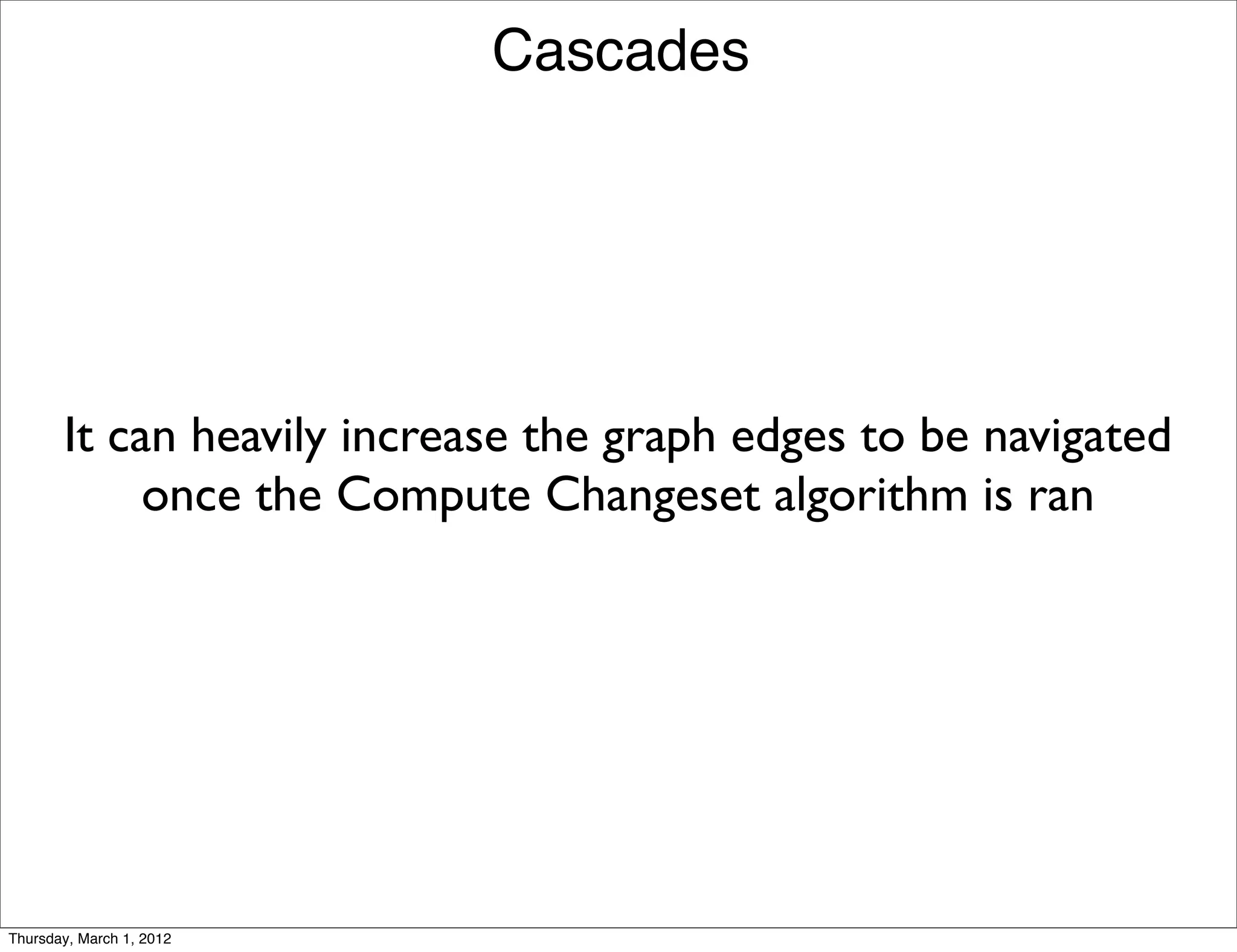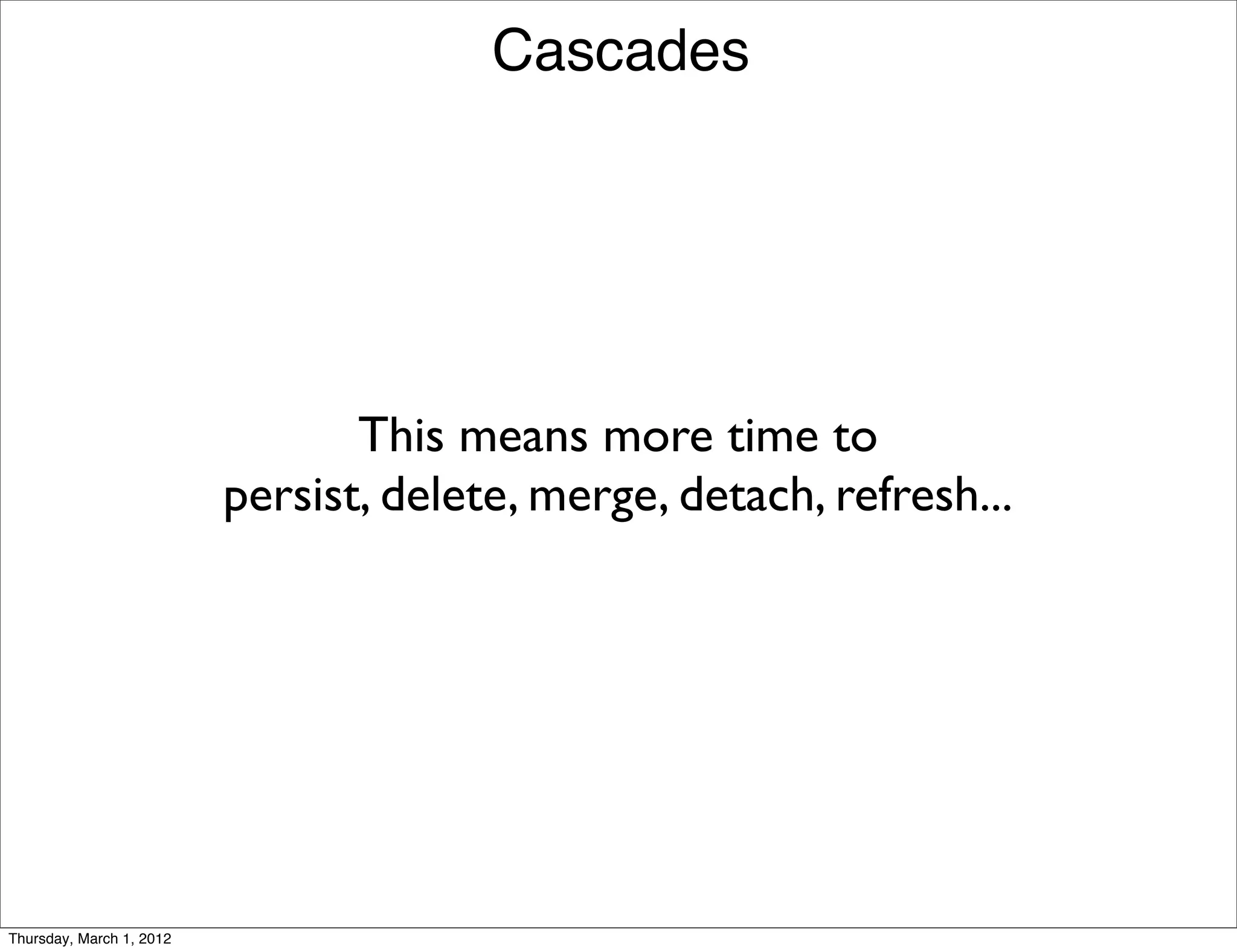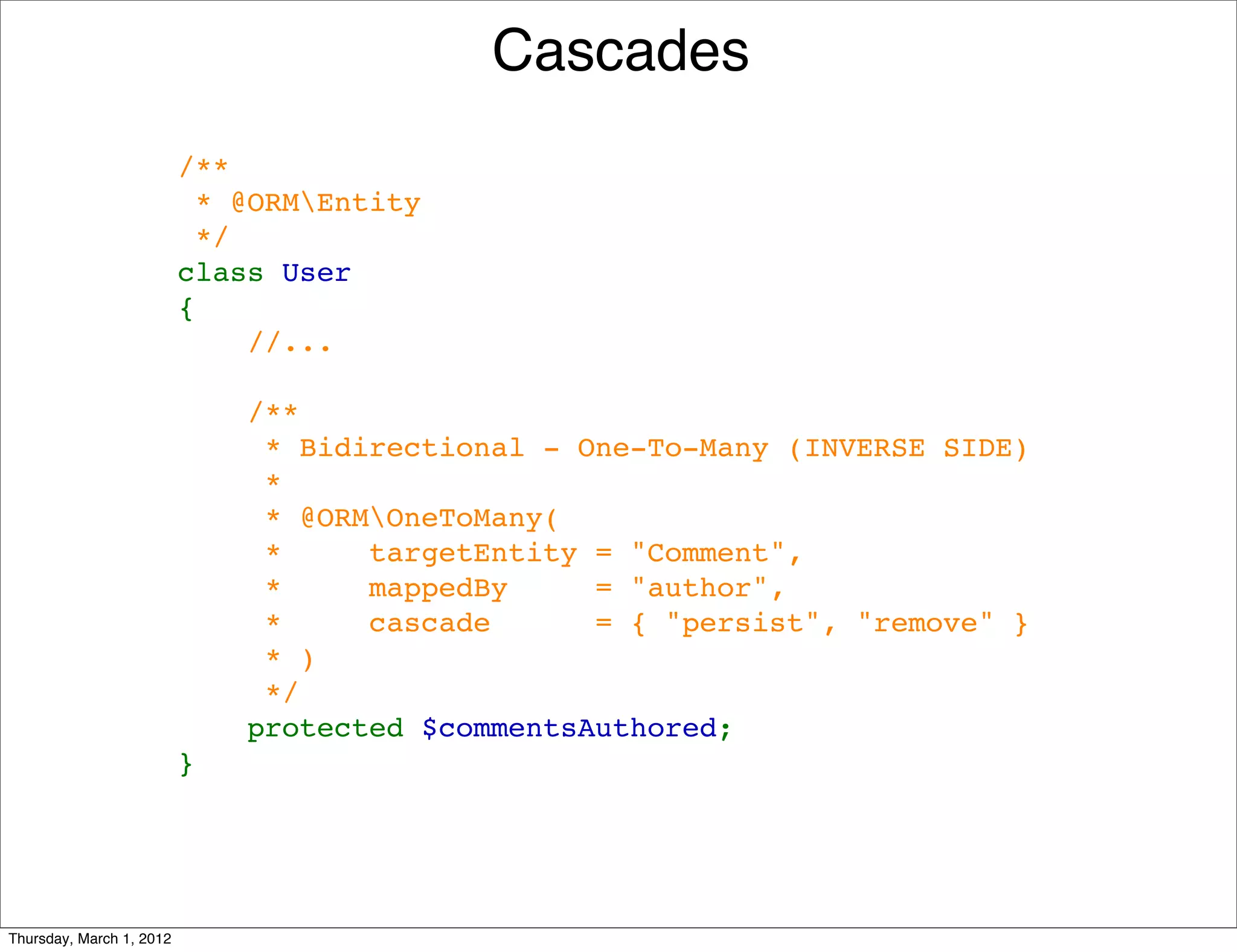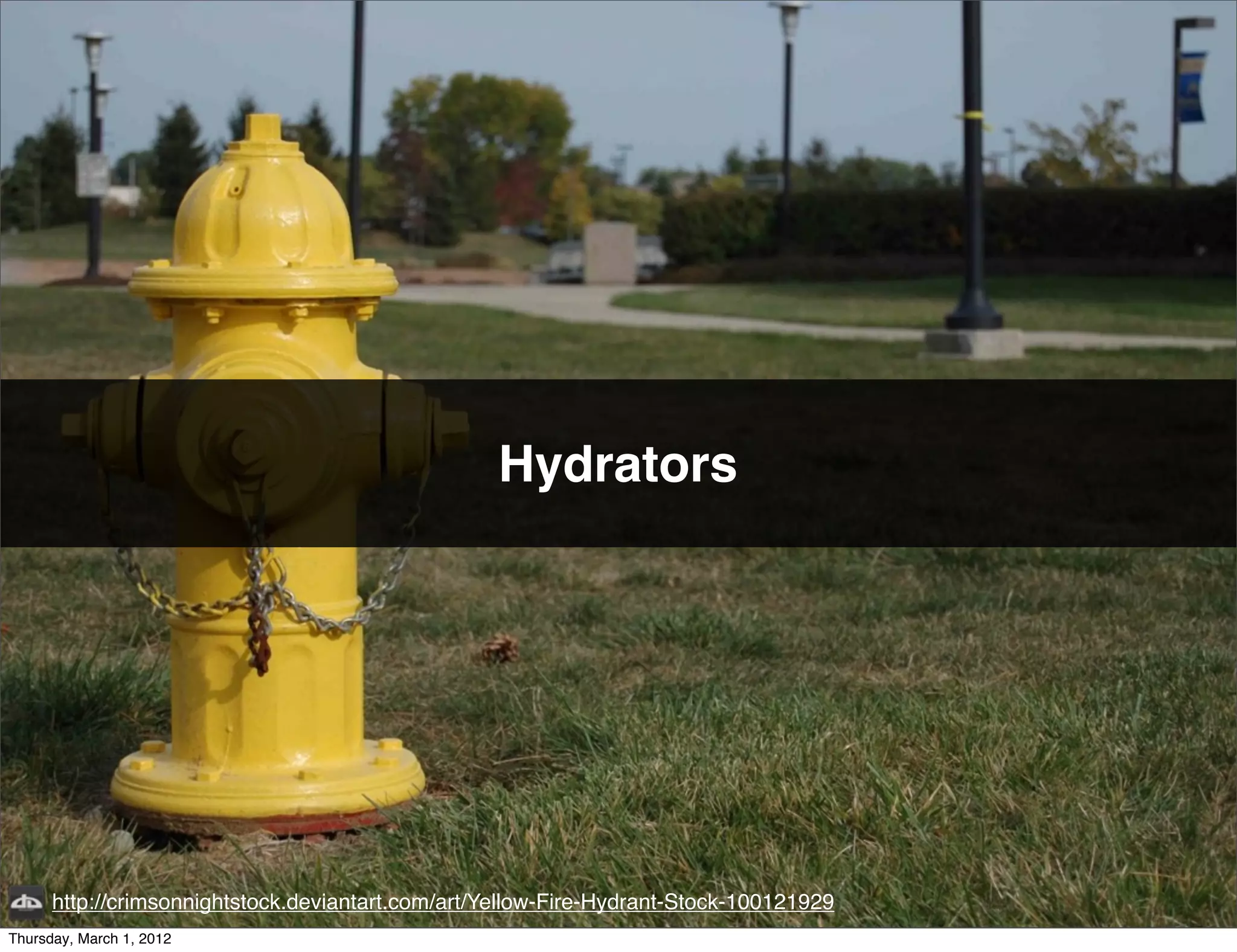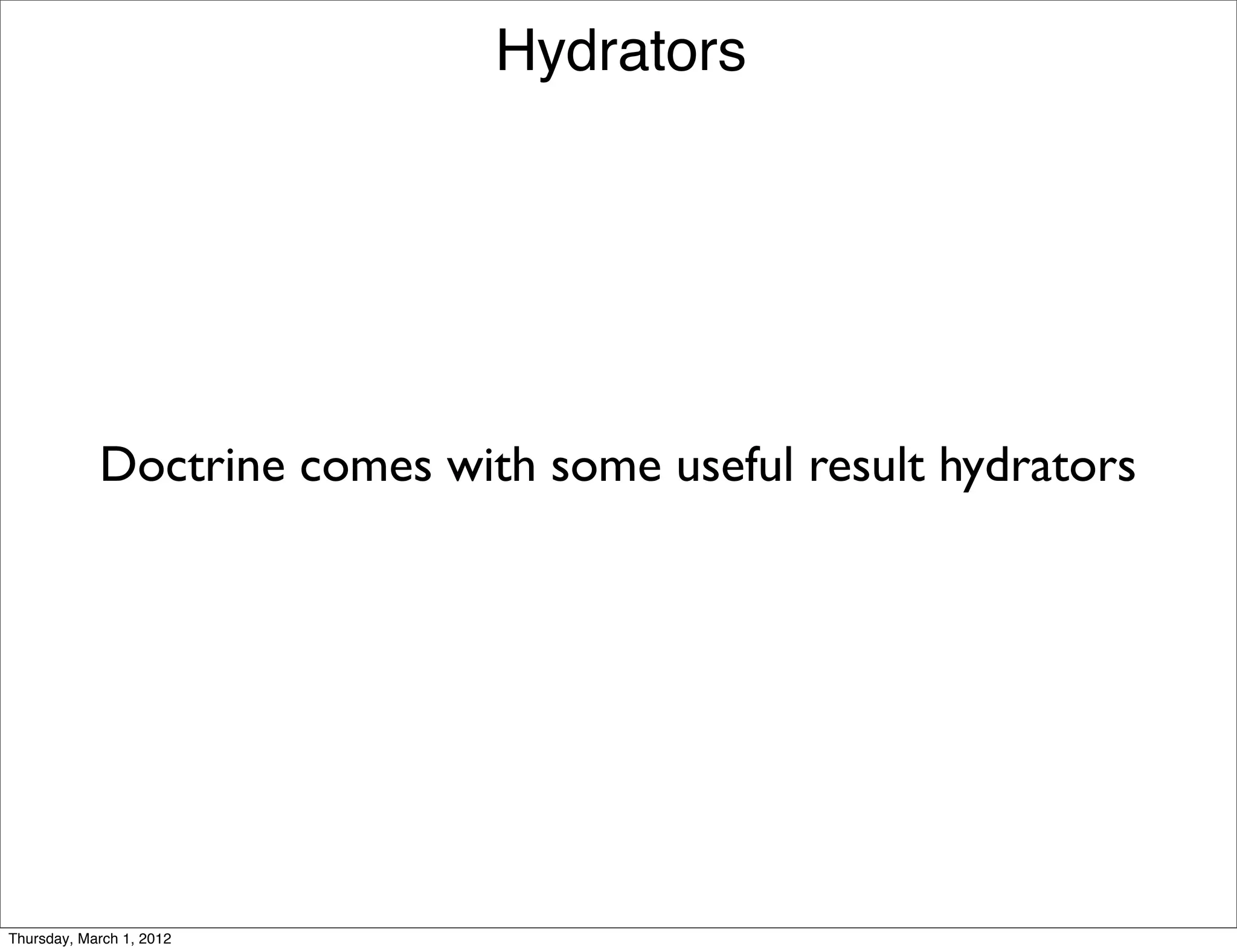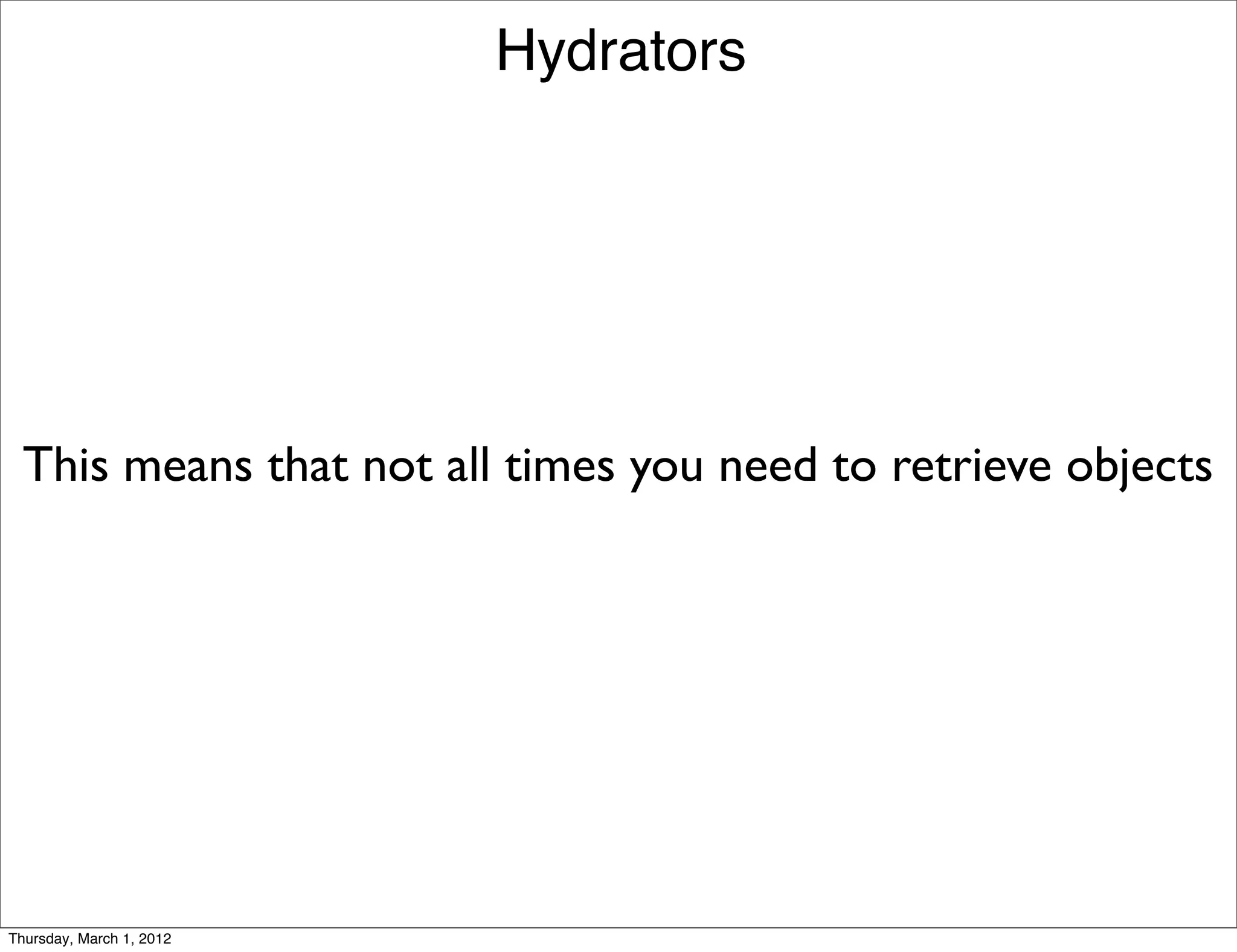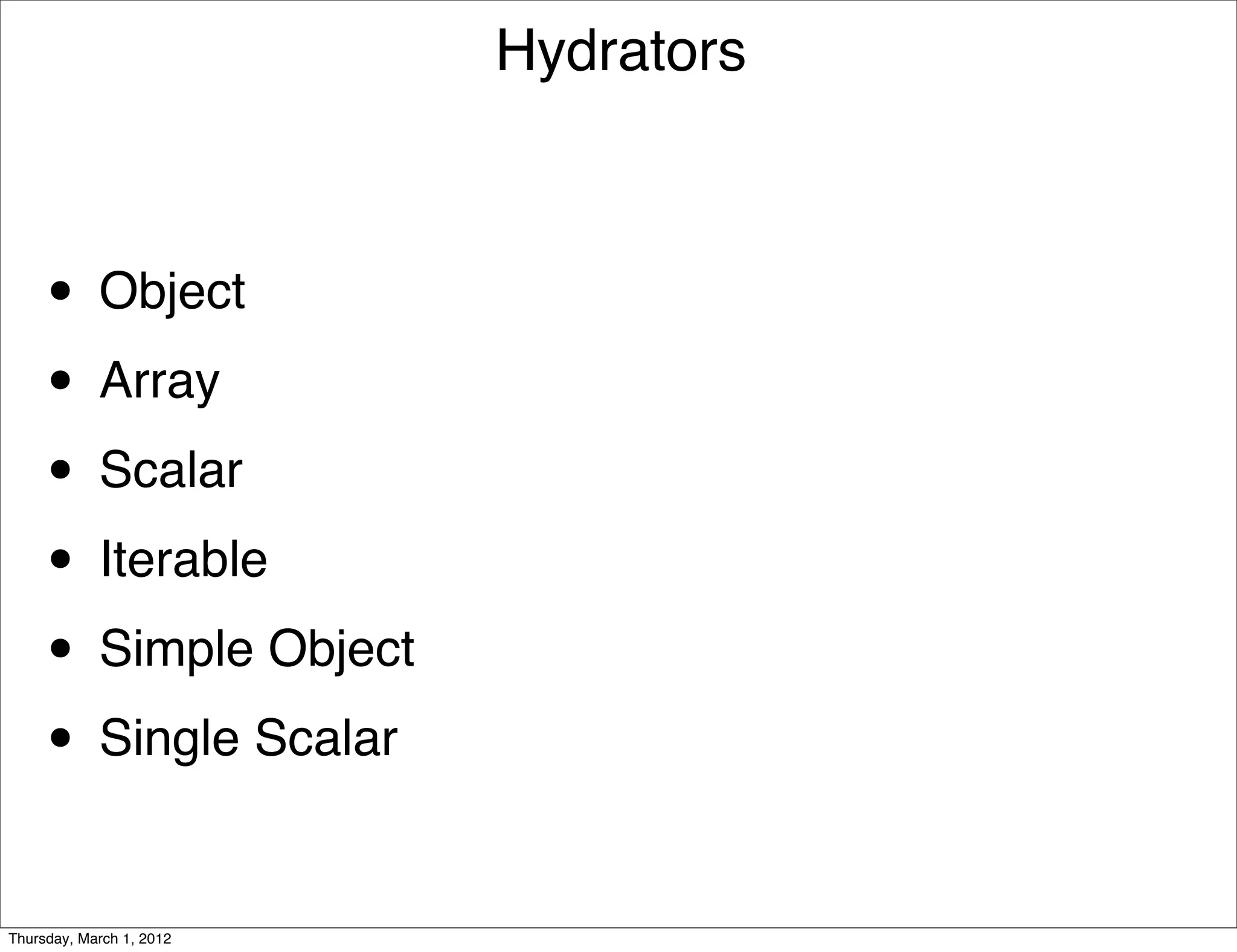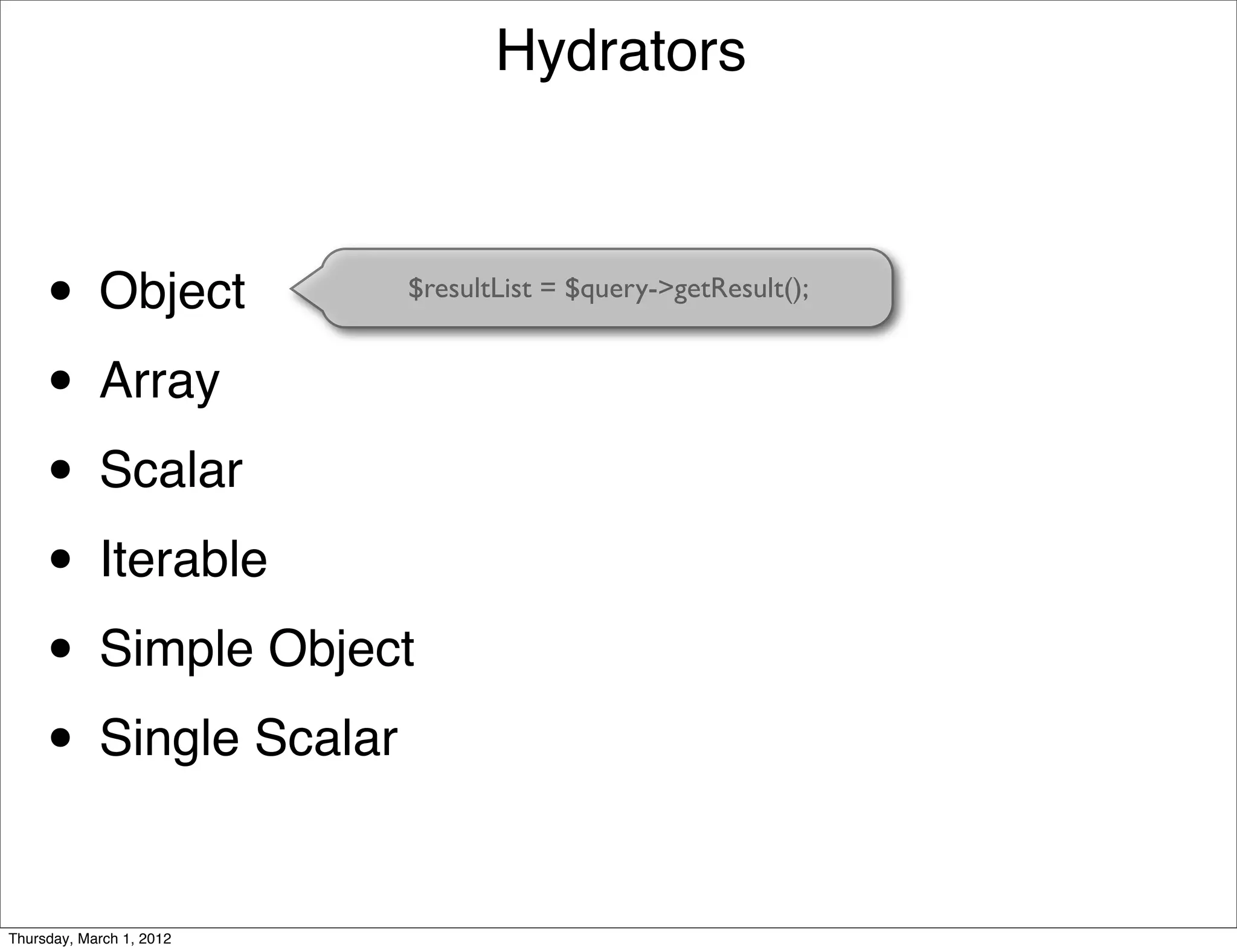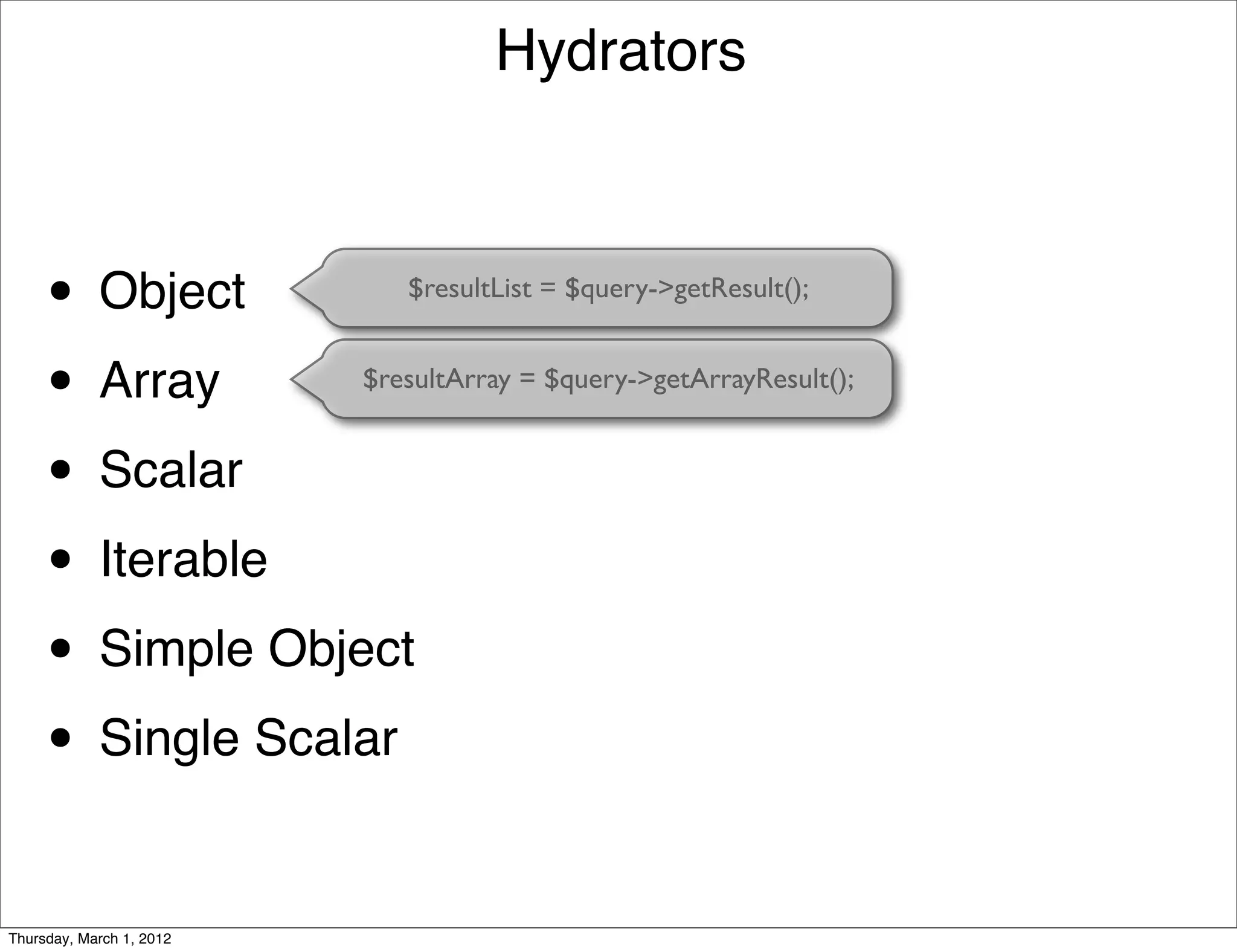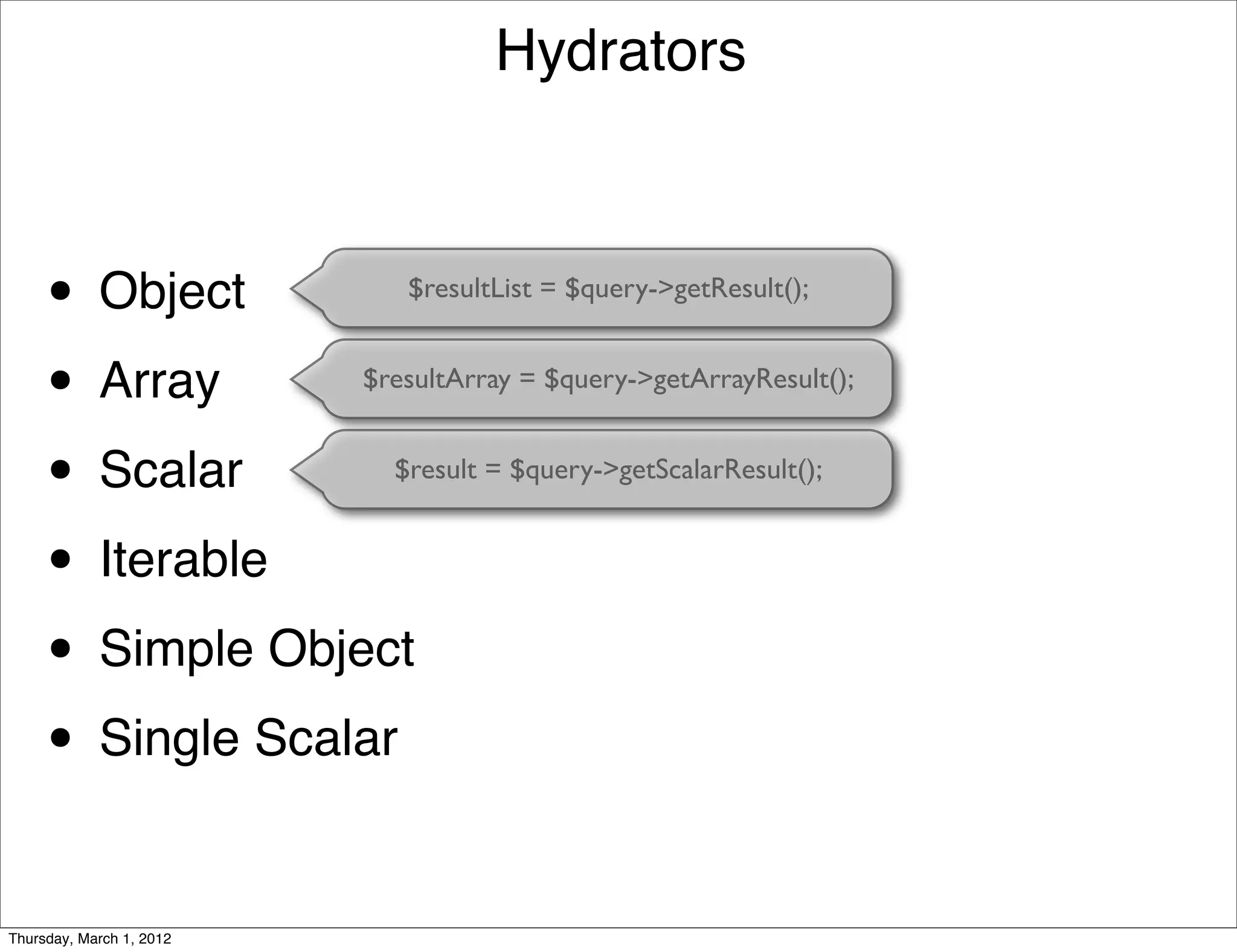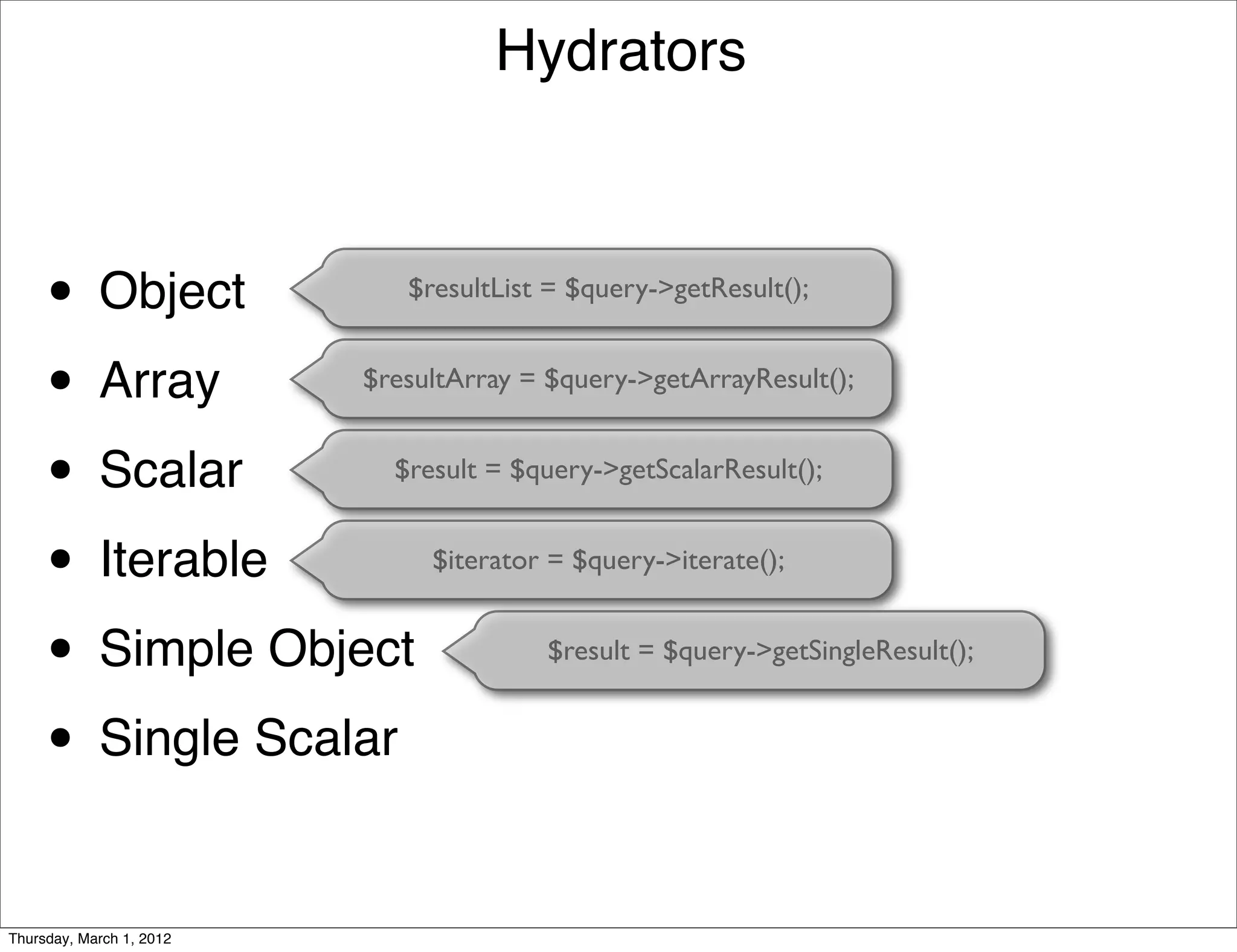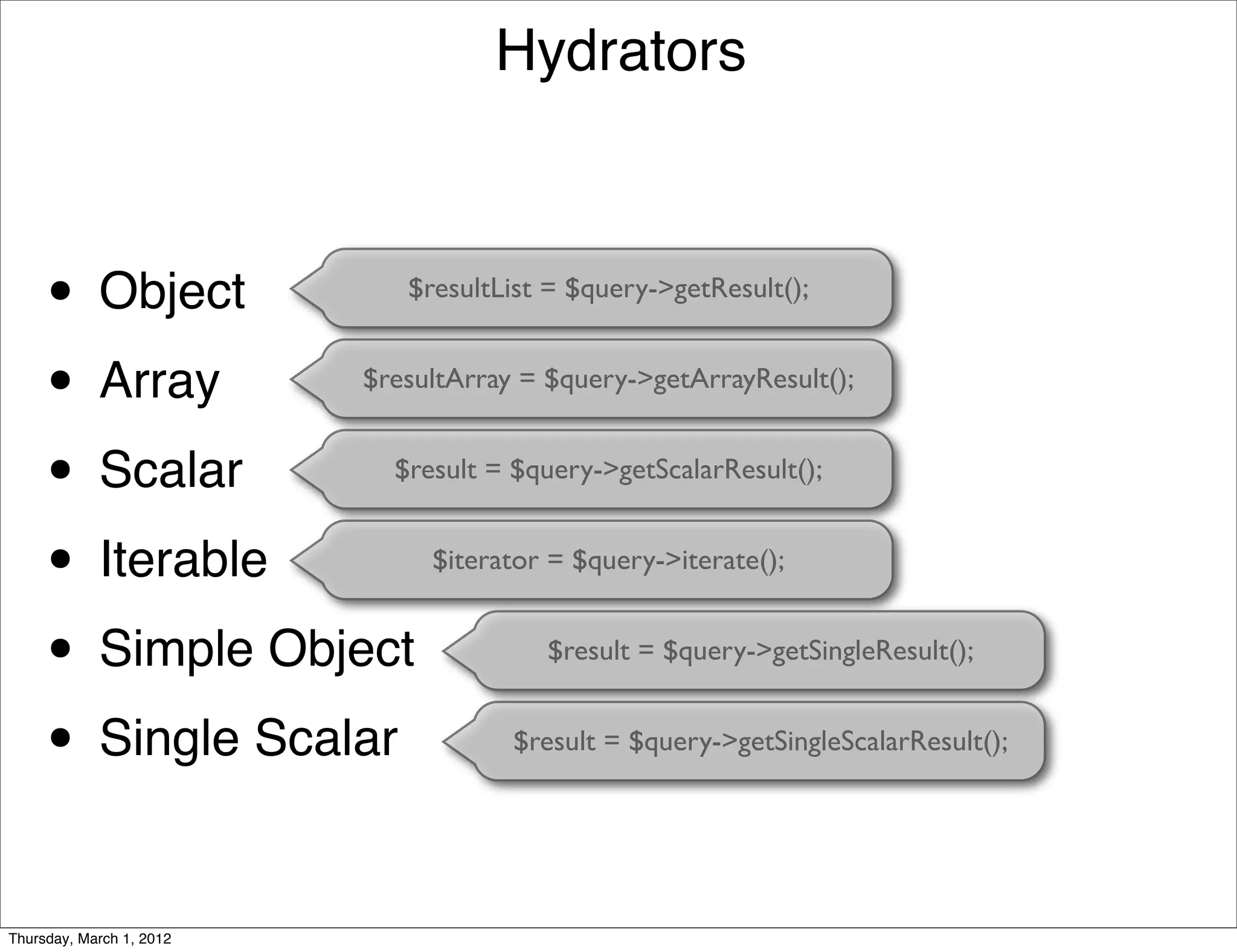The document discusses good practices for using Object-Relational Mapping (ORM) in database development, covering topics such as dependency management, fetching strategies, and querying with DQL (Doctrine Query Language). It provides examples of defining entities, associations, fetching strategies (eager, lazy, extra_lazy), and formulating complex queries with joins. The document emphasizes that improper ORM usage can lead to performance issues, encouraging developers to adhere to established guidelines.
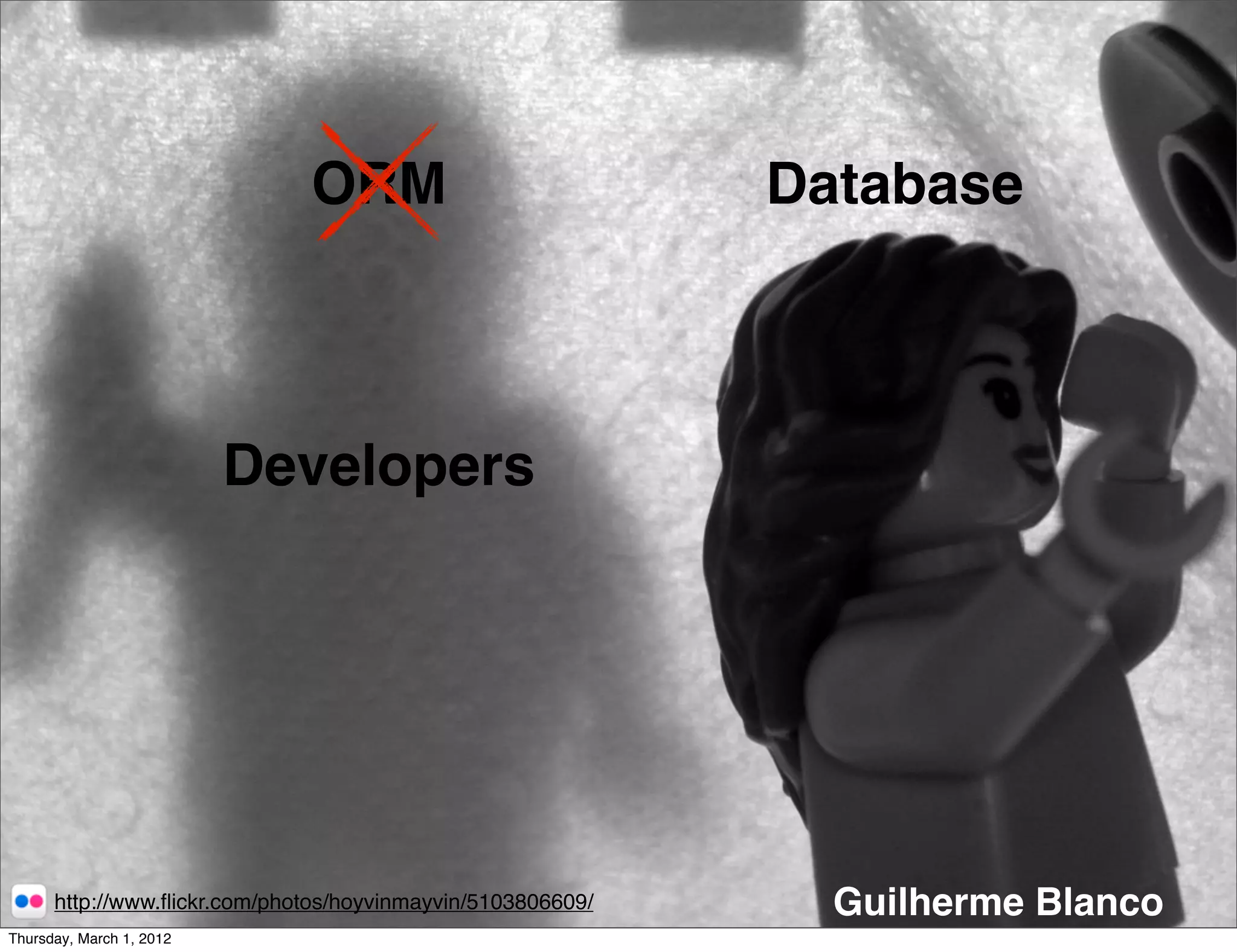
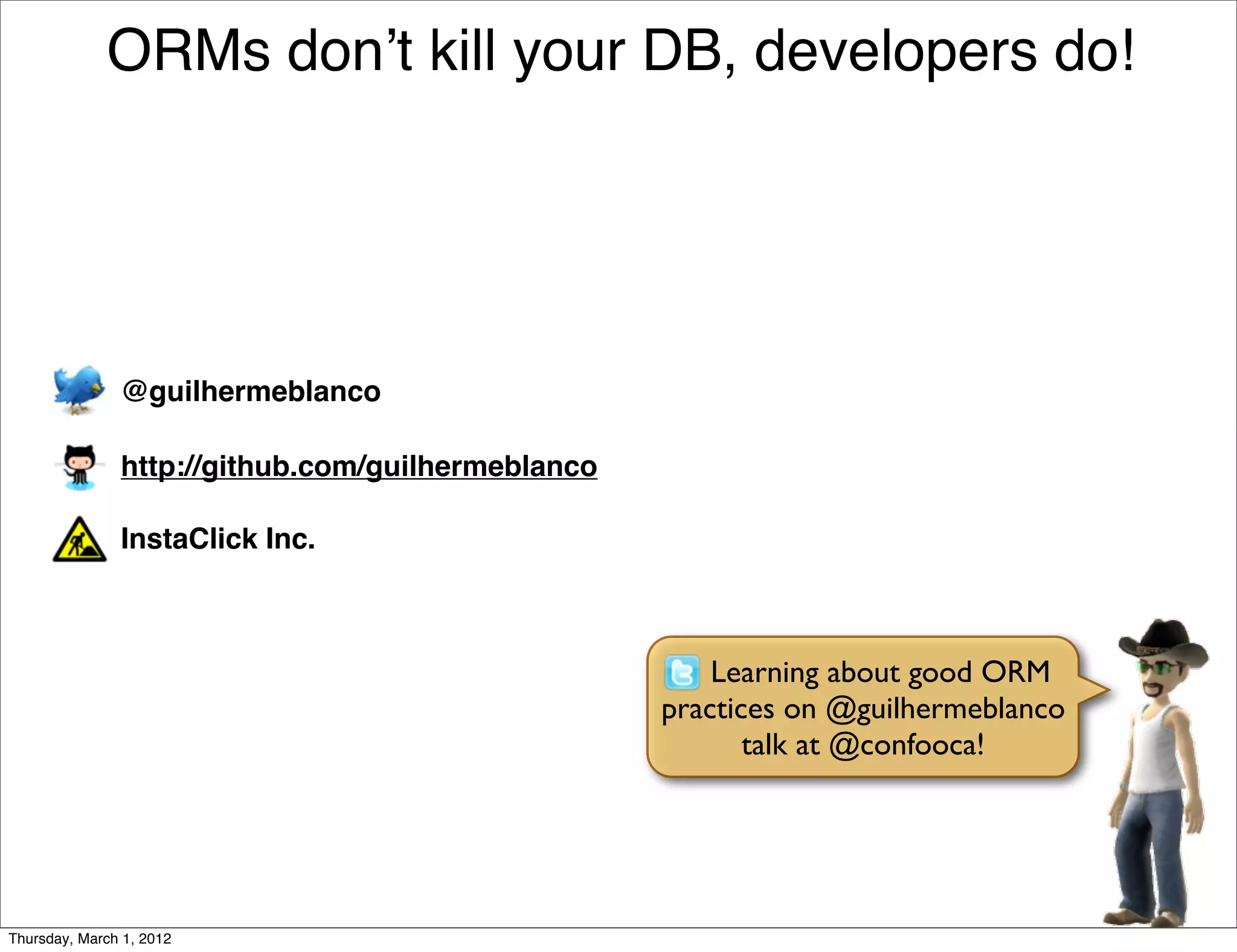

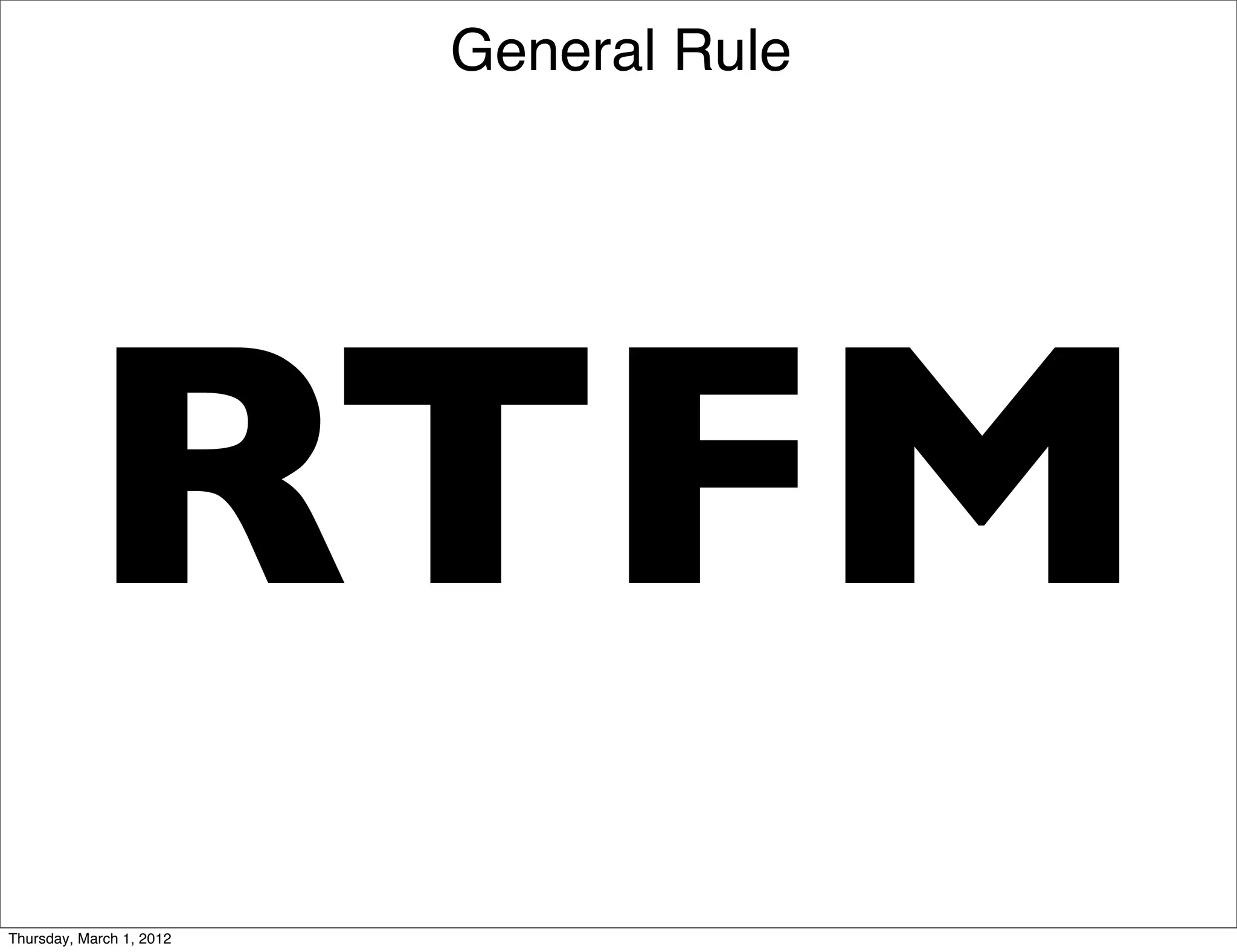

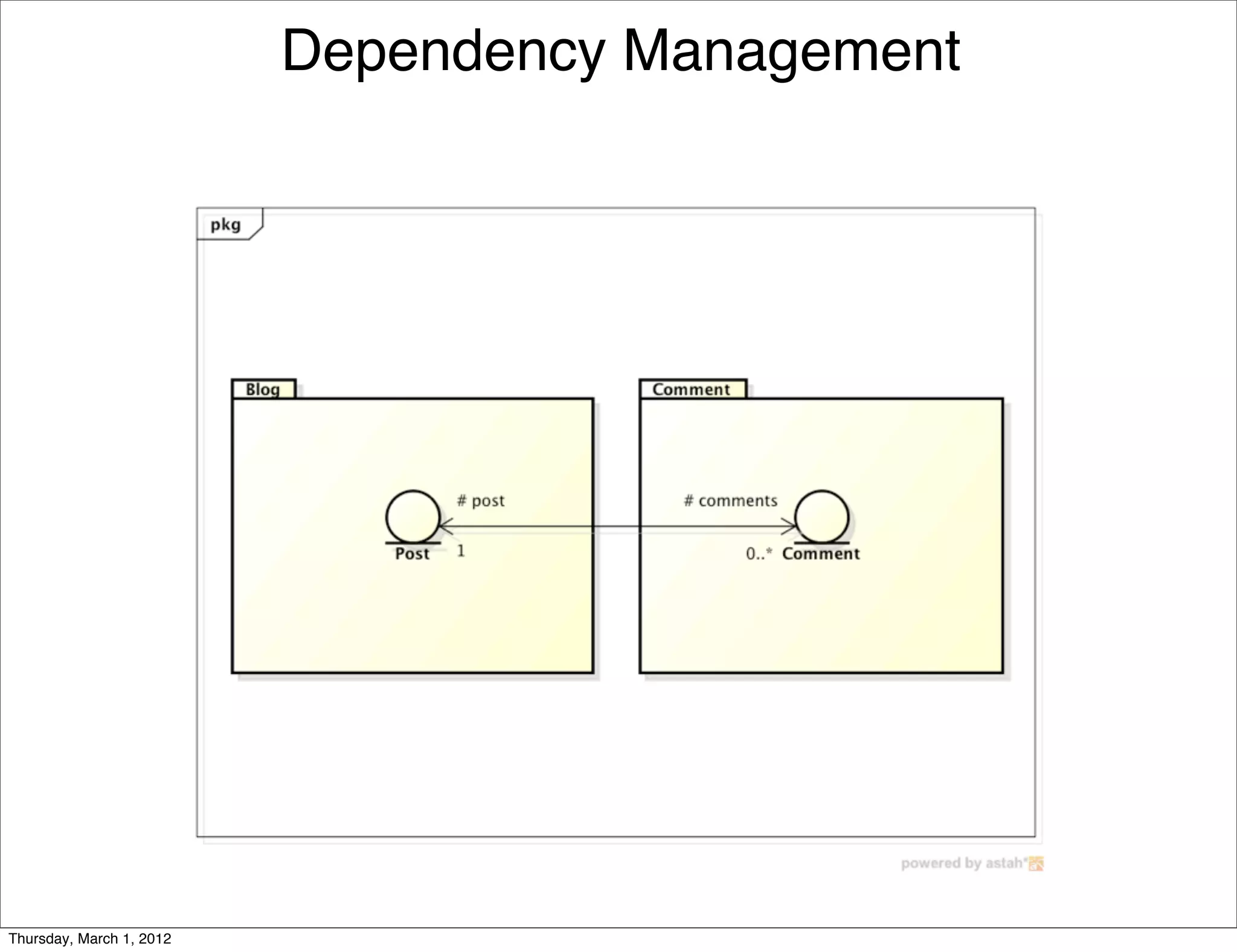
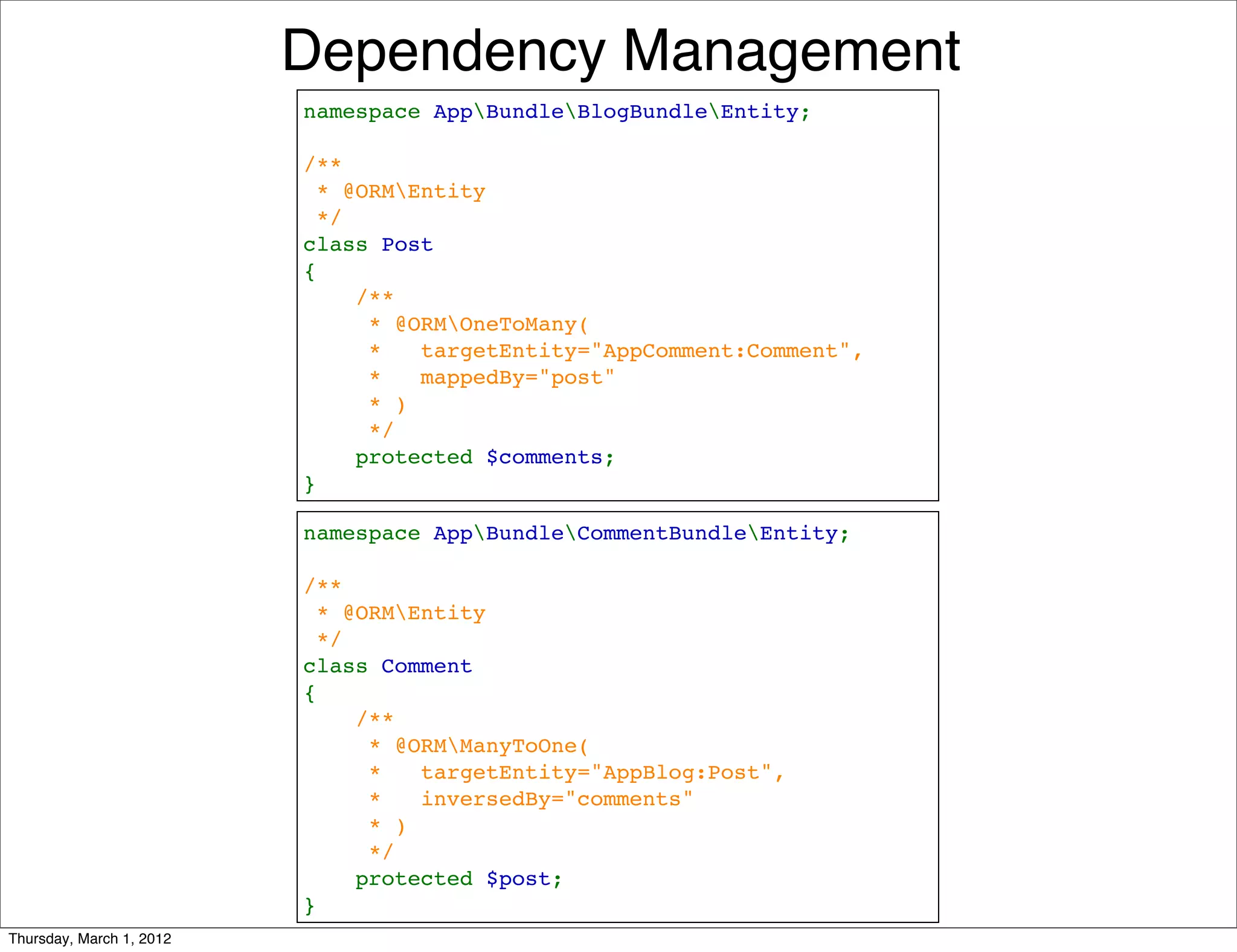
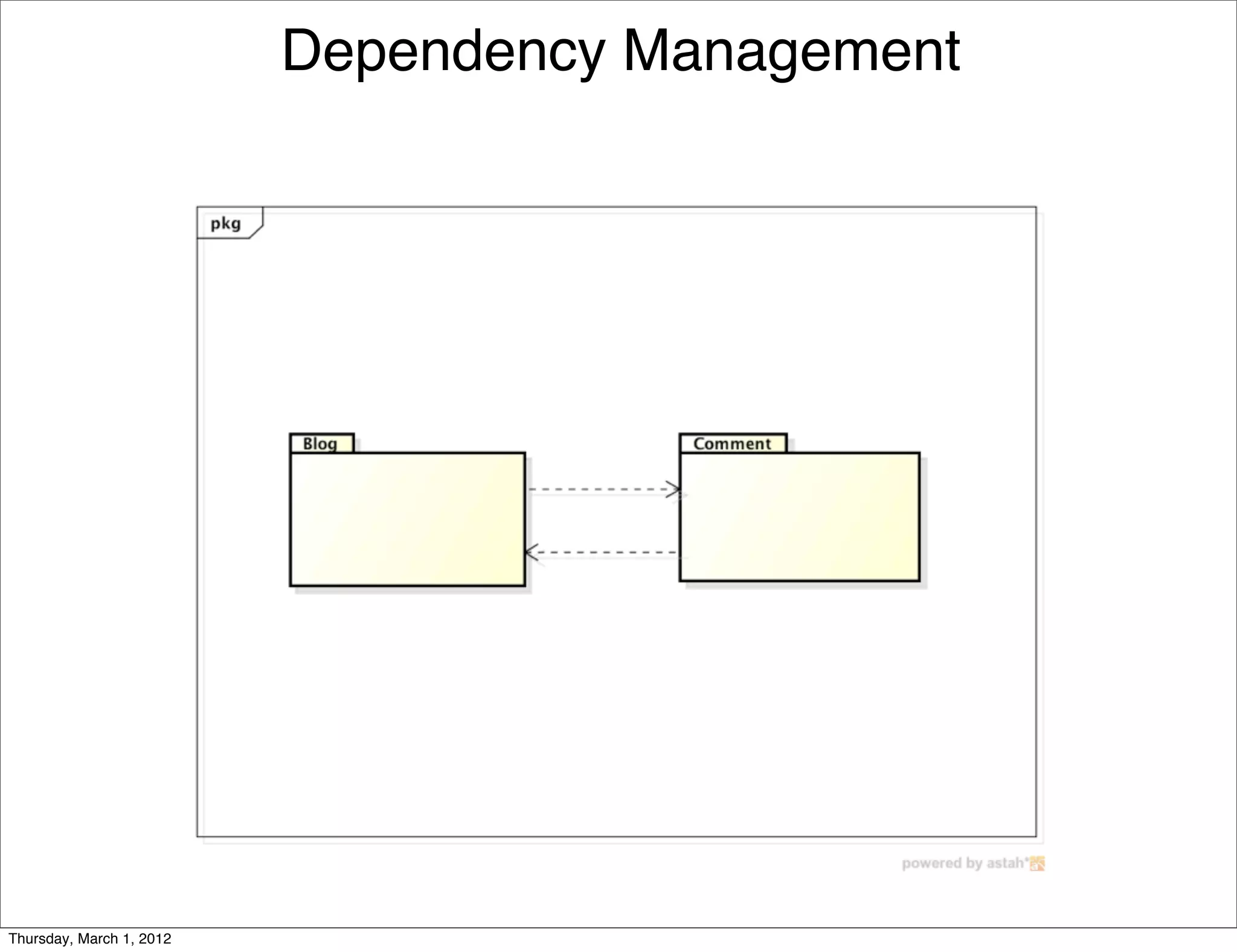
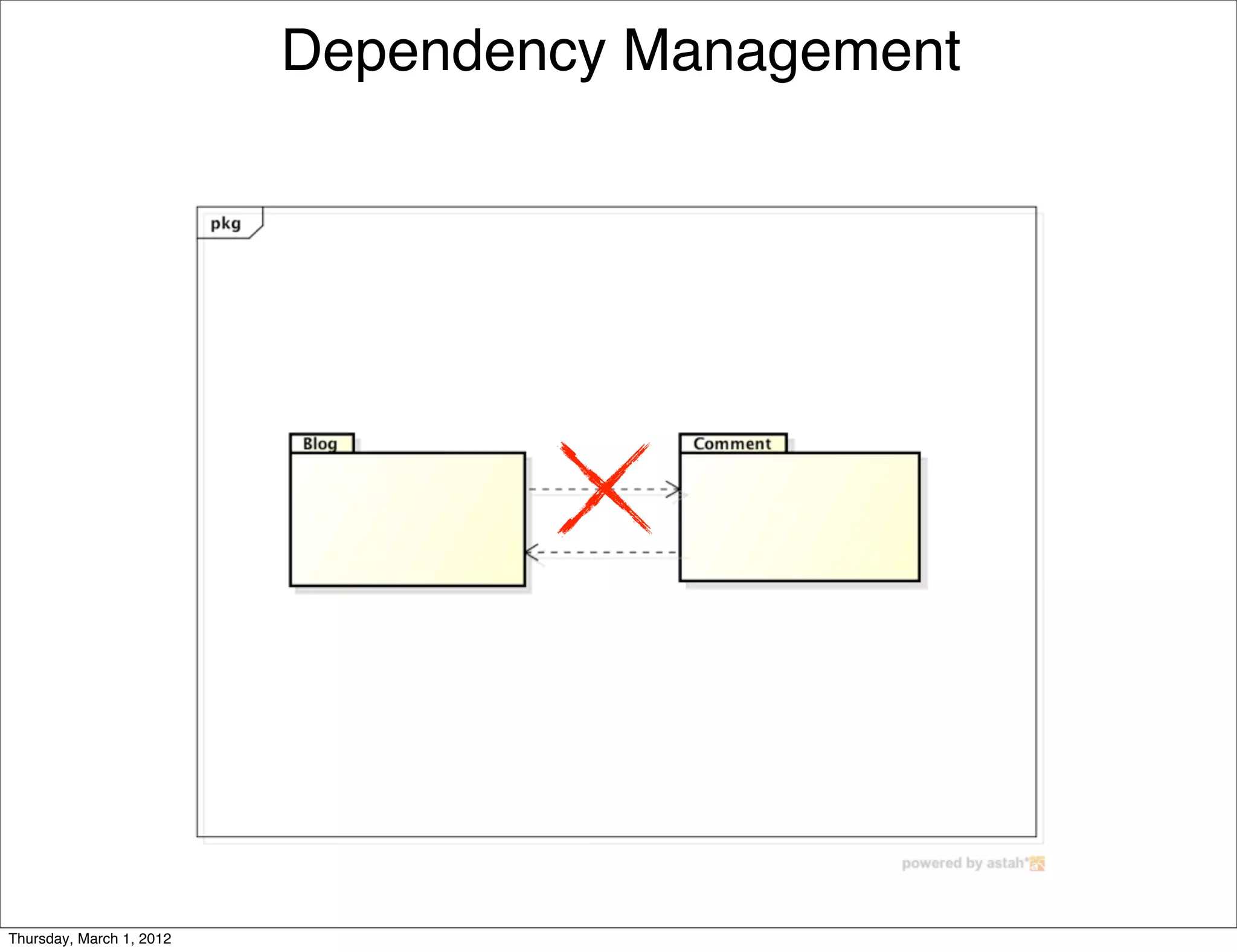
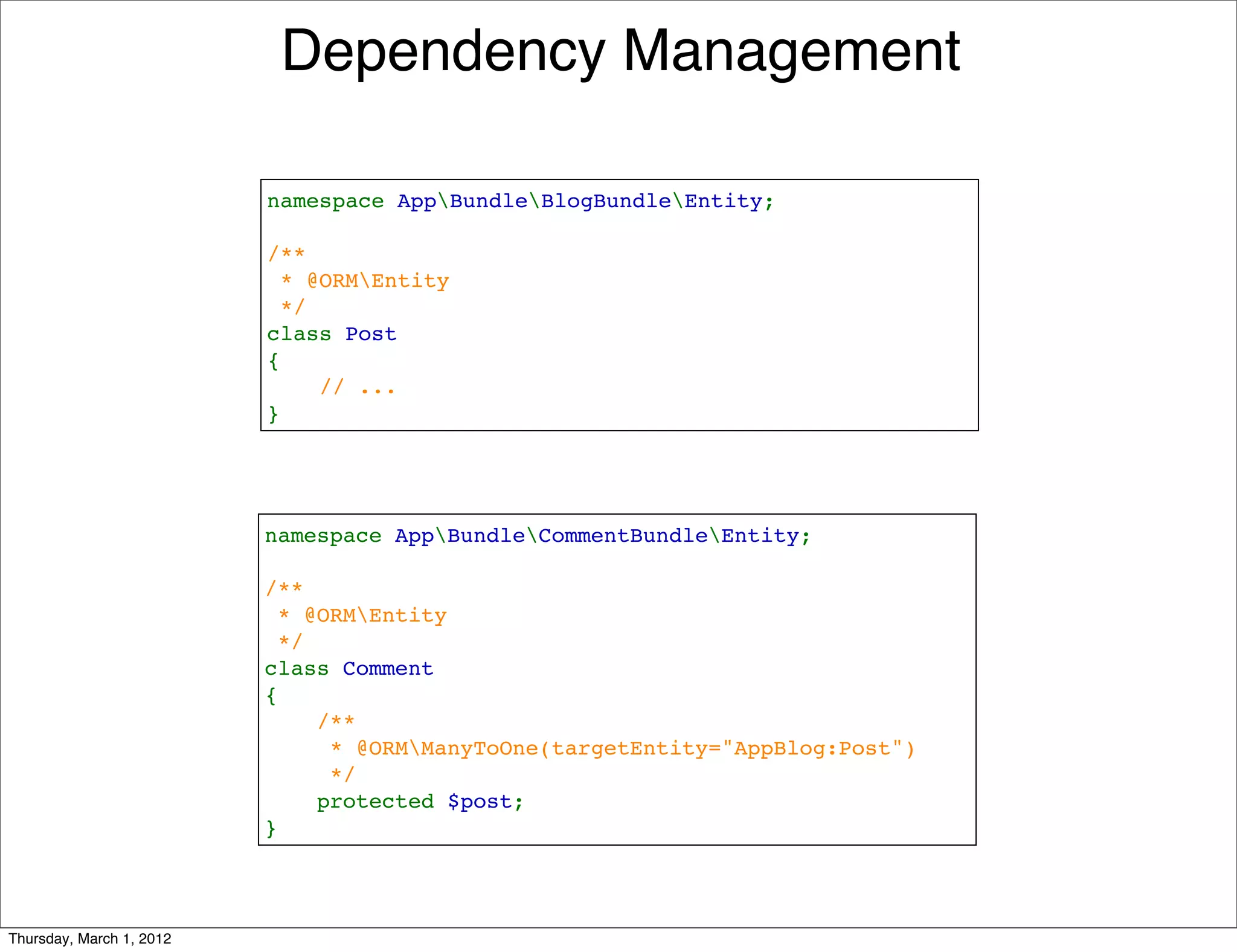

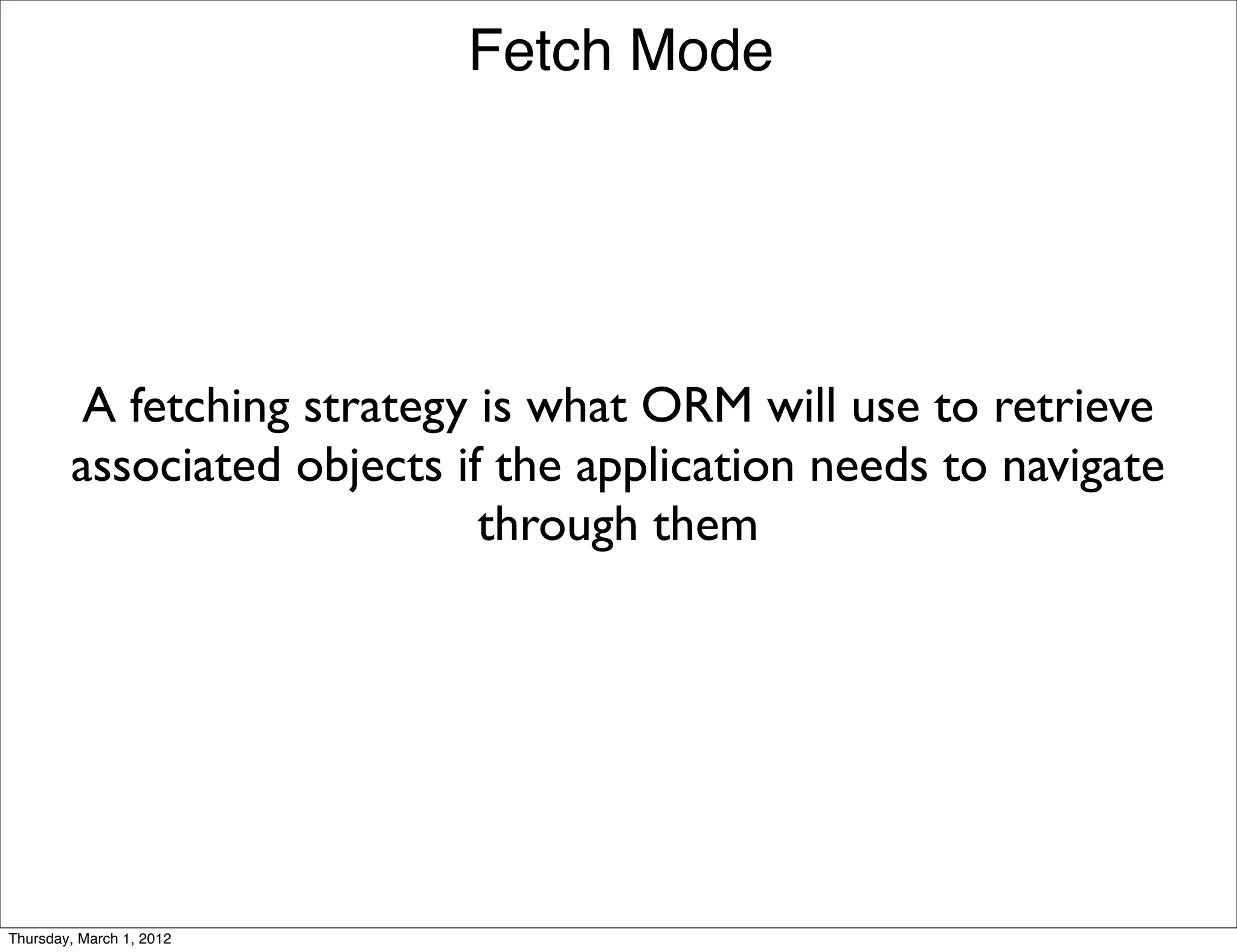
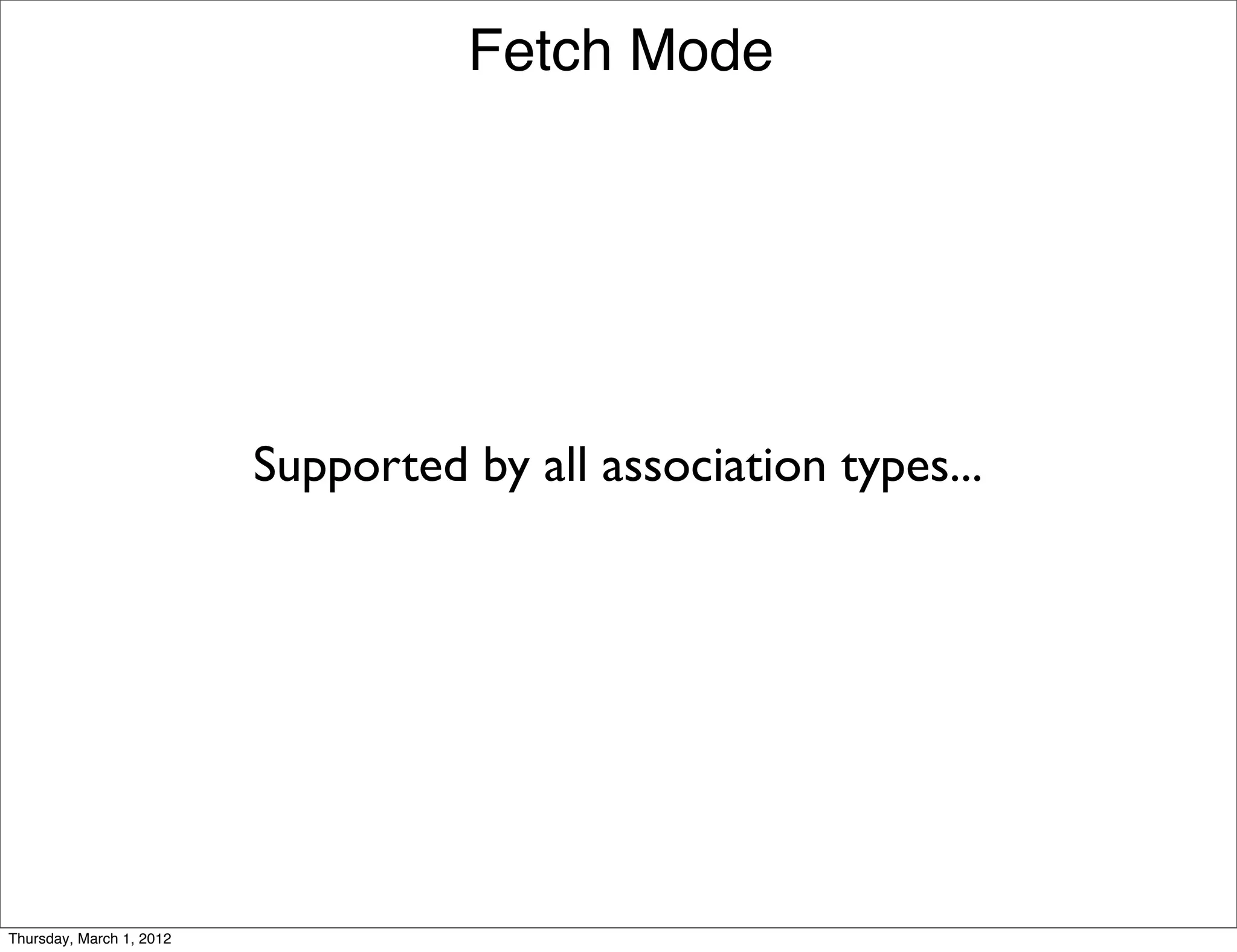

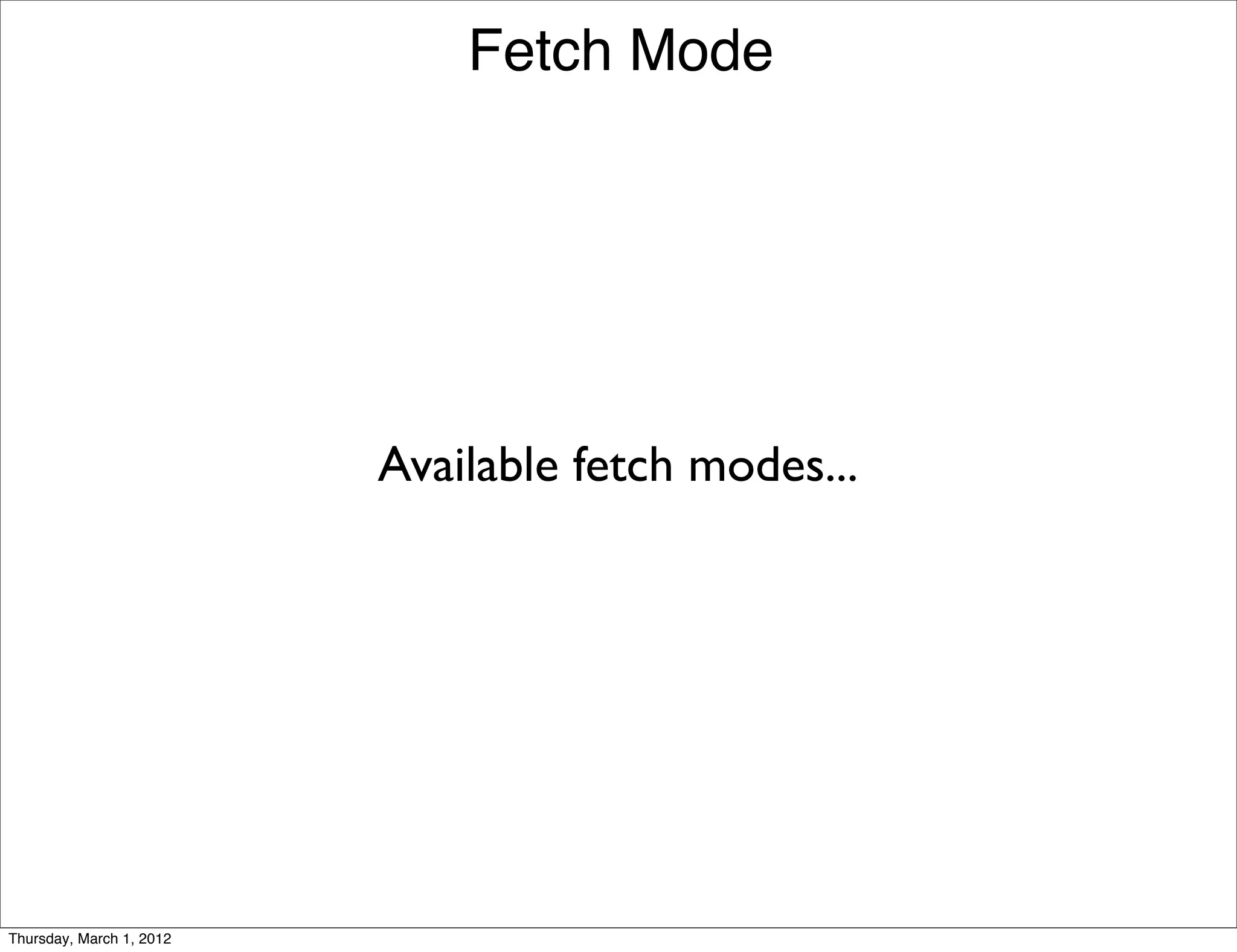
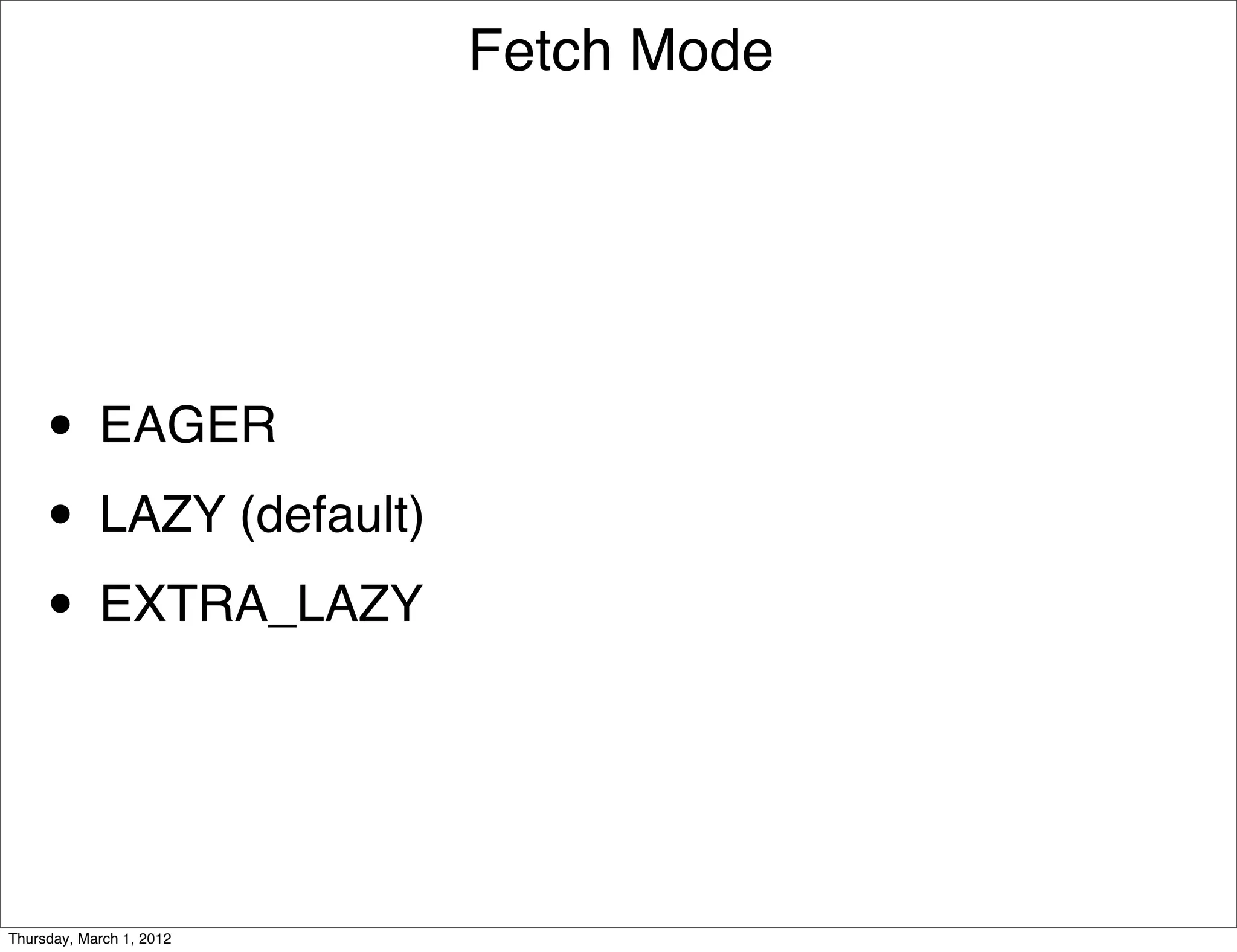
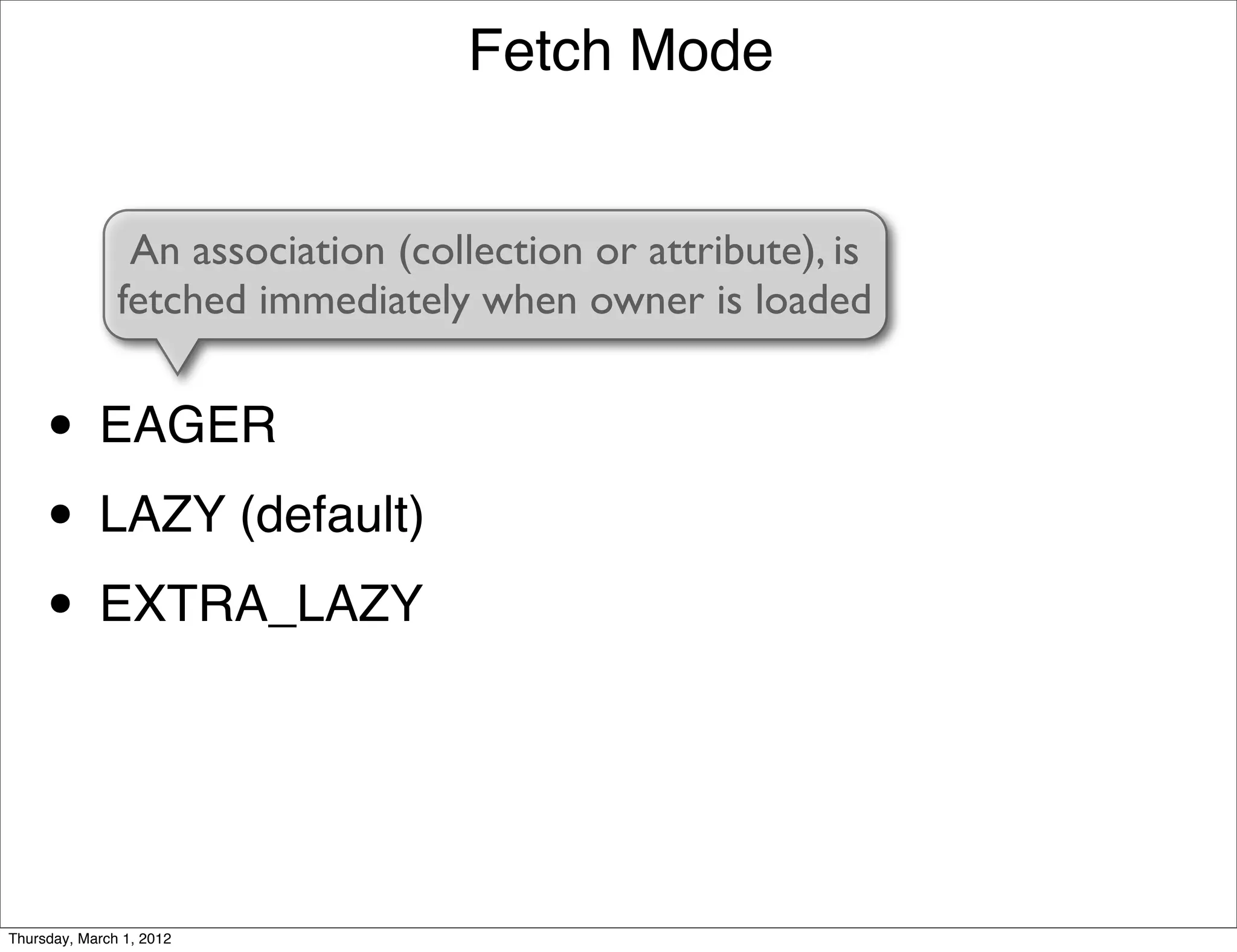
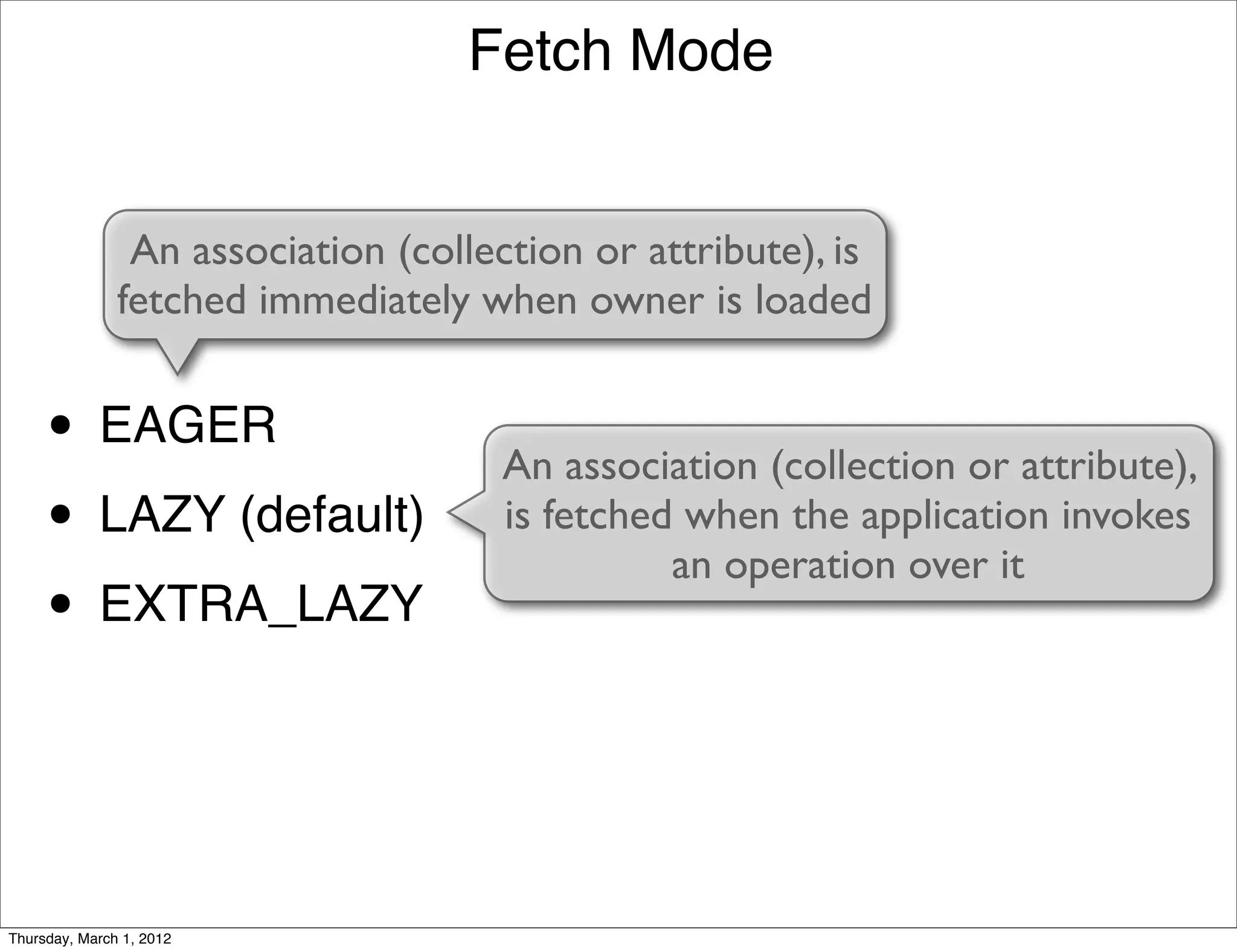
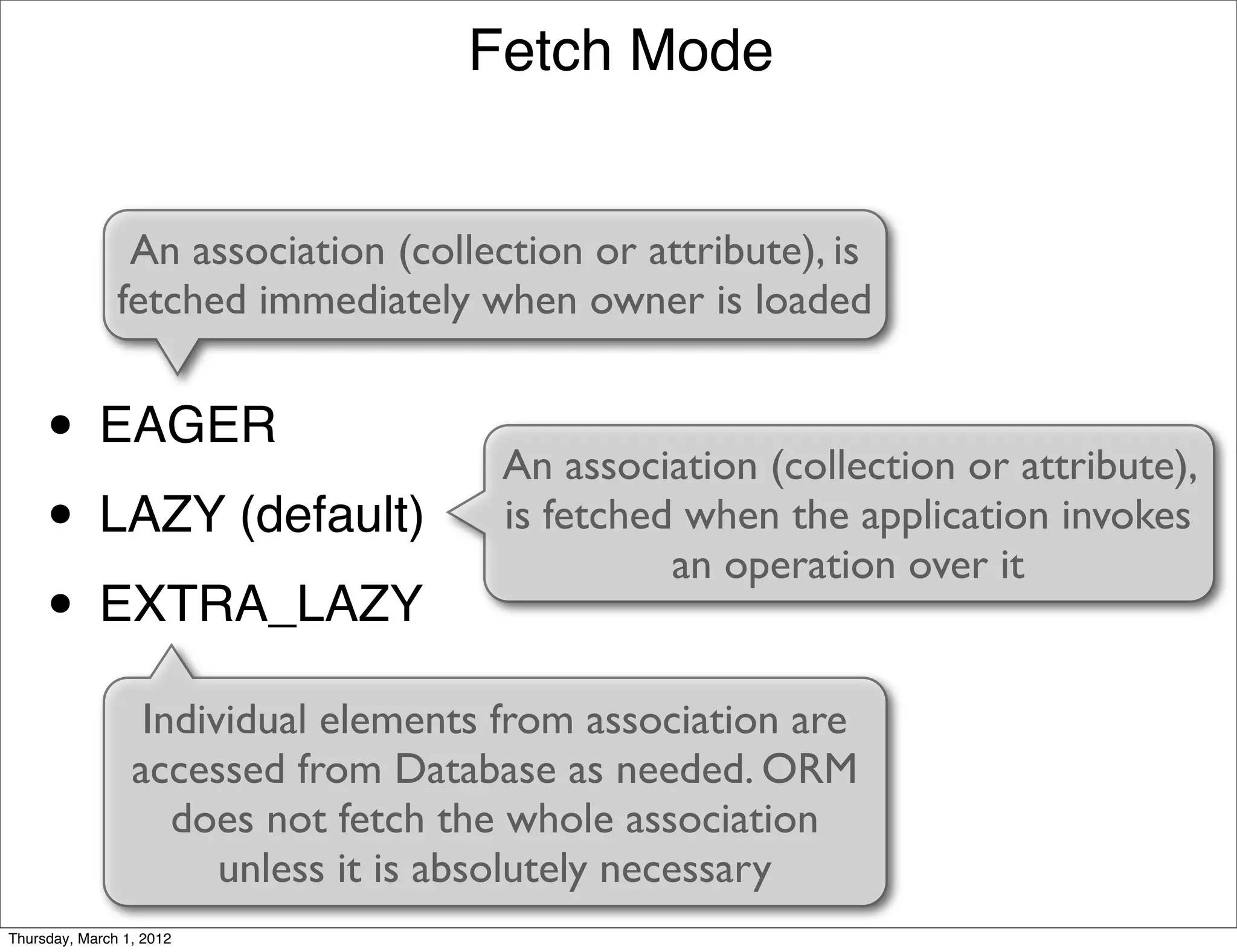
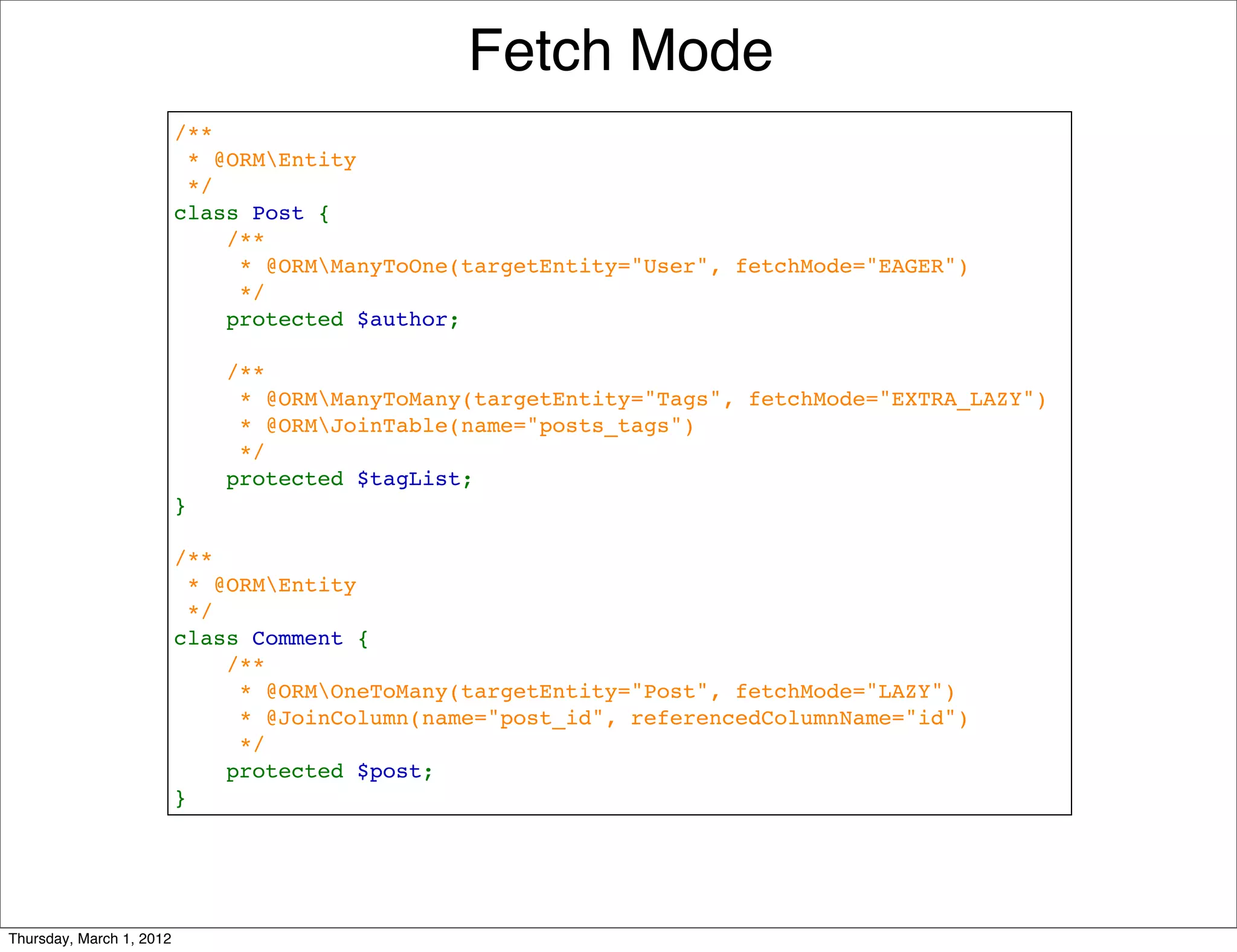
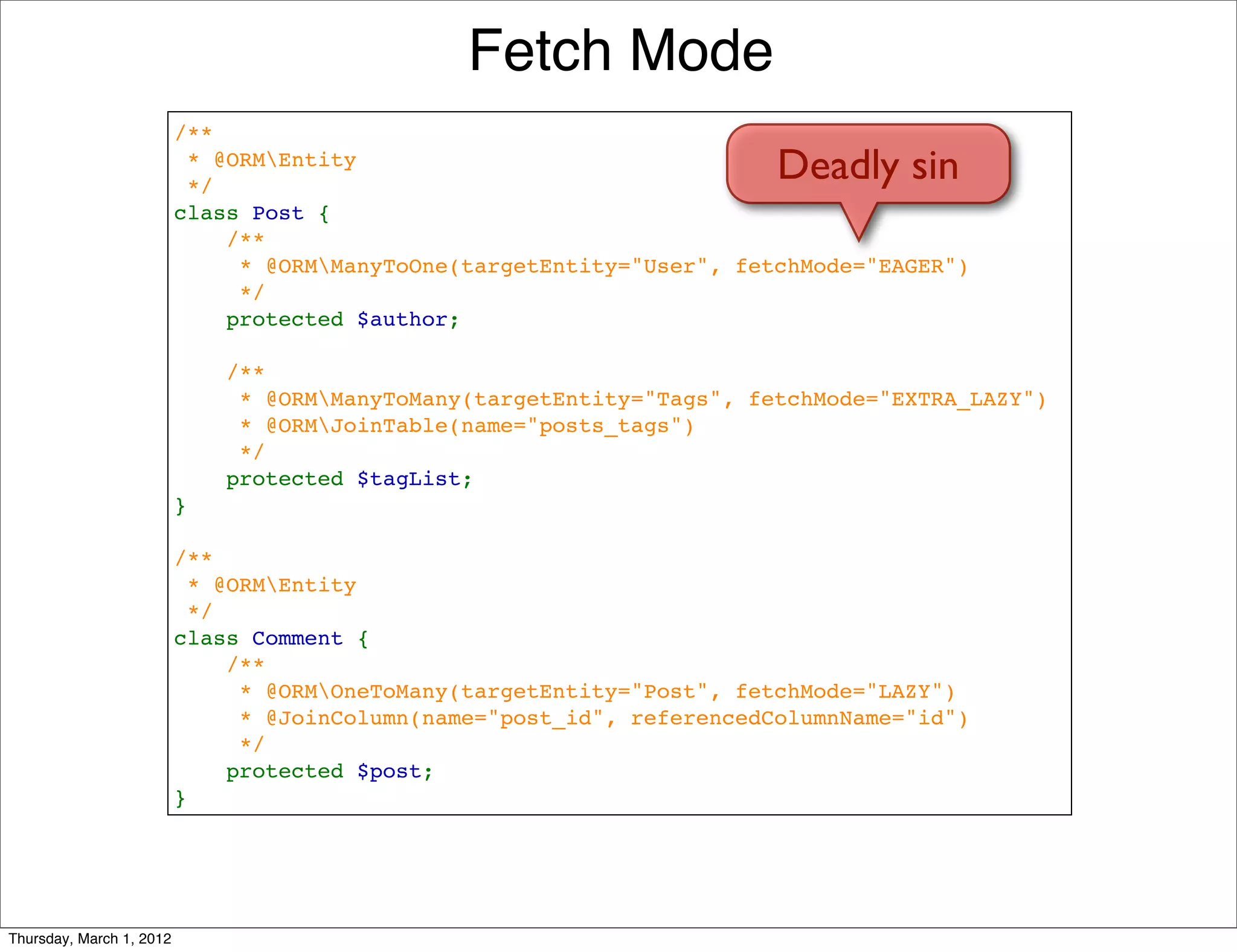
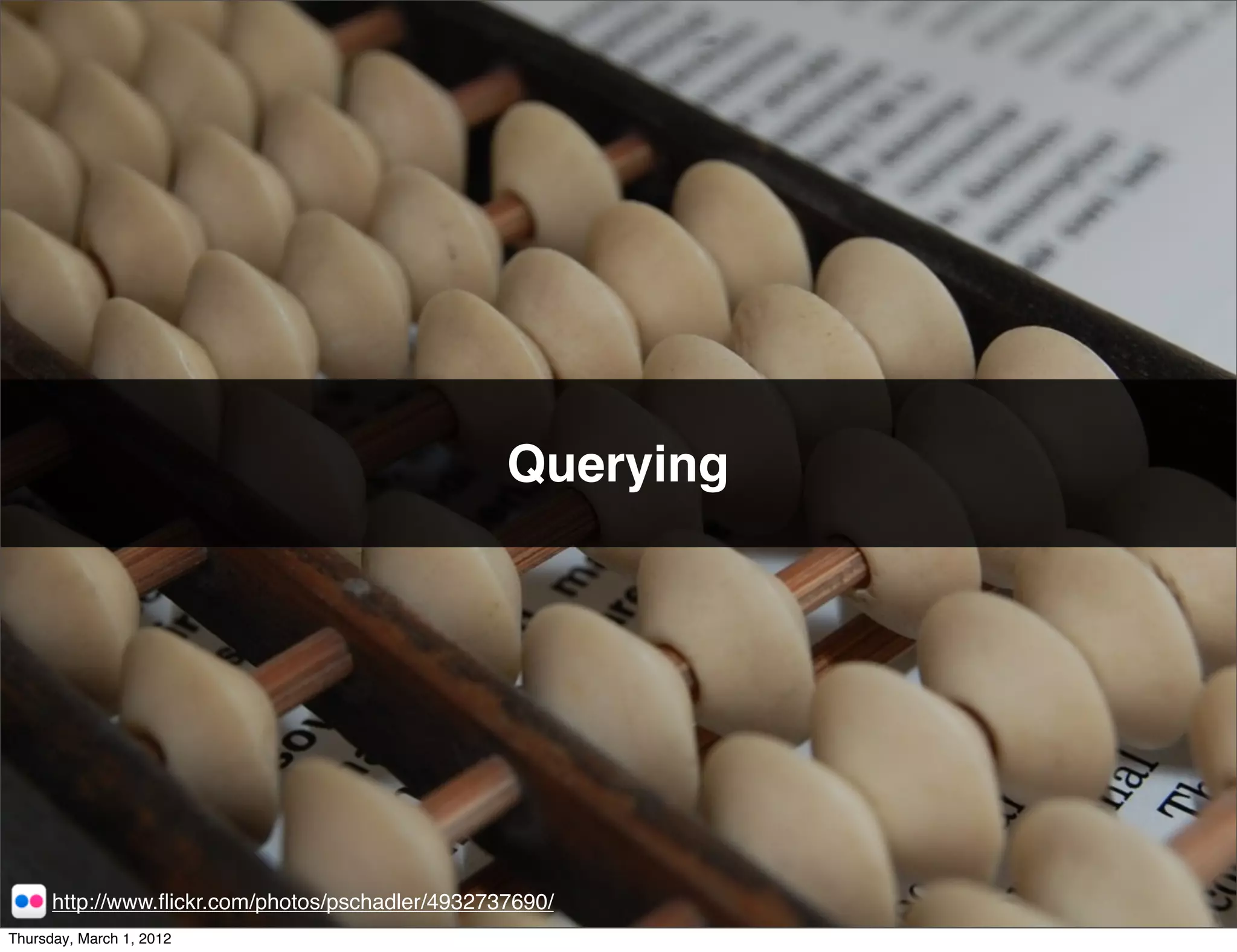
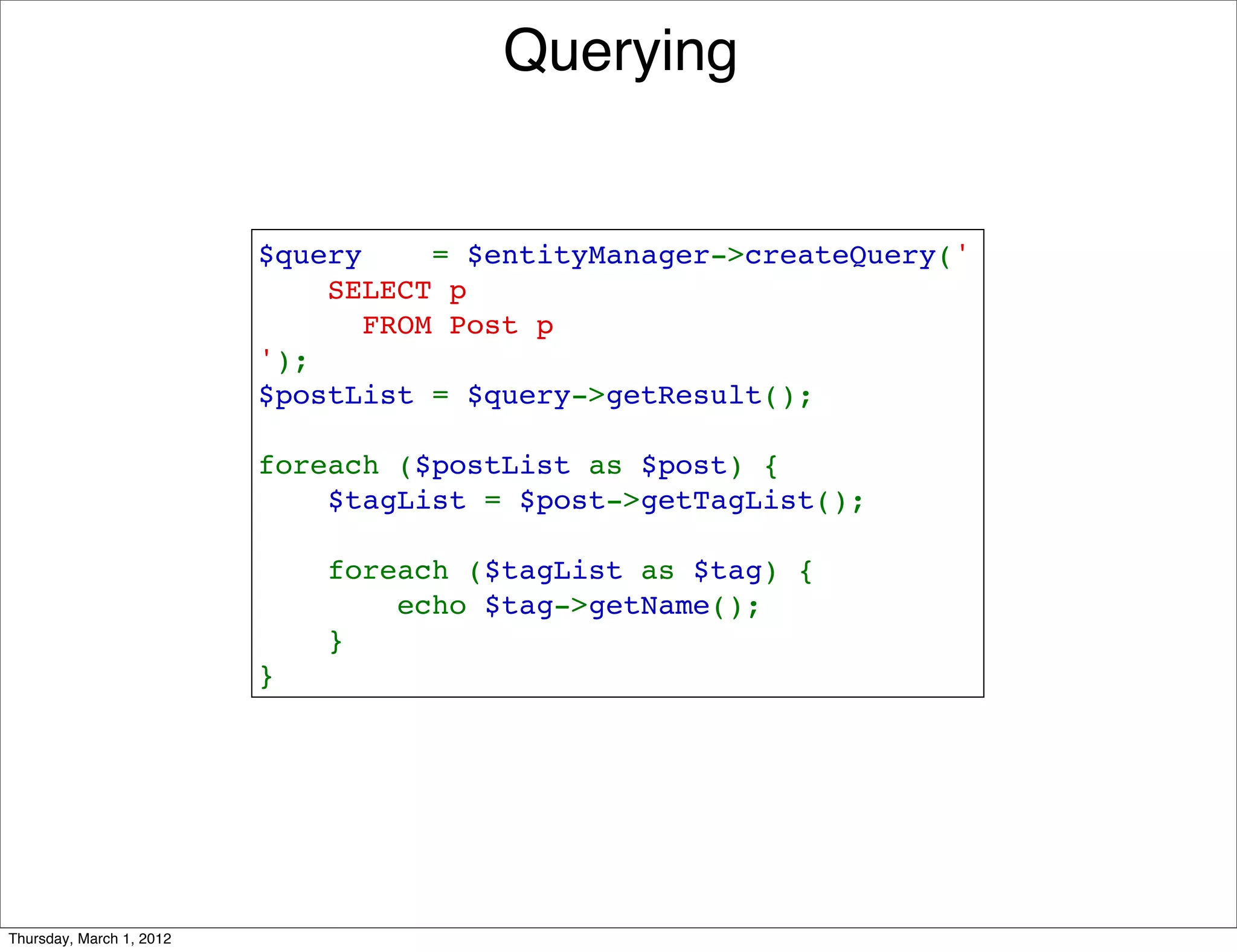
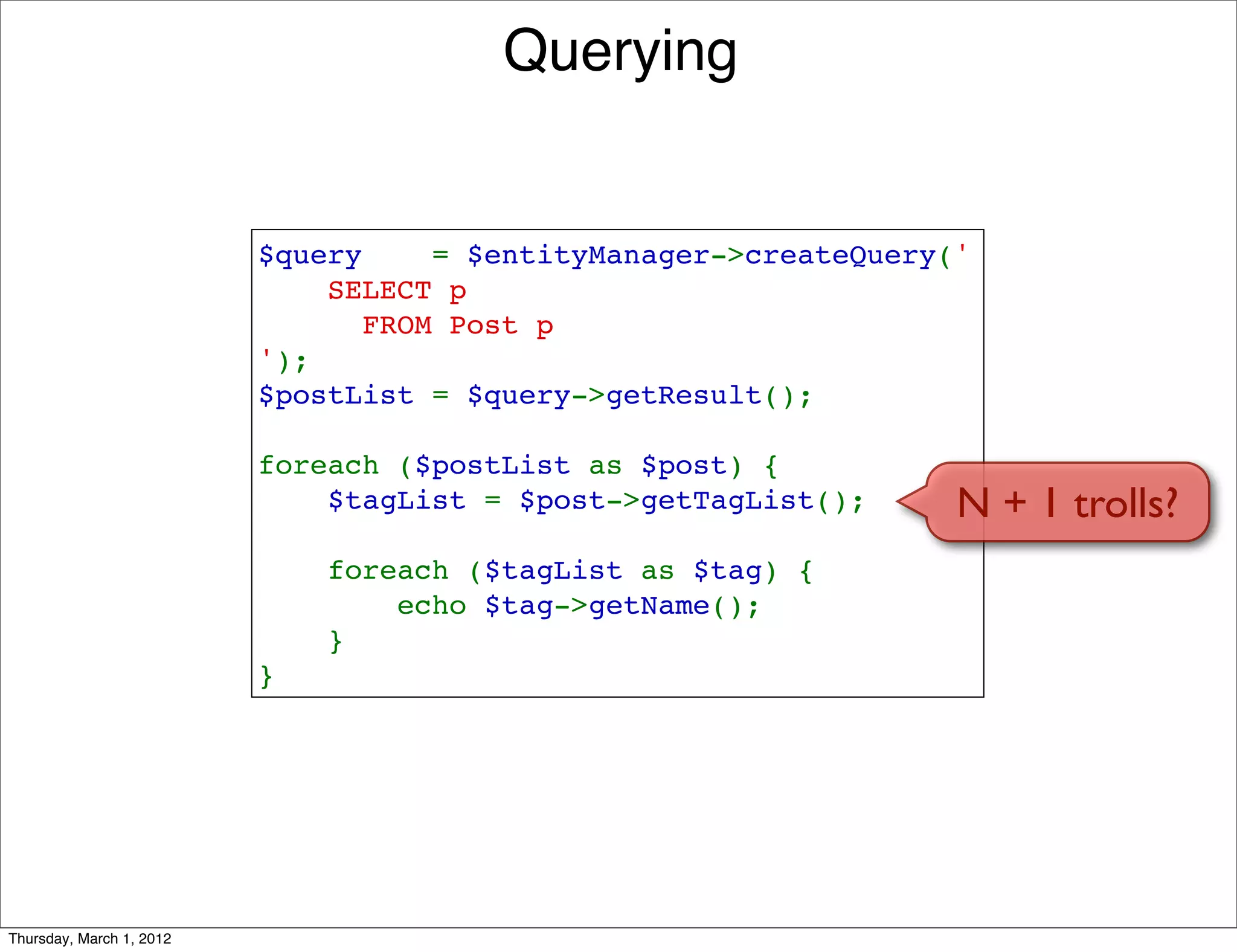
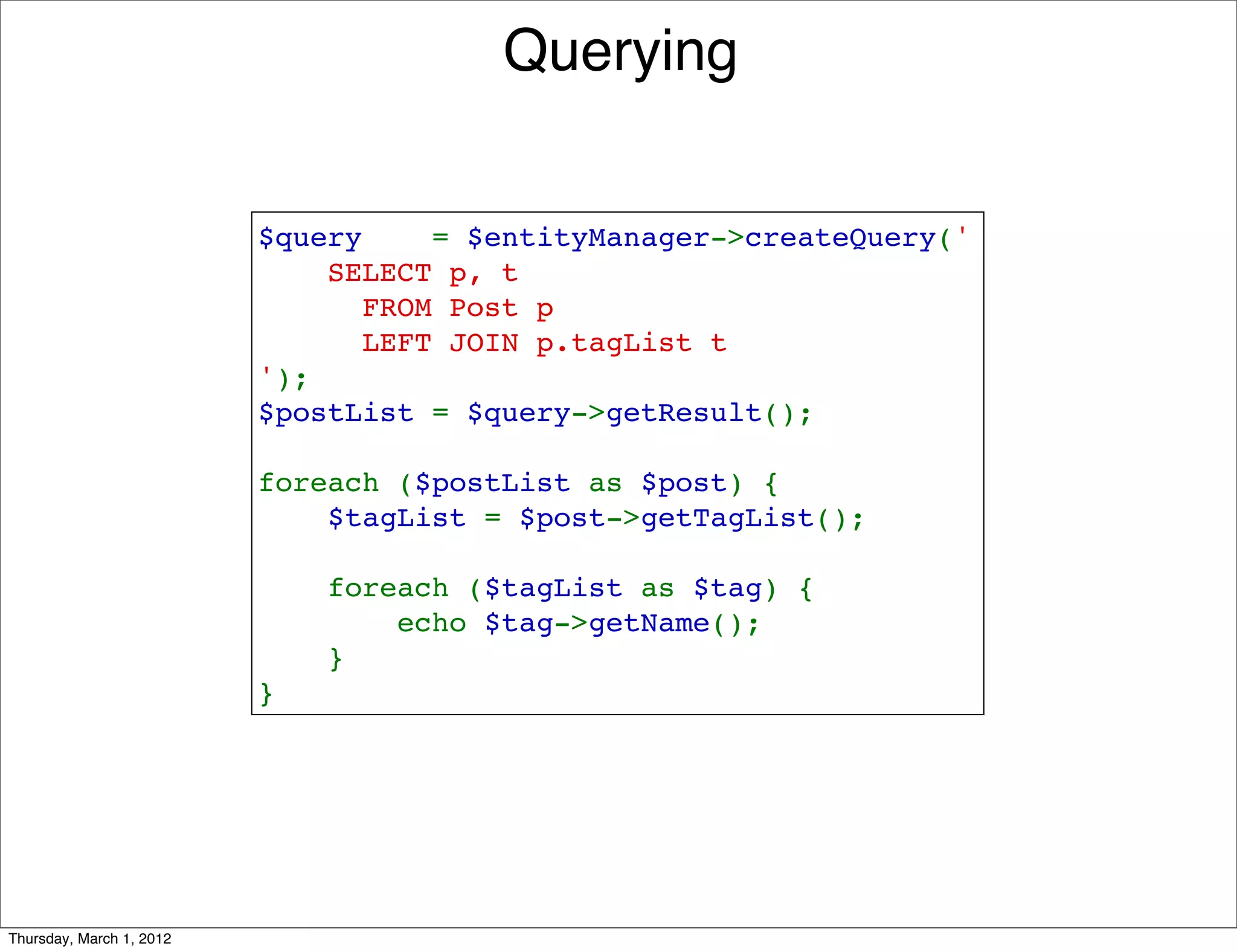
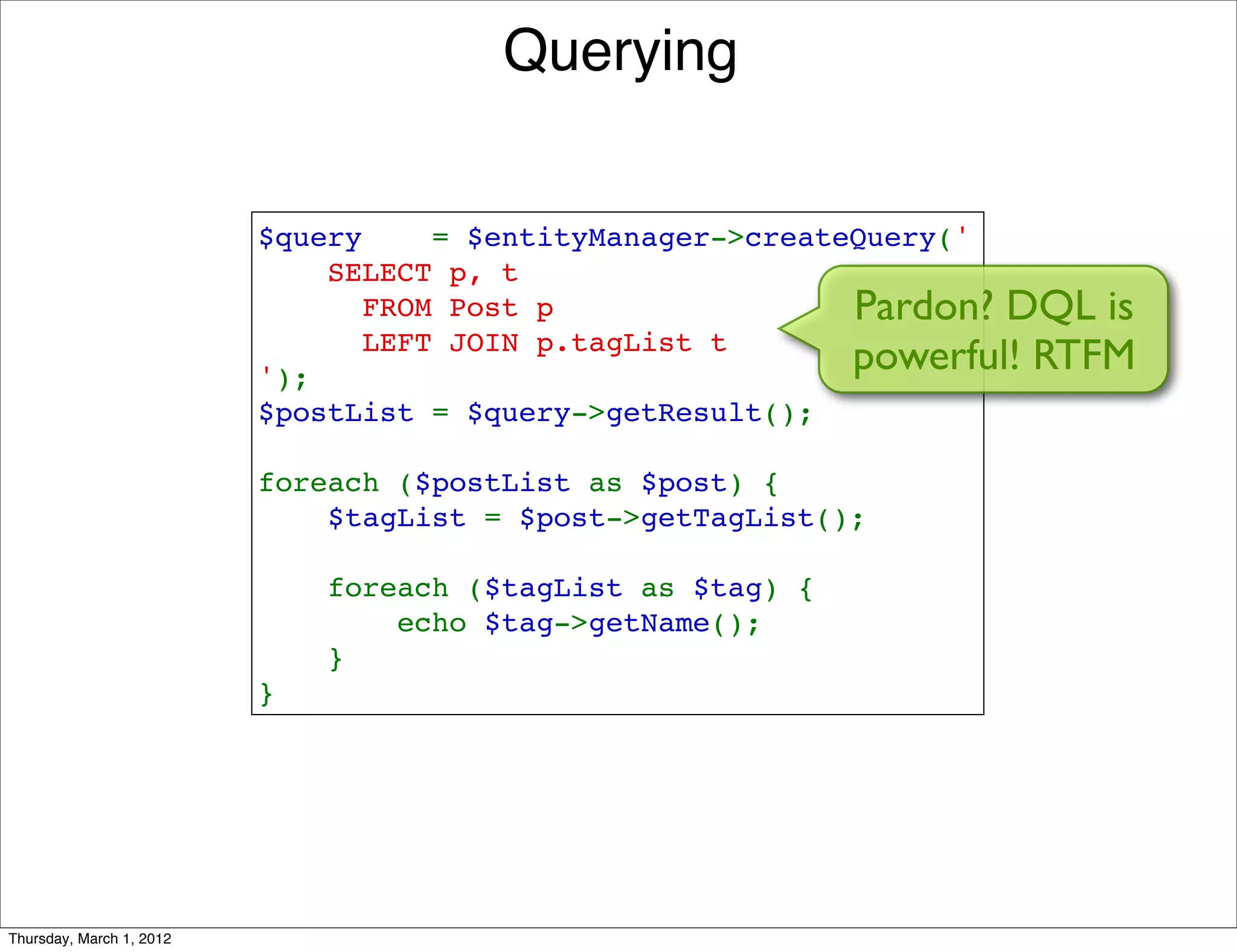
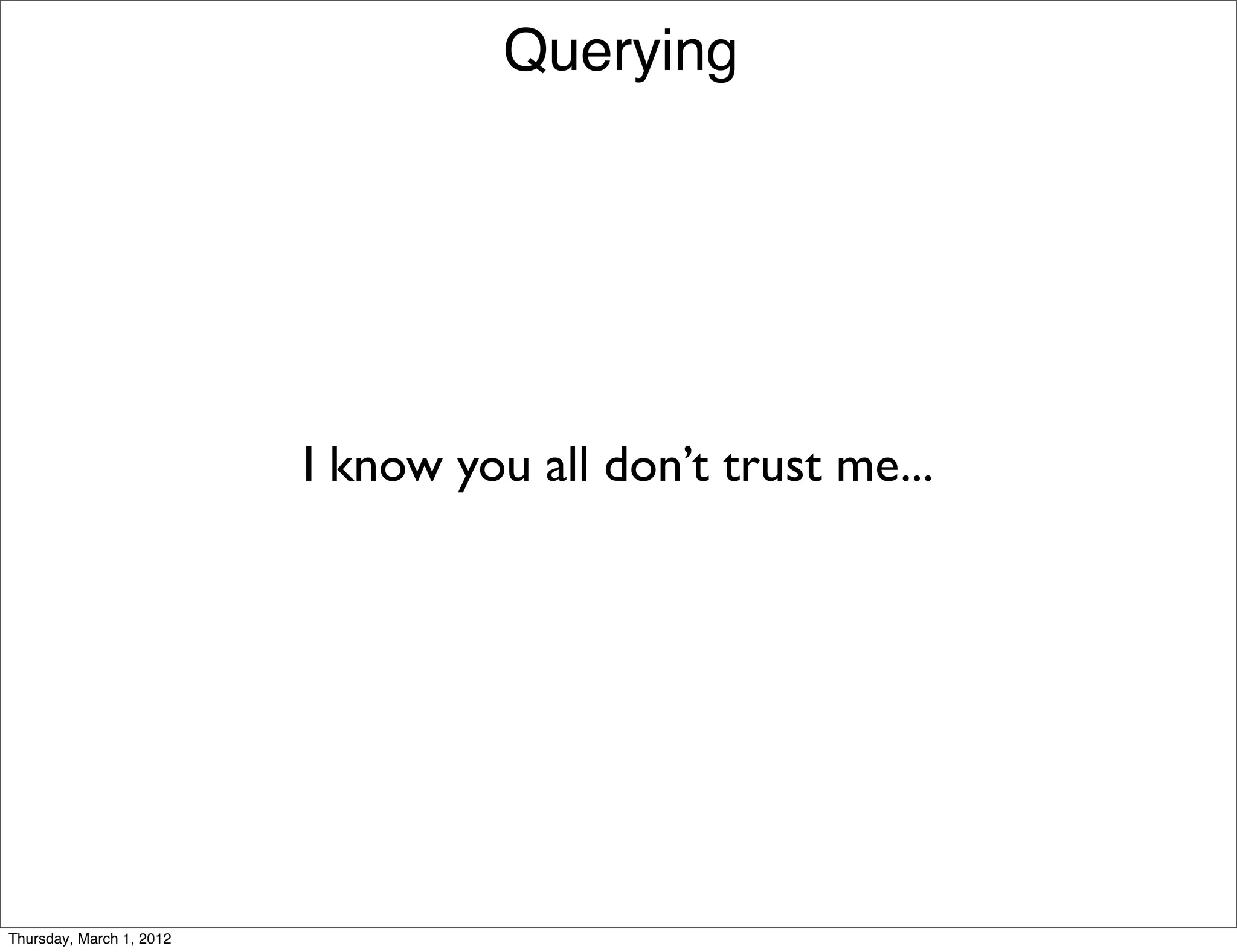
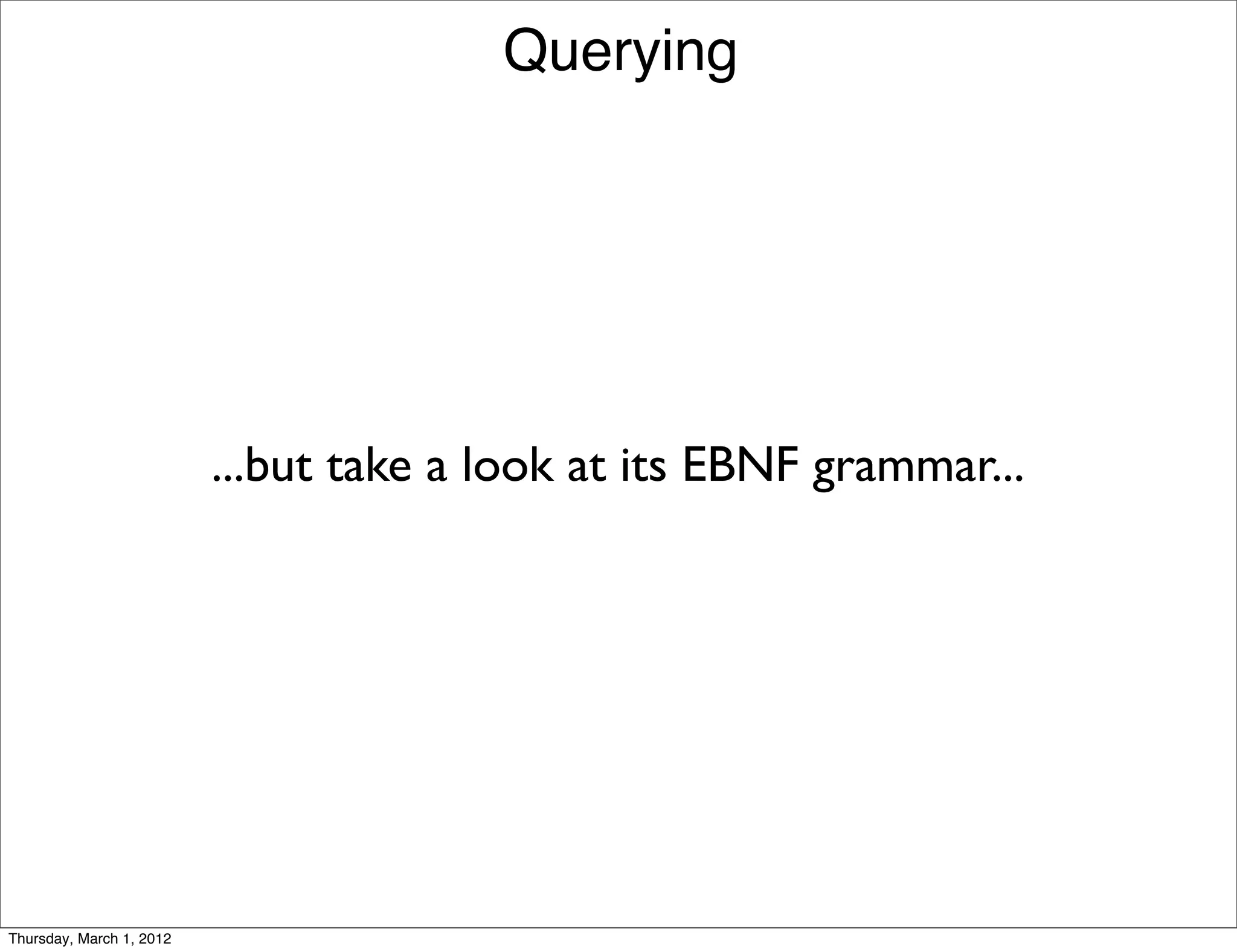
![QueryLanguage ::= SelectStatement | UpdateStatement | DeleteStatement SelectStatement ::= SelectClause FromClause [WhereClause] [GroupByClause] [HavingClause] [OrderByClause] UpdateStatement ::= UpdateClause [WhereClause] DeleteStatement ::= DeleteClause [WhereClause] JoinAssociationPathExpression ::= IdentificationVariable "." (CollectionValuedAssociationField | SingleValuedAssociationField) AssociationPathExpression ::= CollectionValuedPathExpression | SingleValuedAssociationPathExpression SingleValuedPathExpression ::= StateFieldPathExpression | SingleValuedAssociationPathExpression StateFieldPathExpression ::= IdentificationVariable "." StateField | SingleValuedAssociationPathExpression "." StateField SingleValuedAssociationPathExpression ::= IdentificationVariable "." SingleValuedAssociationField CollectionValuedPathExpression ::= IdentificationVariable "." {SingleValuedAssociationField "."}* CollectionValuedAssociationField StateField ::= {EmbeddedClassStateField "."}* SimpleStateField SimpleStateFieldPathExpression ::= IdentificationVariable "." StateField SelectClause ::= "SELECT" ["DISTINCT"] SelectExpression {"," SelectExpression}* SimpleSelectClause ::= "SELECT" ["DISTINCT"] SimpleSelectExpression UpdateClause ::= "UPDATE" AbstractSchemaName ["AS"] AliasIdentificationVariable "SET" UpdateItem {"," UpdateItem}* DeleteClause ::= "DELETE" ["FROM"] AbstractSchemaName ["AS"] AliasIdentificationVariable FromClause ::= "FROM" IdentificationVariableDeclaration {"," IdentificationVariableDeclaration}* SubselectFromClause ::= "FROM" SubselectIdentificationVariableDeclaration {"," SubselectIdentificationVariableDeclaration}* WhereClause ::= "WHERE" ConditionalExpression HavingClause ::= "HAVING" ConditionalExpression GroupByClause ::= "GROUP" "BY" GroupByItem {"," GroupByItem}* OrderByClause ::= "ORDER" "BY" OrderByItem {"," OrderByItem}* Subselect ::= SimpleSelectClause SubselectFromClause [WhereClause] [GroupByClause] [HavingClause] [OrderByClause] UpdateItem ::= IdentificationVariable "." (StateField | SingleValuedAssociationField) "=" NewValue OrderByItem ::= (ResultVariable | SingleValuedPathExpression) ["ASC" | "DESC"] GroupByItem ::= IdentificationVariable | SingleValuedPathExpression NewValue ::= ScalarExpression | SimpleEntityExpression | "NULL" IdentificationVariableDeclaration ::= RangeVariableDeclaration [IndexBy] {JoinVariableDeclaration}* SubselectIdentificationVariableDeclaration ::= IdentificationVariableDeclaration | (AssociationPathExpression ["AS"] AliasIdentificationVariable) JoinVariableDeclaration ::= Join [IndexBy] RangeVariableDeclaration ::= AbstractSchemaName ["AS"] AliasIdentificationVariable Join ::= ["LEFT" ["OUTER"] | "INNER"] "JOIN" JoinAssociationPathExpression ["AS"] AliasIdentificationVariable ["WITH" ConditionalExpression] IndexBy ::= "INDEX" "BY" SimpleStateFieldPathExpression SelectExpression ::= IdentificationVariable | PartialObjectExpression | (AggregateExpression | "(" Subselect ")" | FunctionDeclaration | ScalarExpression) [["AS"] AliasResultVariable] SimpleSelectExpression ::= ScalarExpression | IdentificationVariable | (AggregateExpression [["AS"] AliasResultVariable]) PartialObjectExpression ::= "PARTIAL" IdentificationVariable "." PartialFieldSet PartialFieldSet ::= "{" SimpleStateField {"," SimpleStateField}* "}" ConditionalExpression ::= ConditionalTerm {"OR" ConditionalTerm}* ConditionalTerm ::= ConditionalFactor {"AND" ConditionalFactor}* ConditionalFactor ::= ["NOT"] ConditionalPrimary ConditionalPrimary ::= SimpleConditionalExpression | "(" ConditionalExpression ")" SimpleConditionalExpression ::= ComparisonExpression | BetweenExpression | LikeExpression | InExpression | NullComparisonExpression | ExistsExpression | EmptyCollectionComparisonExpression | CollectionMemberExpression | InstanceOfExpression EmptyCollectionComparisonExpression ::= CollectionValuedPathExpression "IS" ["NOT"] "EMPTY" CollectionMemberExpression ::= EntityExpression ["NOT"] "MEMBER" ["OF"] CollectionValuedPathExpression Literal ::= string | char | integer | float | boolean InParameter ::= Literal | InputParameter InputParameter ::= PositionalParameter | NamedParameter PositionalParameter ::= "?" integer NamedParameter ::= ":" string ArithmeticExpression ::= SimpleArithmeticExpression | "(" Subselect ")" SimpleArithmeticExpression ::= ArithmeticTerm {("+" | "-") ArithmeticTerm}* ArithmeticTerm ::= ArithmeticFactor {("*" | "/") ArithmeticFactor}* ArithmeticFactor ::= [("+" | "-")] ArithmeticPrimary ArithmeticPrimary ::= SingleValuedPathExpression | Literal | "(" SimpleArithmeticExpression ")" | FunctionsReturningNumerics | AggregateExpression | FunctionsReturningStrings | FunctionsReturningDatetime | IdentificationVariable | InputParameter | CaseExpression ScalarExpression ::= SimpleArithmeticExpression | StringPrimary | DateTimePrimary | StateFieldPathExpression | BooleanPrimary | EntityTypeExpression | CaseExpression StringExpression ::= StringPrimary | "(" Subselect ")" StringPrimary ::= StateFieldPathExpression | string | InputParameter | FunctionsReturningStrings | AggregateExpression | CaseExpression BooleanExpression ::= BooleanPrimary | "(" Subselect ")" BooleanPrimary ::= StateFieldPathExpression | boolean | InputParameter EntityExpression ::= SingleValuedAssociationPathExpression | SimpleEntityExpression SimpleEntityExpression ::= IdentificationVariable | InputParameter DatetimeExpression ::= DatetimePrimary | "(" Subselect ")" DatetimePrimary ::= StateFieldPathExpression | InputParameter | FunctionsReturningDatetime | AggregateExpression AggregateExpression ::= ("AVG" | "MAX" | "MIN" | "SUM") "(" ["DISTINCT"] StateFieldPathExpression ")" | "COUNT" "(" ["DISTINCT"] (IdentificationVariable | SingleValuedPathExpression) ")" CaseExpression ::= GeneralCaseExpression | SimpleCaseExpression | CoalesceExpression | NullifExpression GeneralCaseExpression ::= "CASE" WhenClause {WhenClause}* "ELSE" ScalarExpression "END" WhenClause ::= "WHEN" ConditionalExpression "THEN" ScalarExpression SimpleCaseExpression ::= "CASE" CaseOperand SimpleWhenClause {SimpleWhenClause}* "ELSE" ScalarExpression "END" CaseOperand ::= StateFieldPathExpression | TypeDiscriminator SimpleWhenClause ::= "WHEN" ScalarExpression "THEN" ScalarExpression CoalesceExpression ::= "COALESCE" "(" ScalarExpression {"," ScalarExpression}* ")" NullifExpression ::= "NULLIF" "(" ScalarExpression "," ScalarExpression ")" QuantifiedExpression ::= ("ALL" | "ANY" | "SOME") "(" Subselect ")" BetweenExpression ::= ArithmeticExpression ["NOT"] "BETWEEN" ArithmeticExpression "AND" ArithmeticExpression ComparisonExpression ::= ArithmeticExpression ComparisonOperator ( QuantifiedExpression | ArithmeticExpression ) InExpression ::= StateFieldPathExpression ["NOT"] "IN" "(" (InParameter {"," InParameter}* | Subselect) ")" InstanceOfExpression ::= IdentificationVariable ["NOT"] "INSTANCE" ["OF"] (InstanceOfParameter | "(" InstanceOfParameter {"," InstanceOfParameter}* ")") InstanceOfParameter ::= AbstractSchemaName | InputParameter LikeExpression ::= StringExpression ["NOT"] "LIKE" string ["ESCAPE" char] NullComparisonExpression ::= (SingleValuedPathExpression | InputParameter) "IS" ["NOT"] "NULL" ExistsExpression ::= ["NOT"] "EXISTS" "(" Subselect ")" ComparisonOperator ::= "=" | "<" | "<=" | "<>" | ">" | ">=" | "!=" FunctionDeclaration ::= FunctionsReturningStrings | FunctionsReturningNumerics | FunctionsReturningDateTime FunctionsReturningNumerics ::= "LENGTH" "(" StringPrimary ")" | "LOCATE" "(" StringPrimary "," StringPrimary ["," SimpleArithmeticExpression]")" | "ABS" "(" SimpleArithmeticExpression ")" | "SQRT" "(" SimpleArithmeticExpression ")" | "MOD" "(" SimpleArithmeticExpression "," SimpleArithmeticExpression ")" | "SIZE" "(" CollectionValuedPathExpression ")" FunctionsReturningDateTime ::= "CURRENT_DATE" | "CURRENT_TIME" | "CURRENT_TIMESTAMP" FunctionsReturningStrings ::= "CONCAT" "(" StringPrimary "," StringPrimary ")" | "SUBSTRING" "(" StringPrimary "," SimpleArithmeticExpression "," SimpleArithmeticExpression ")" | "TRIM" "(" [["LEADING" | "TRAILING" | "BOTH"] [char] "FROM"] StringPrimary ")" | "LOWER" "(" StringPrimary ")" | "UPPER" "(" StringPrimary ")" Thursday, March 1, 2012](https://image.slidesharecdn.com/ormdontkillyourdb-120301124759-phpapp02/75/ORM-dont-kill-your-DB-developers-do-29-2048.jpg)
